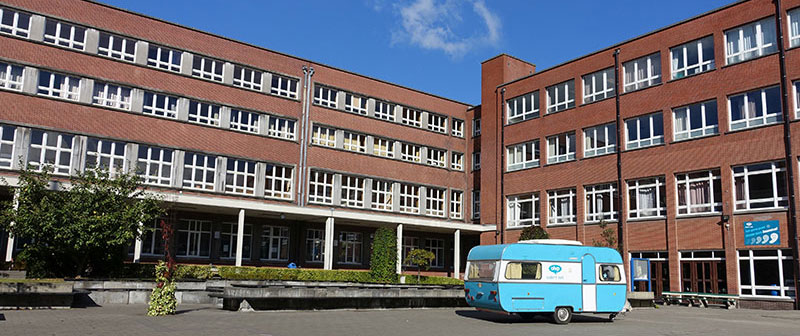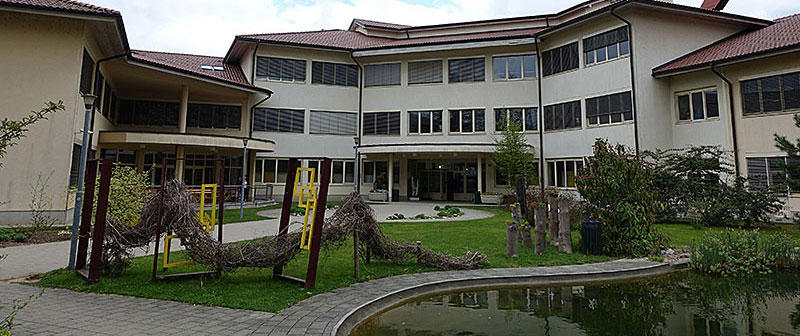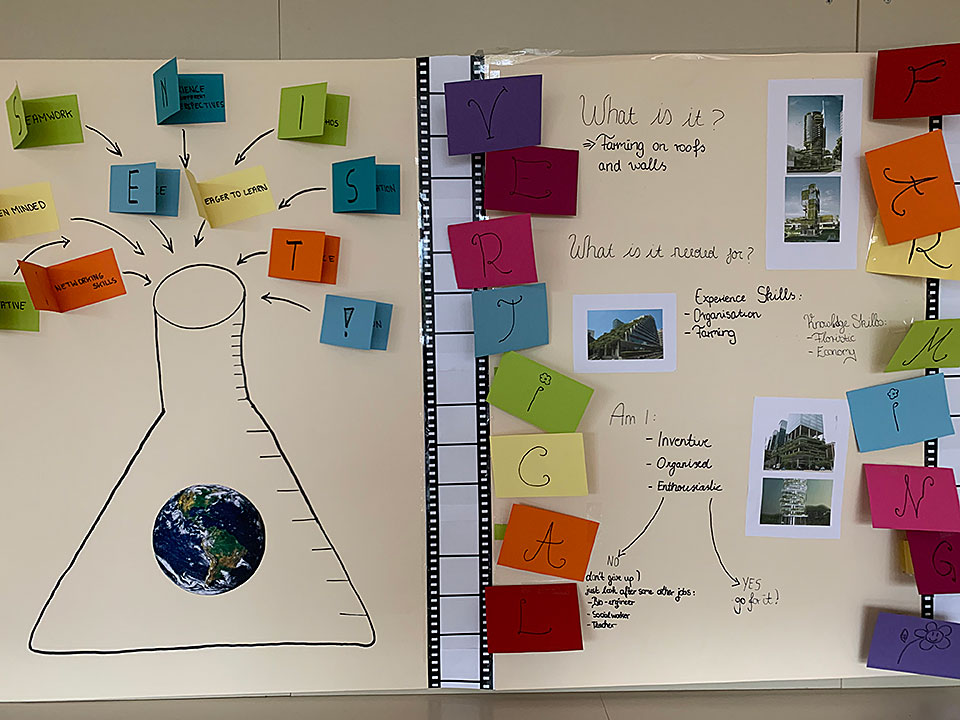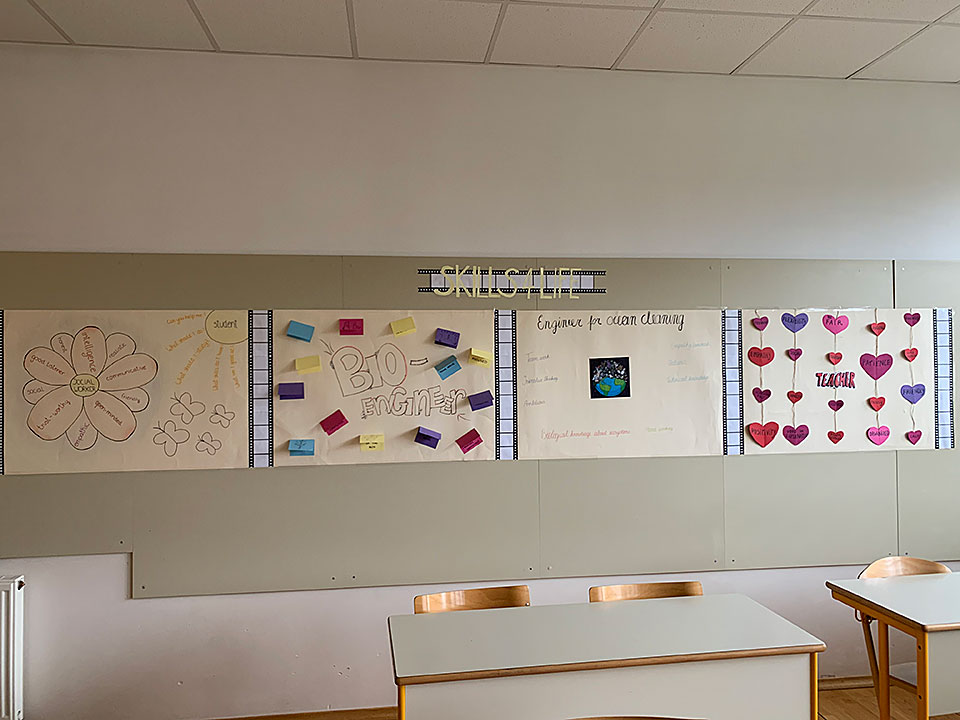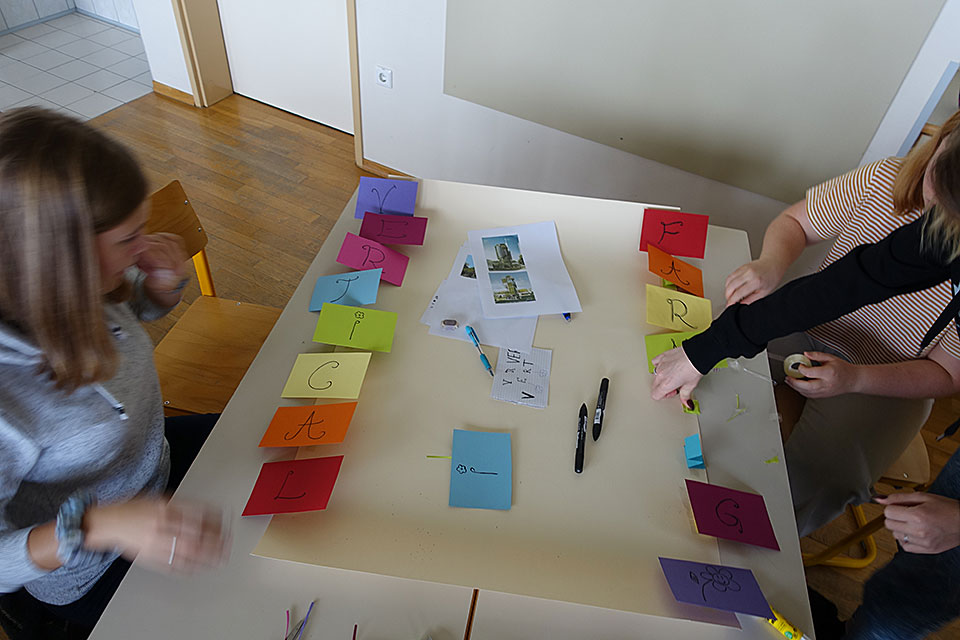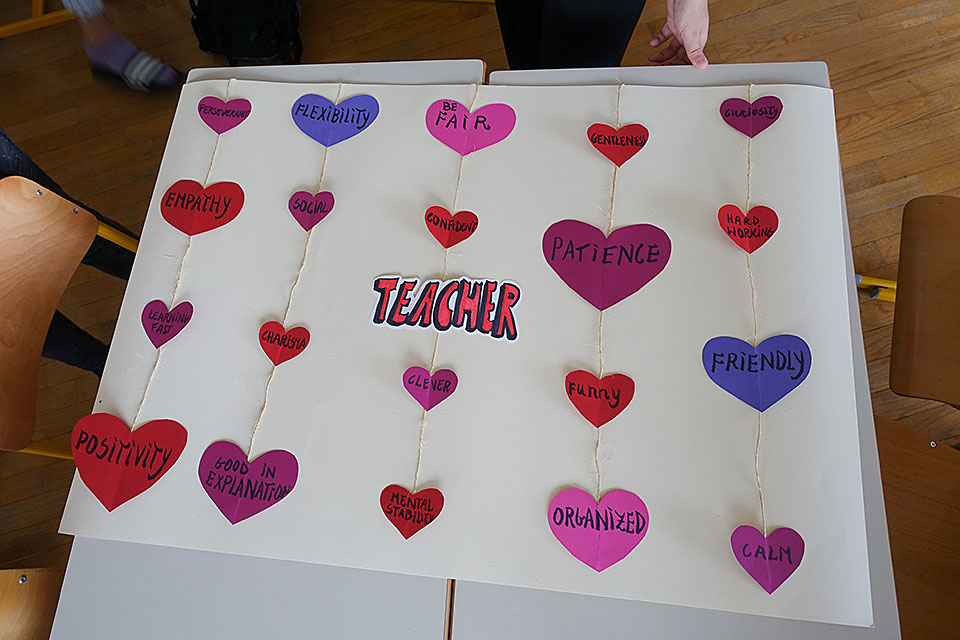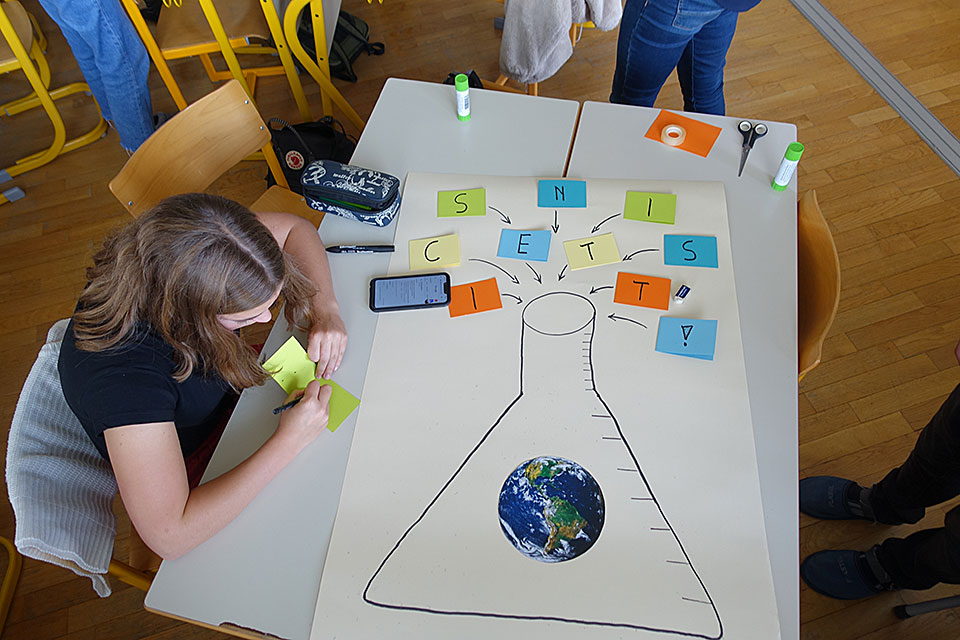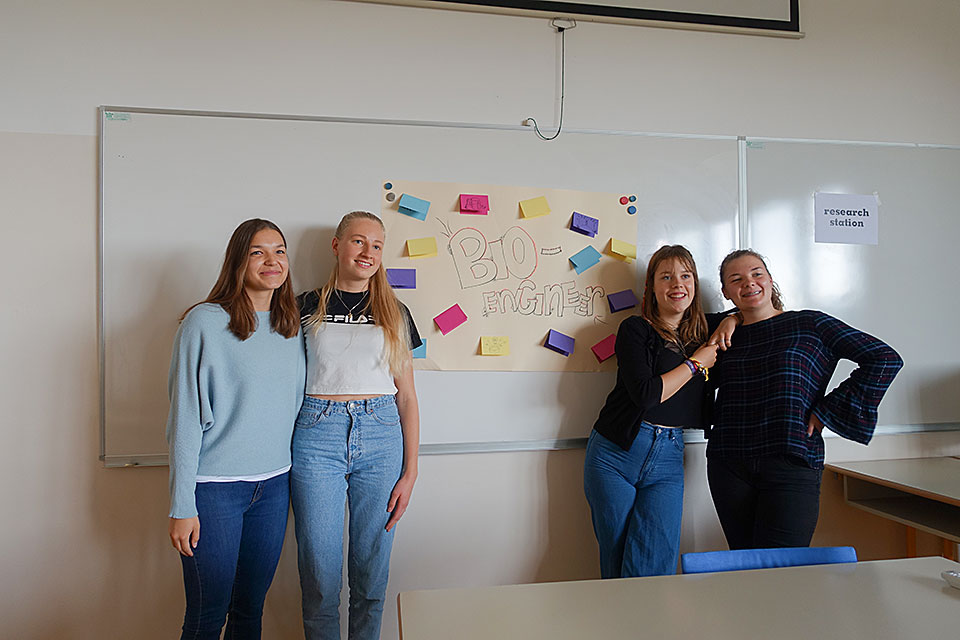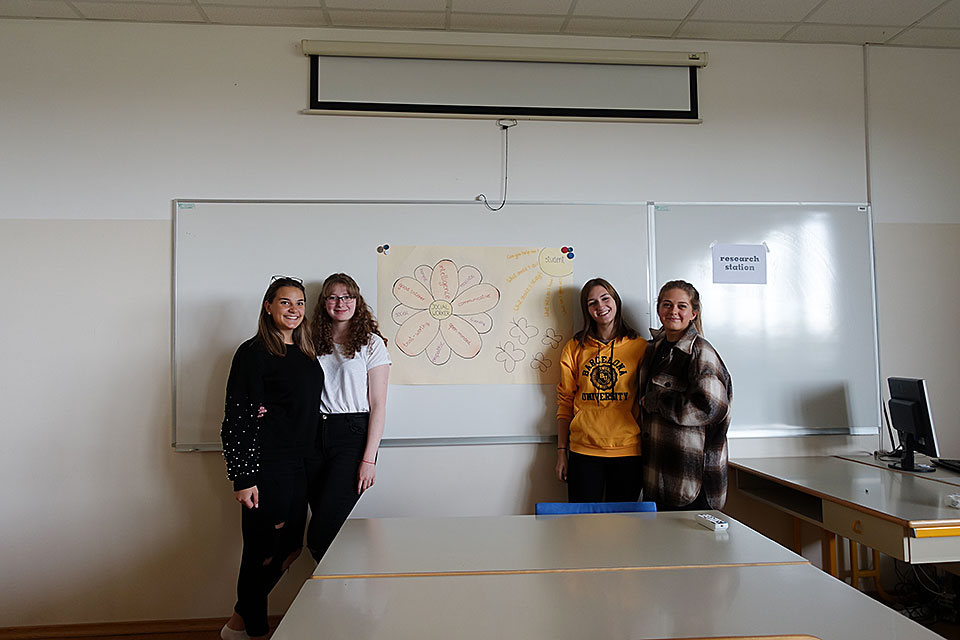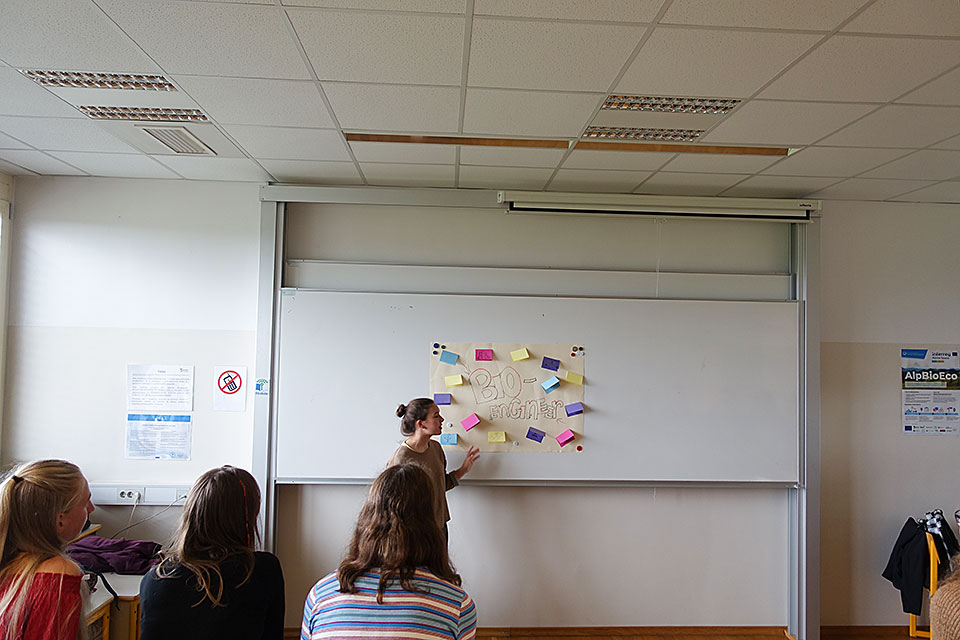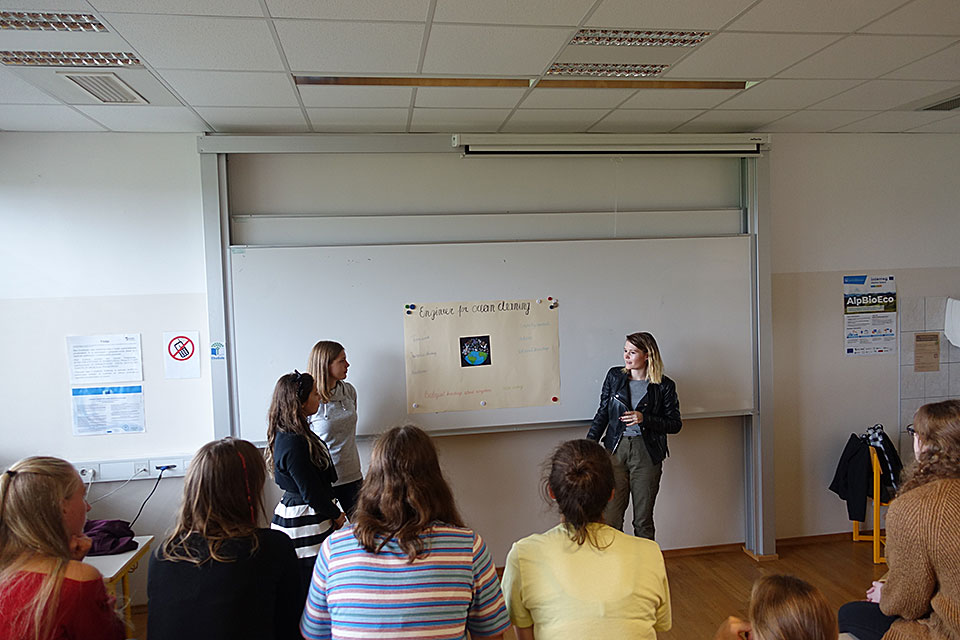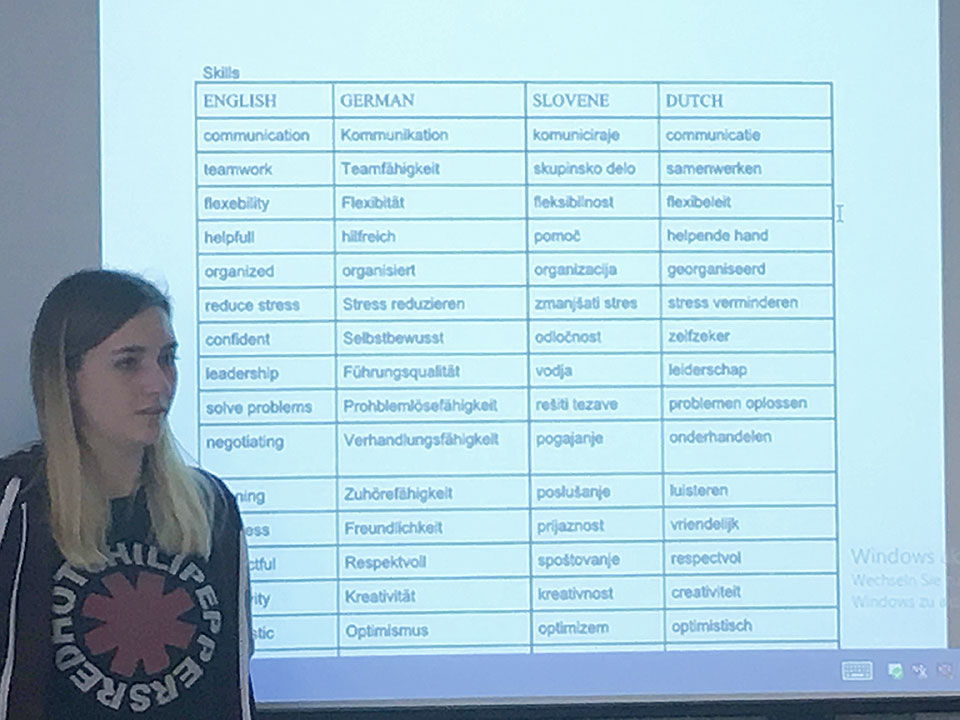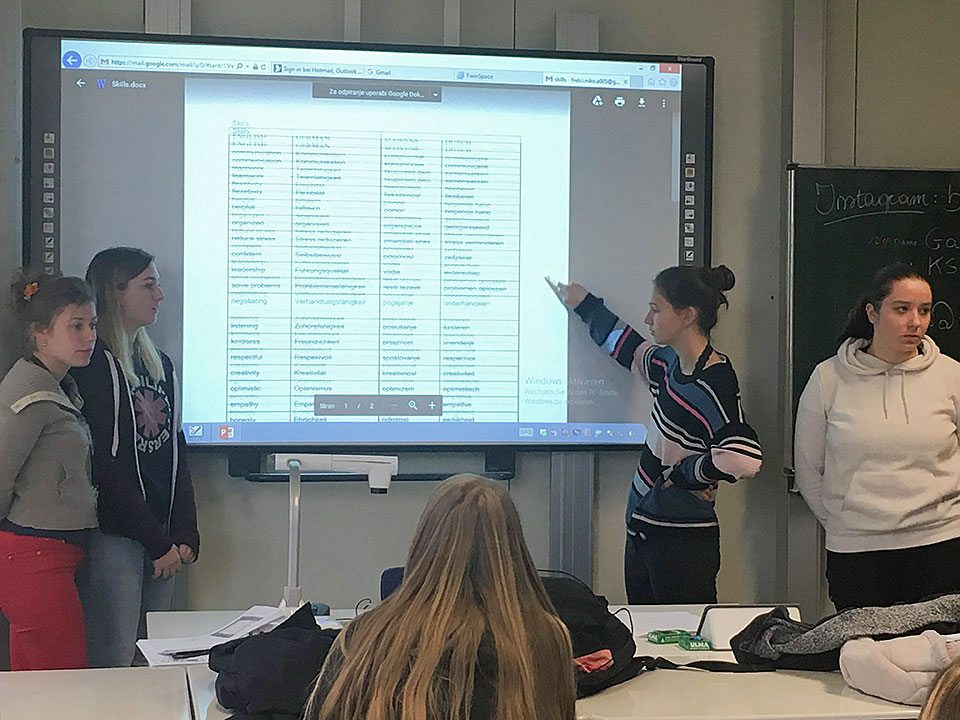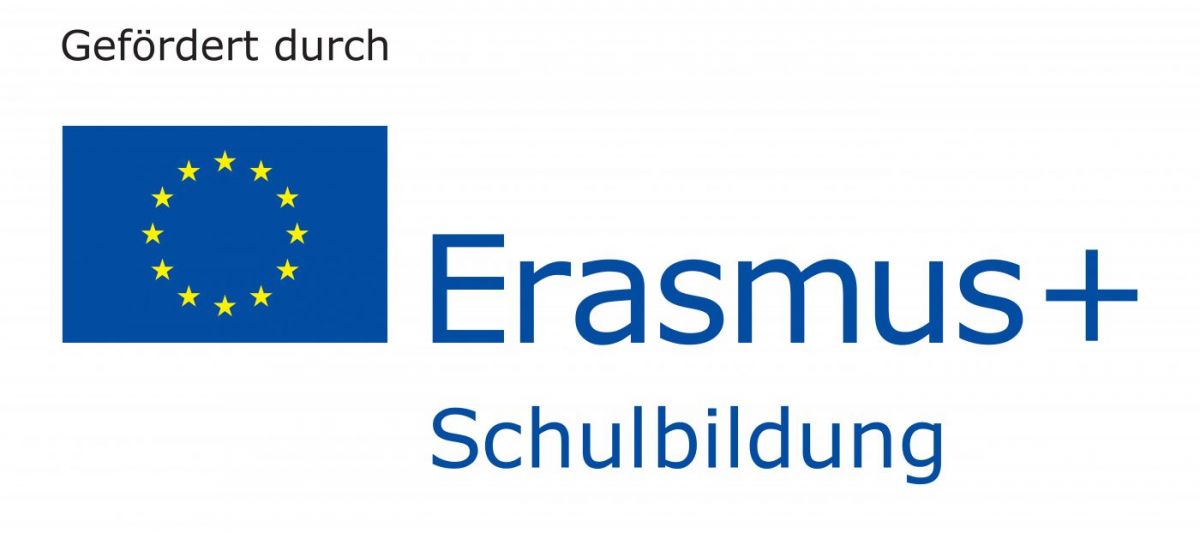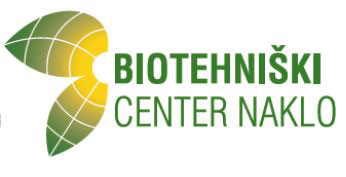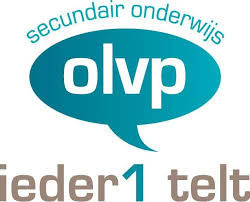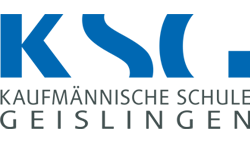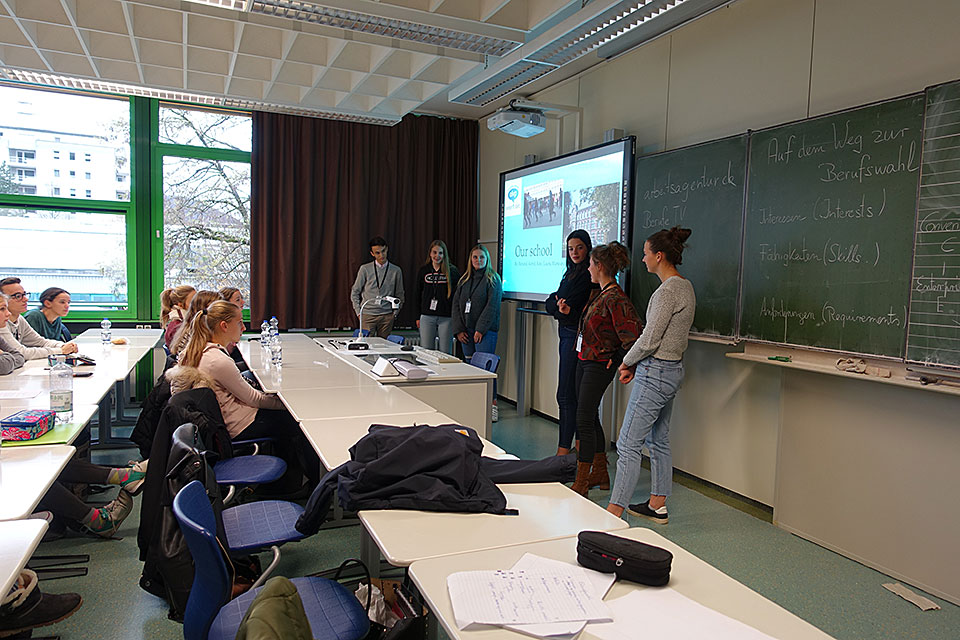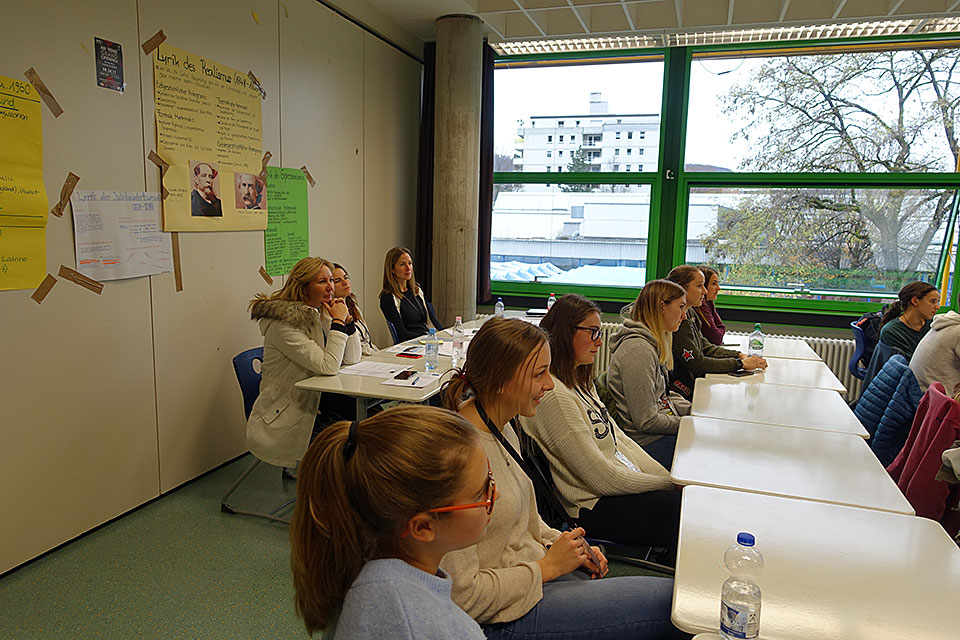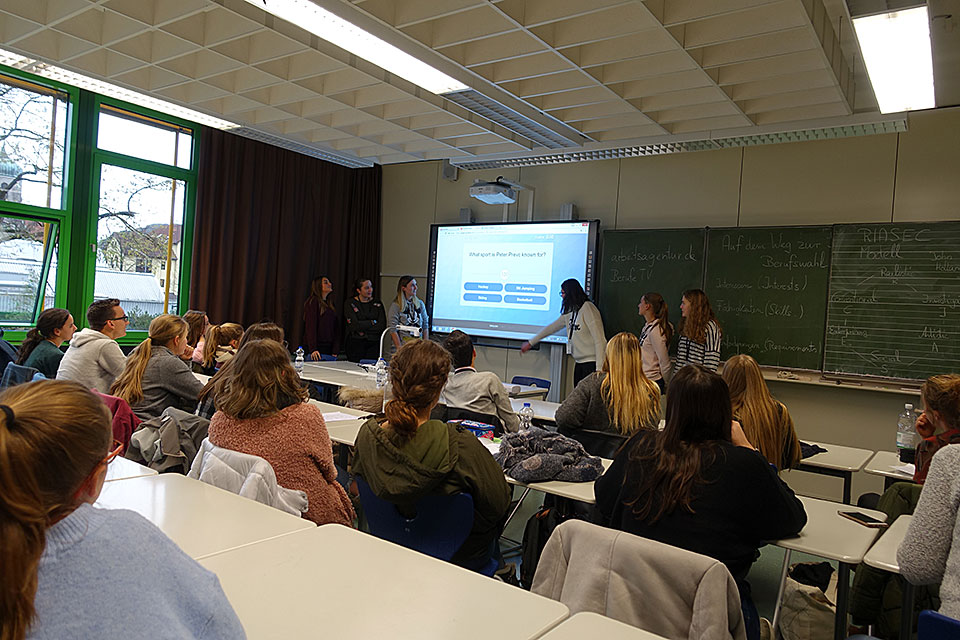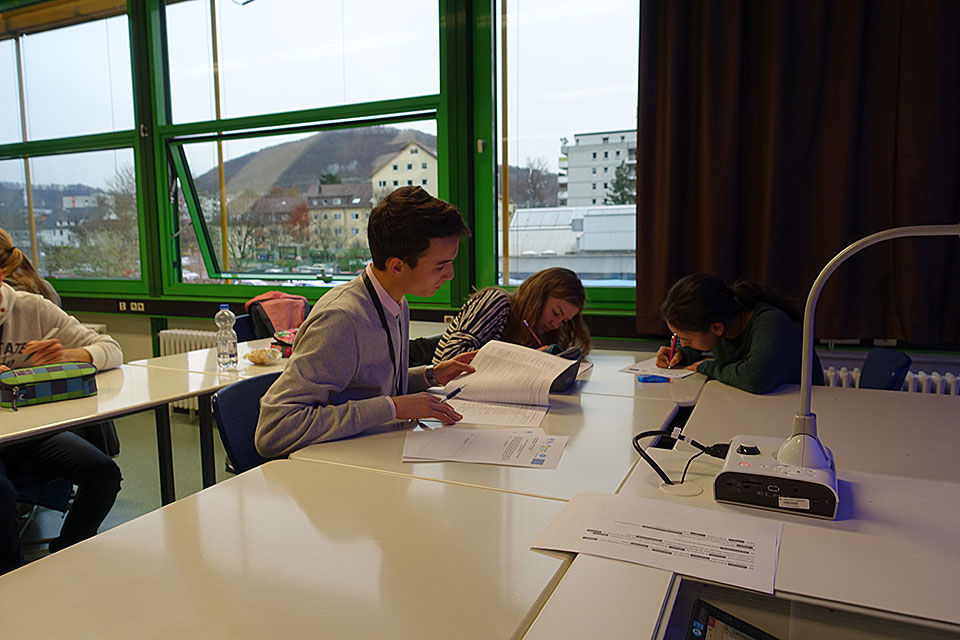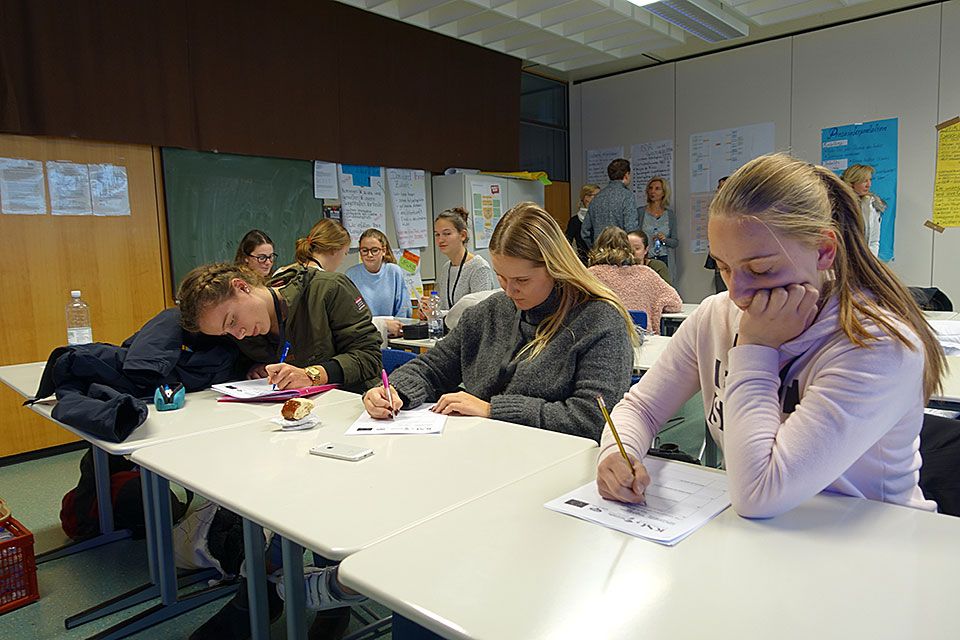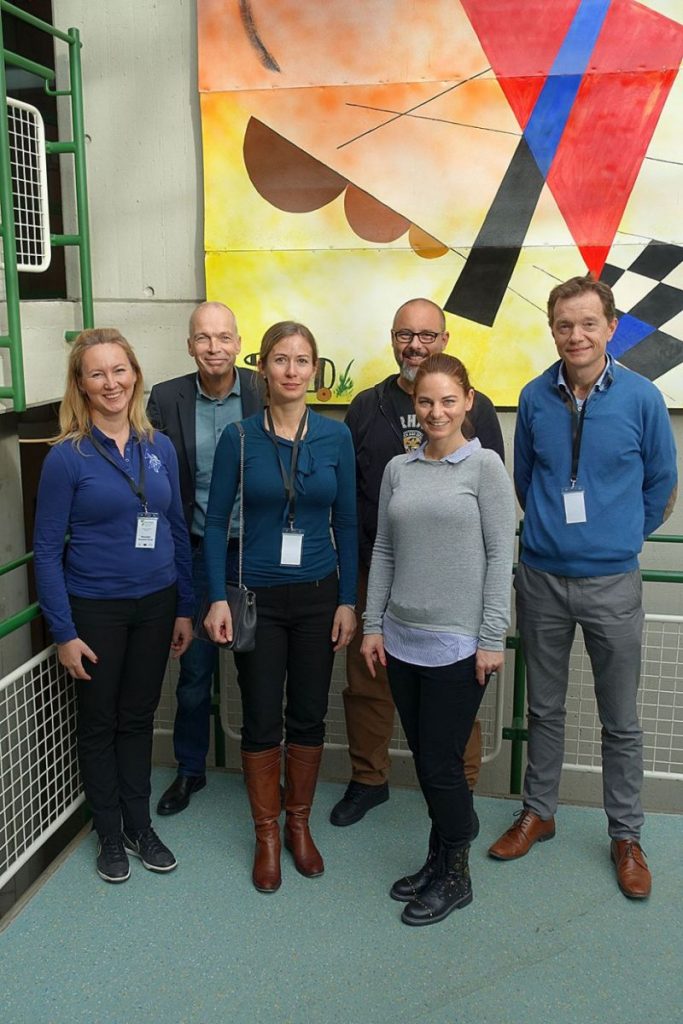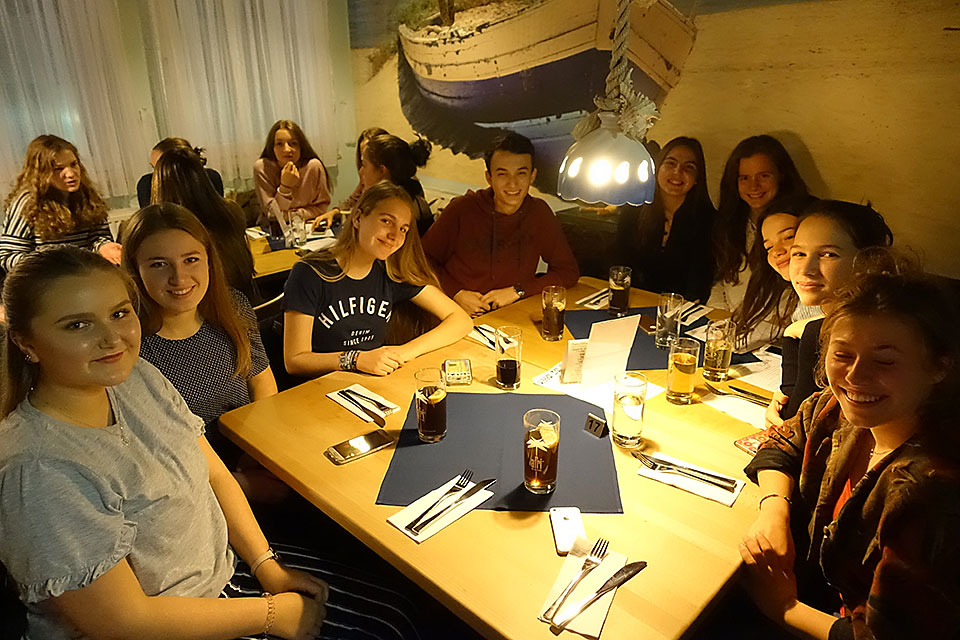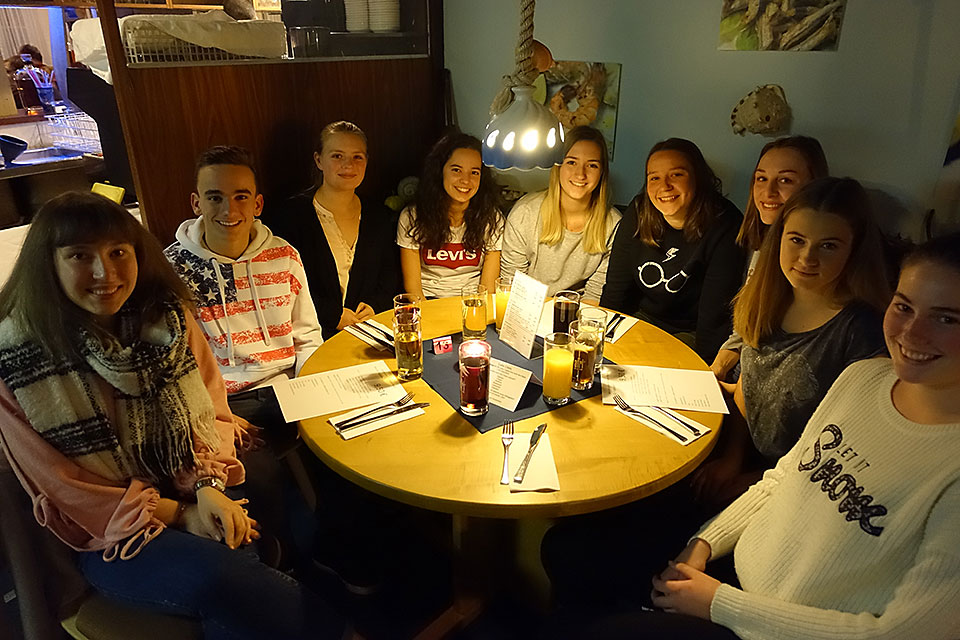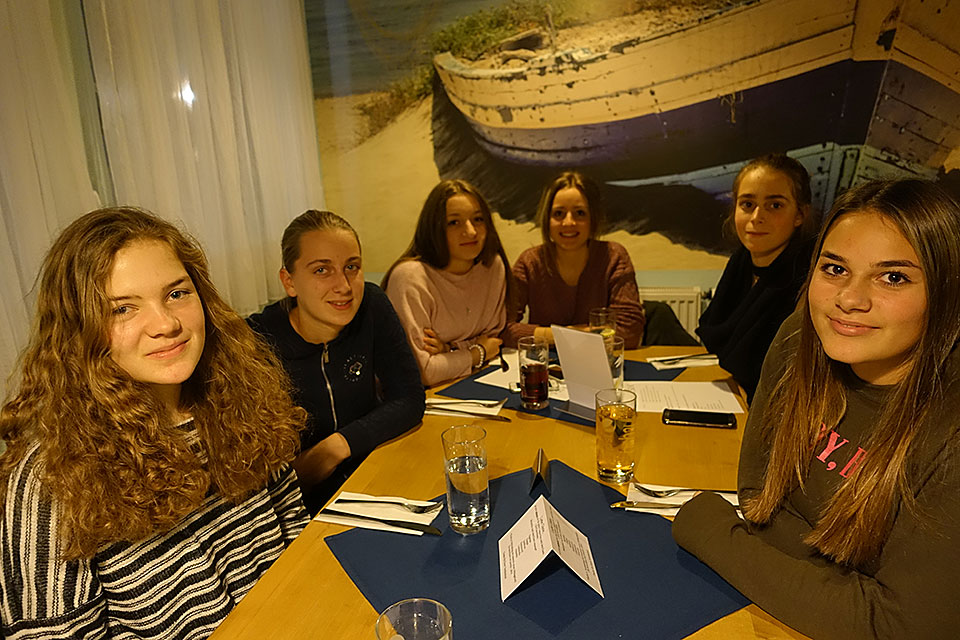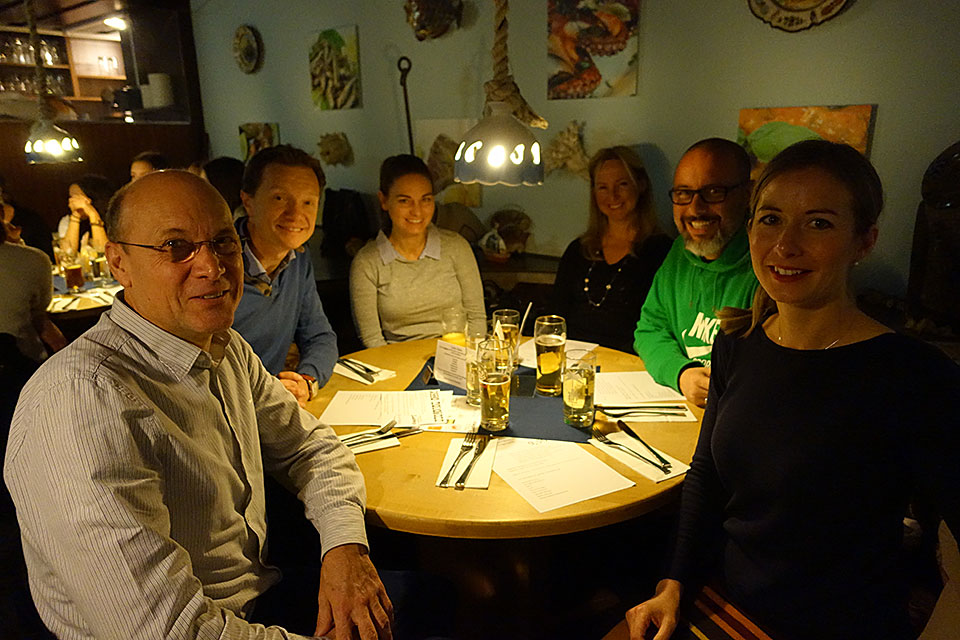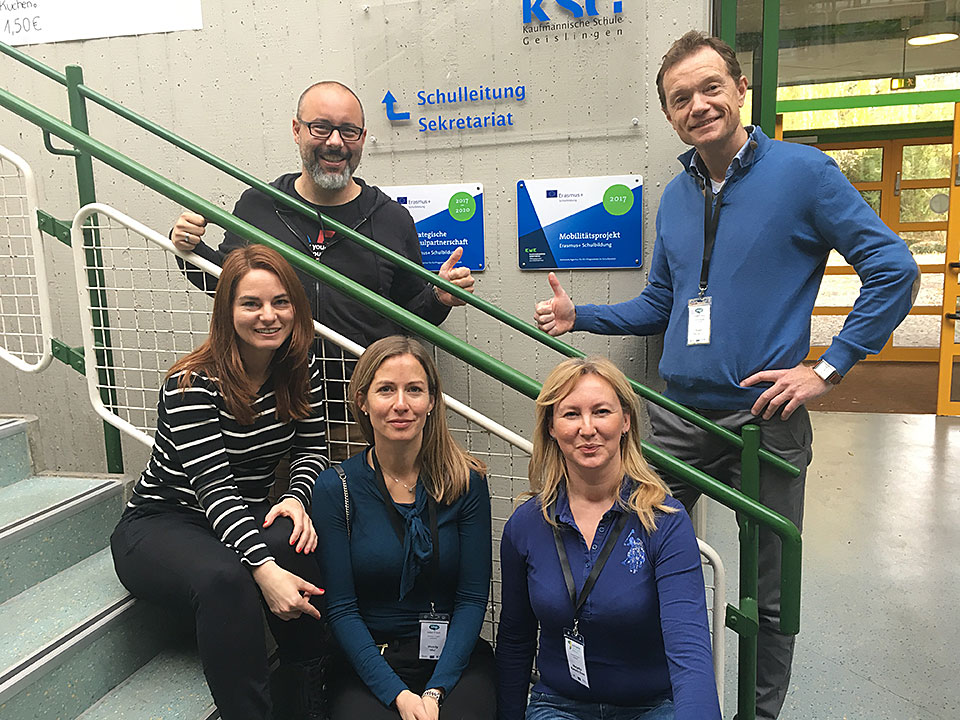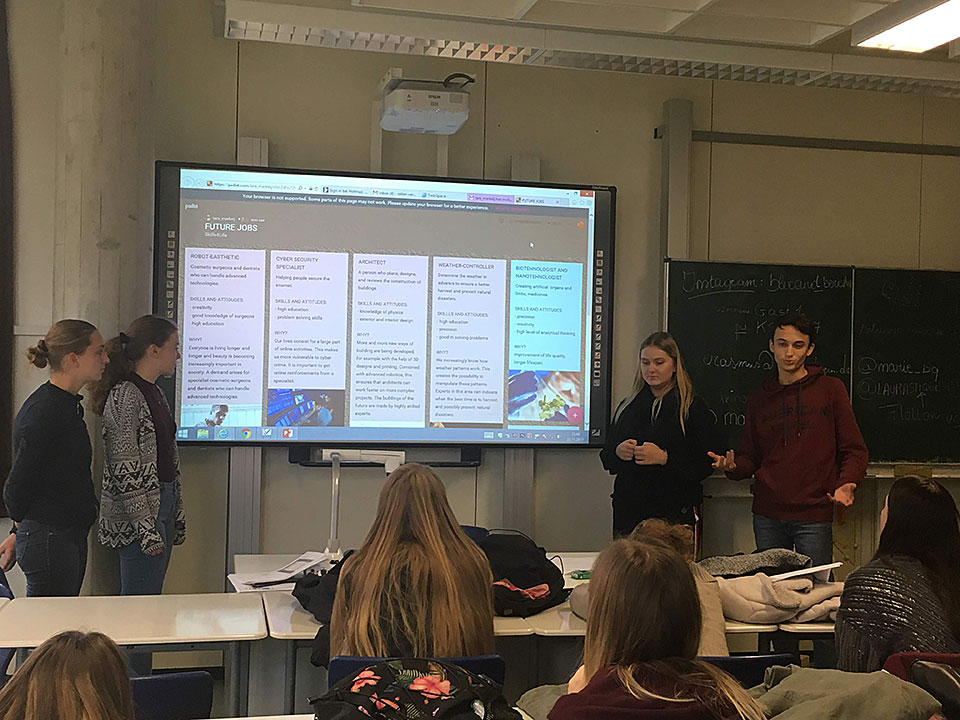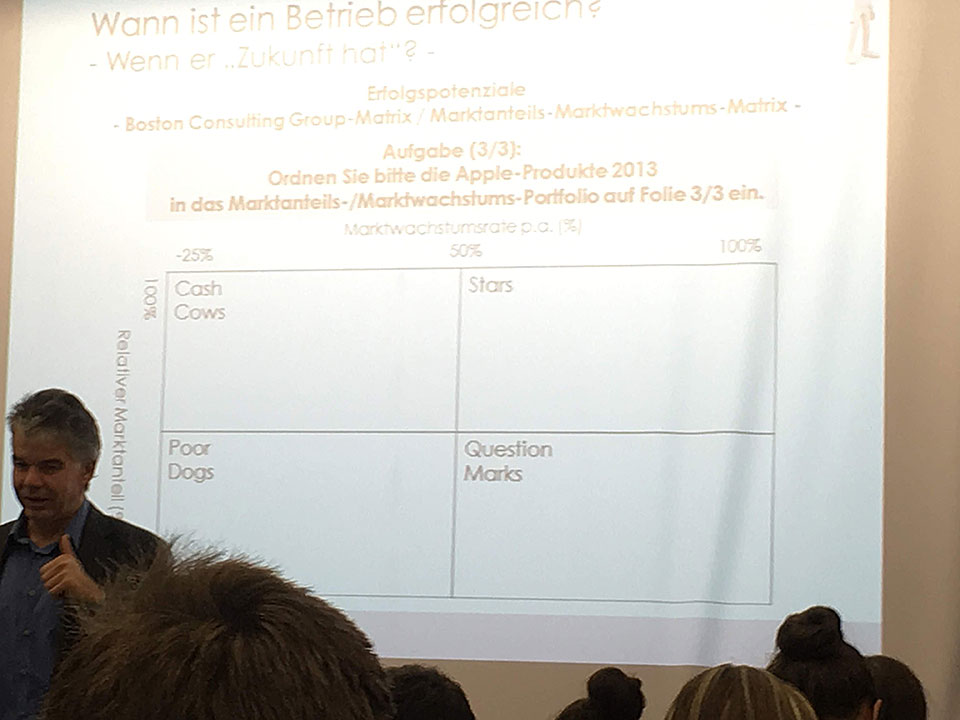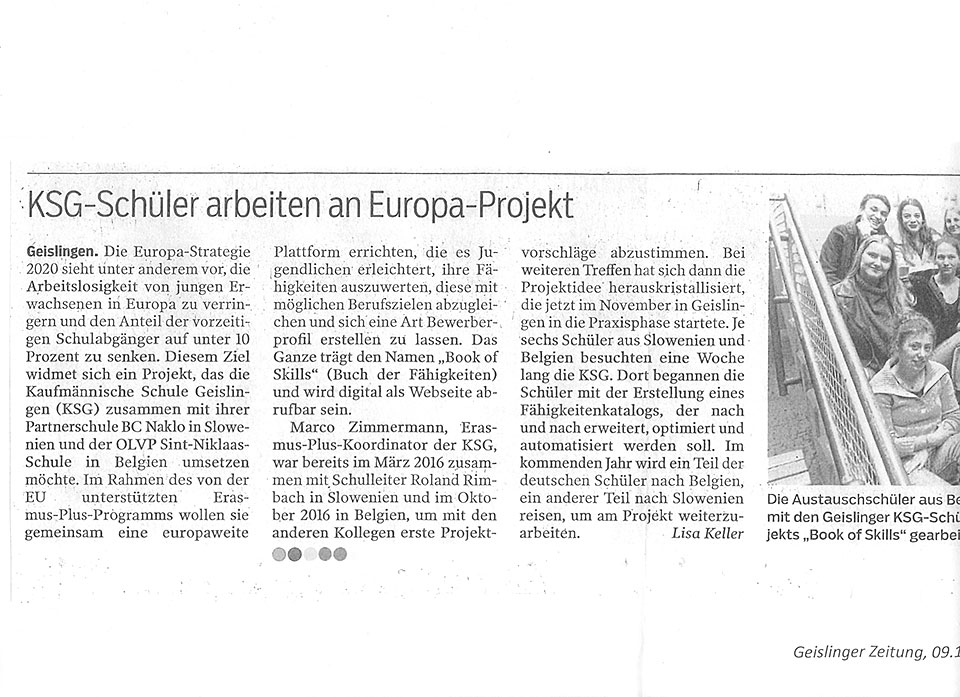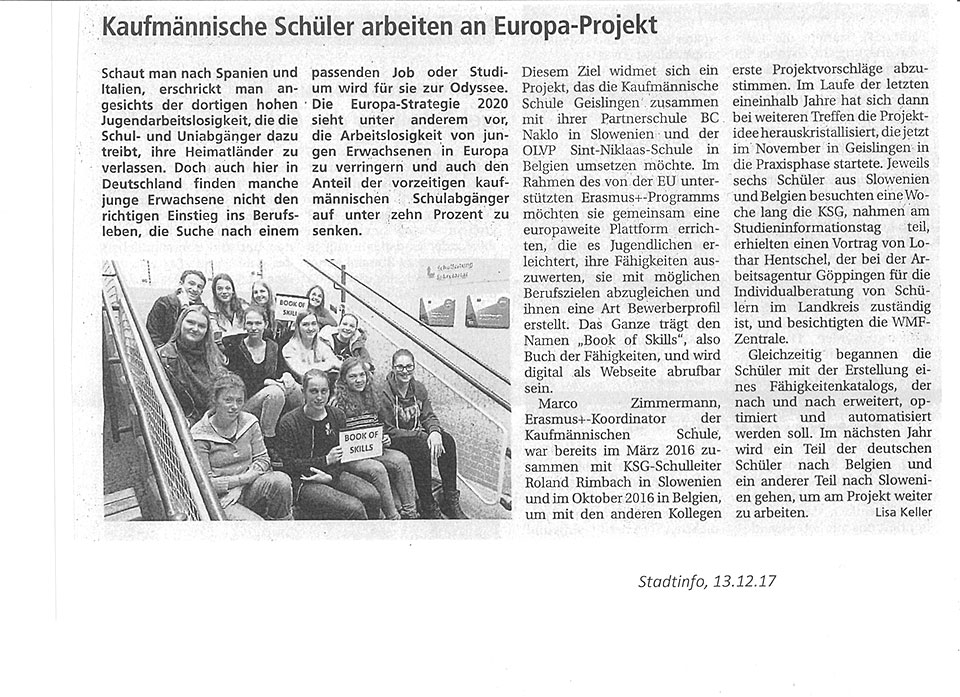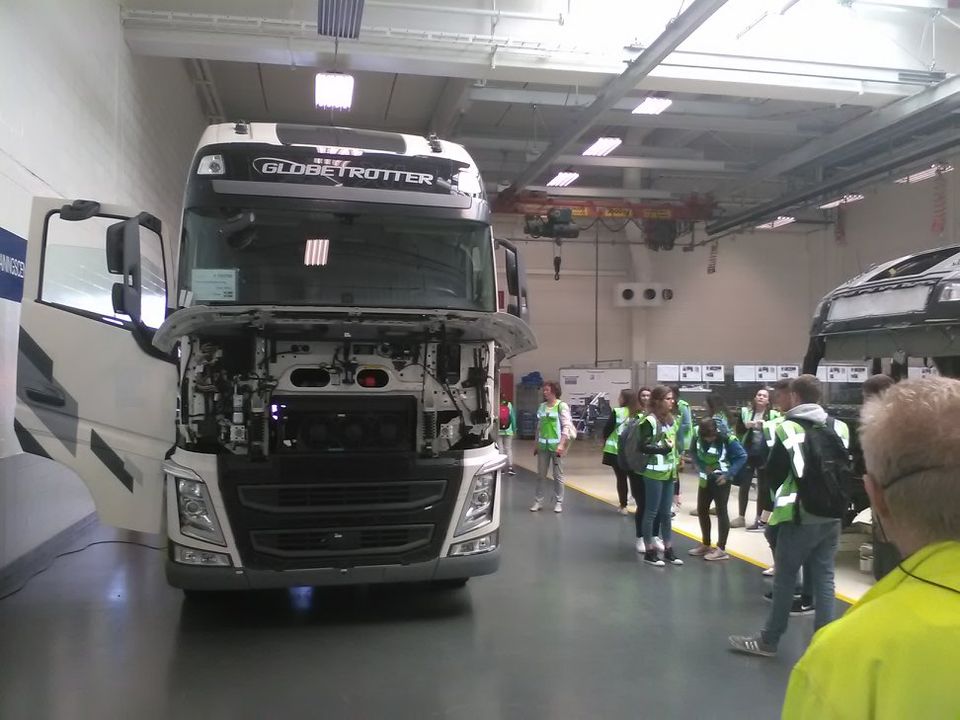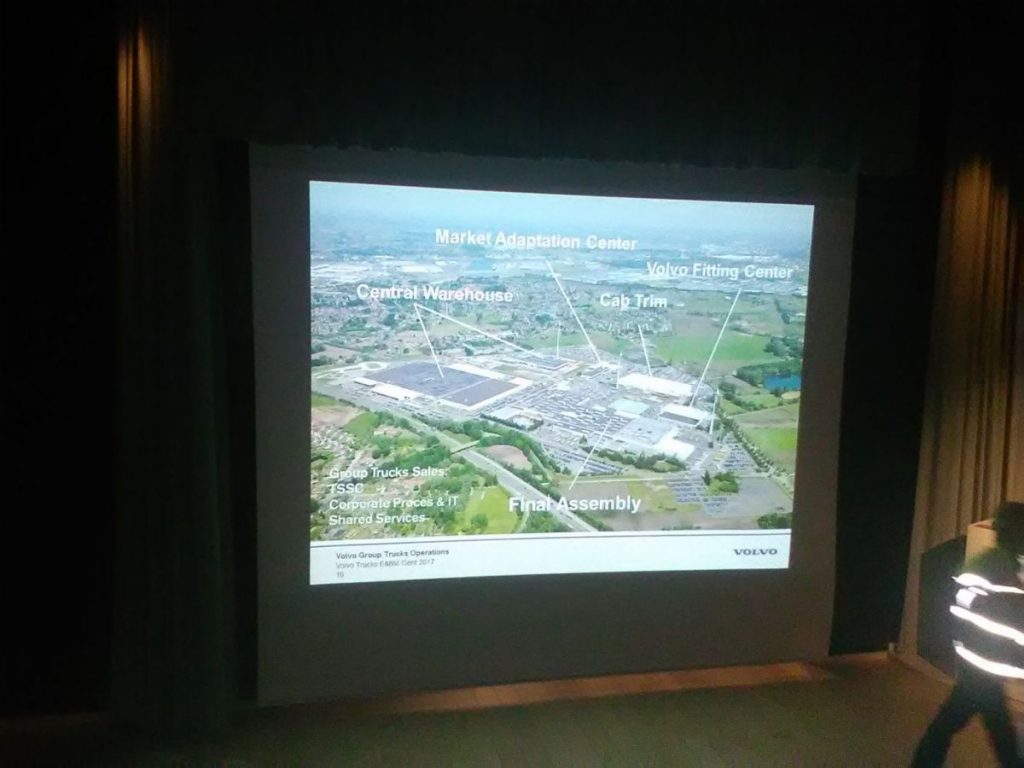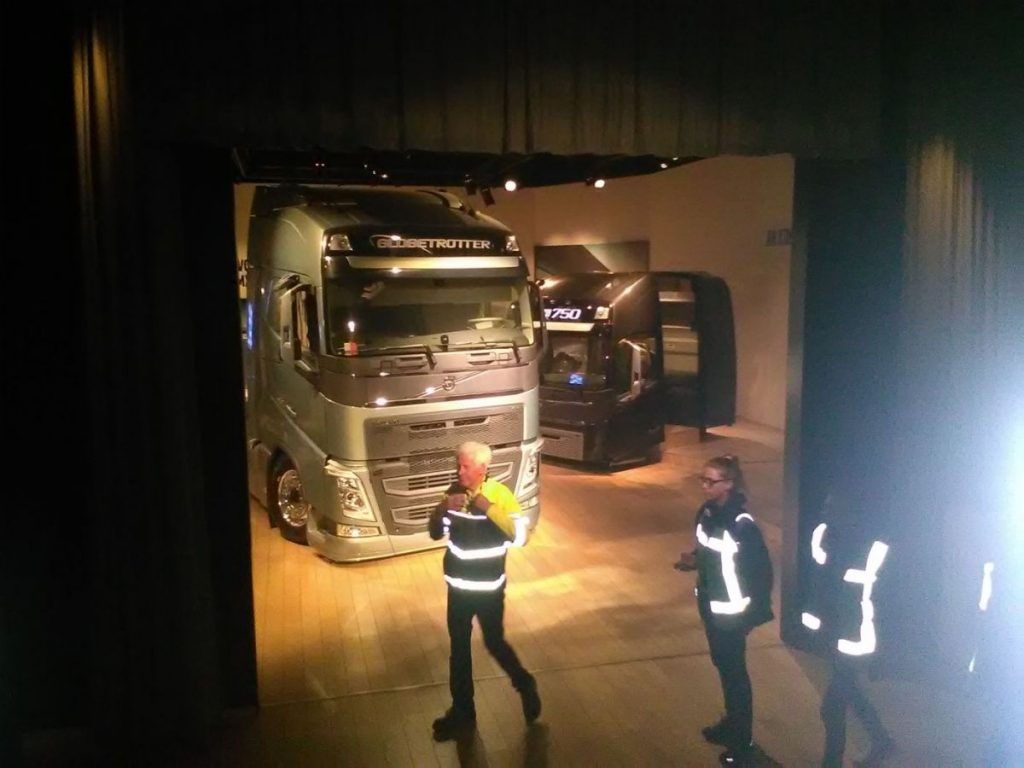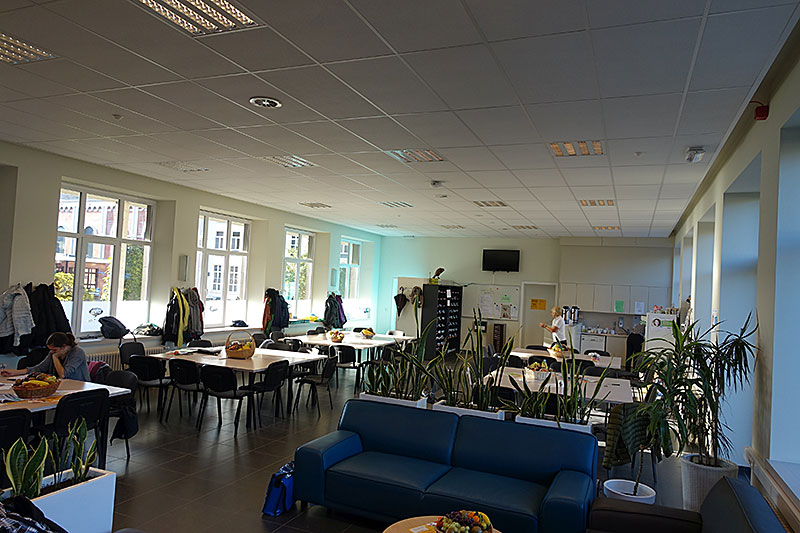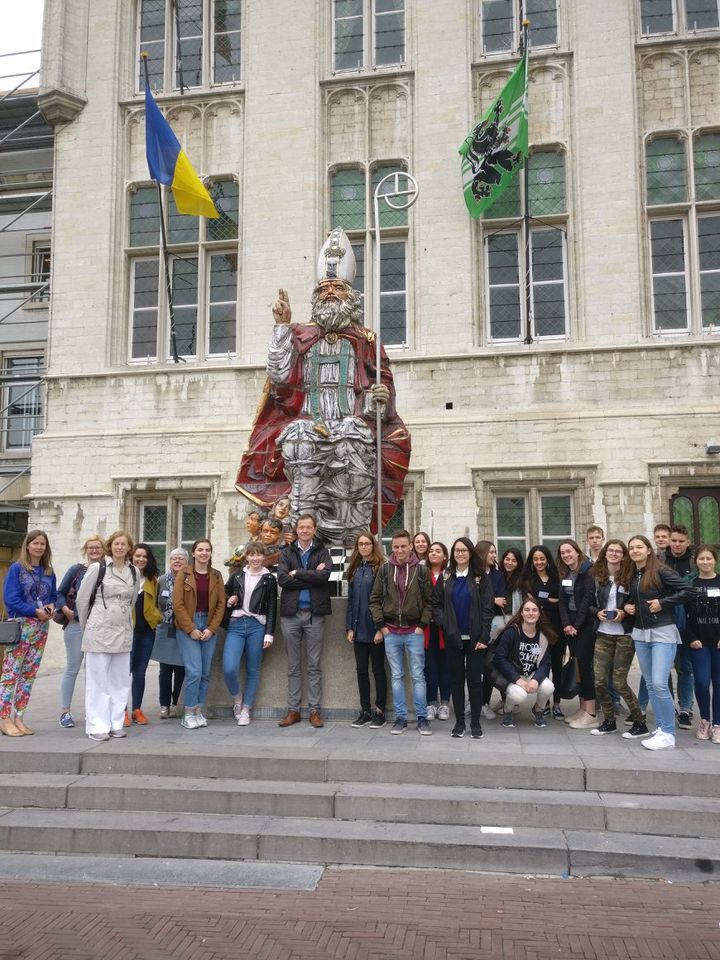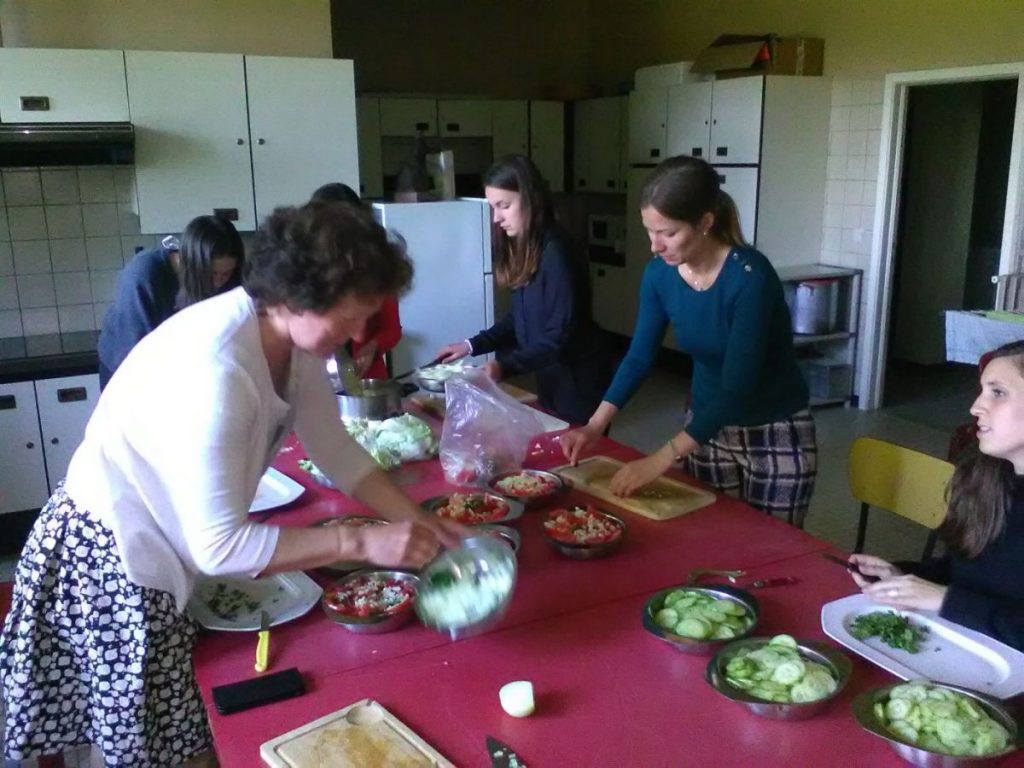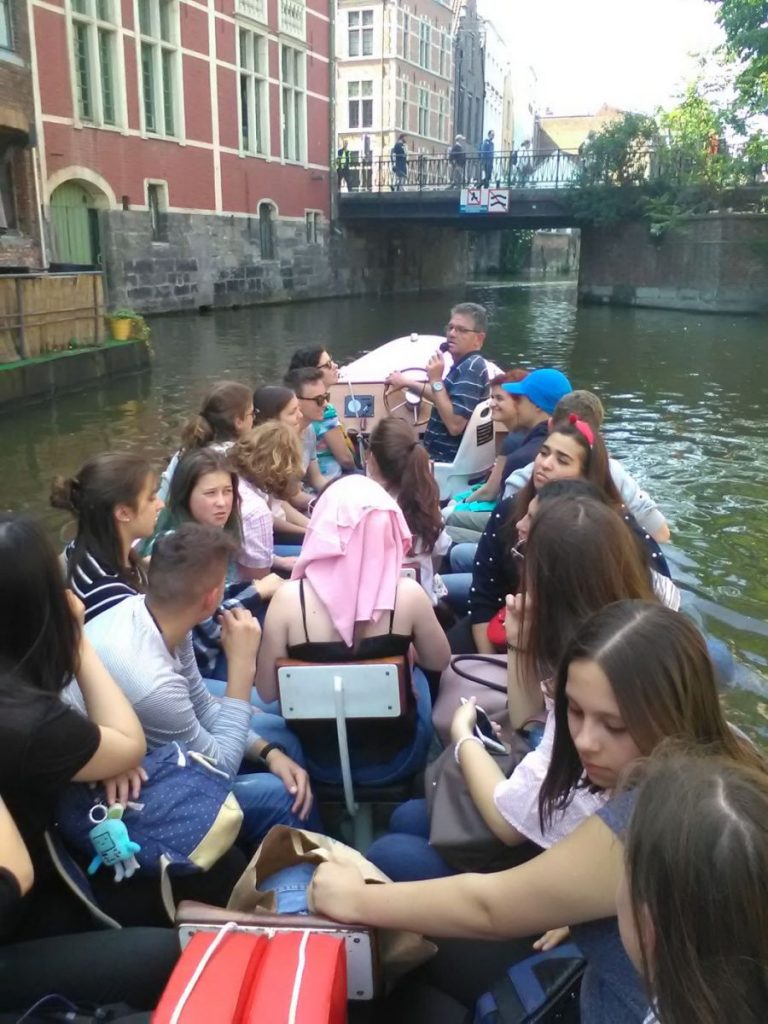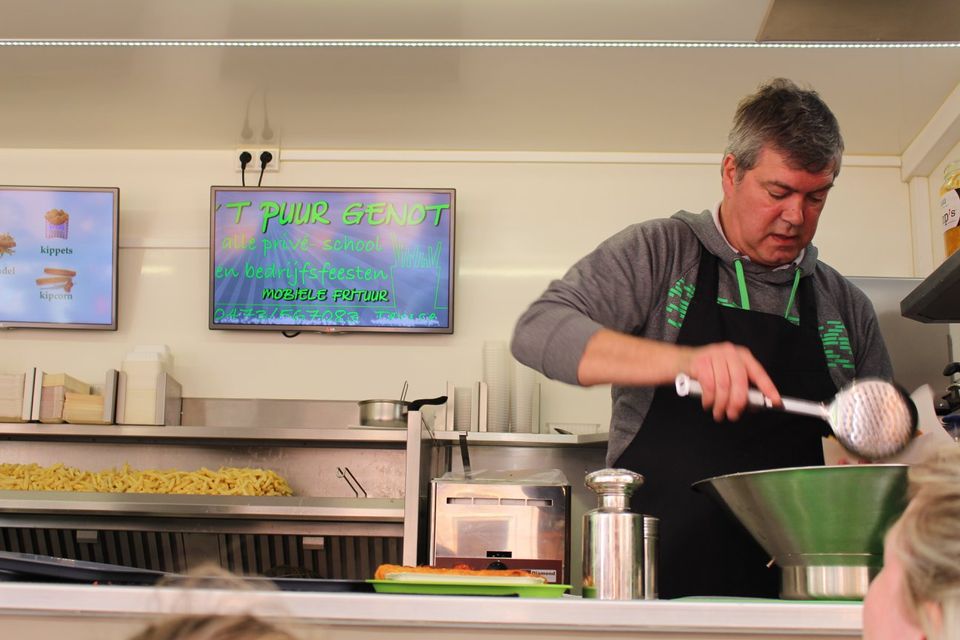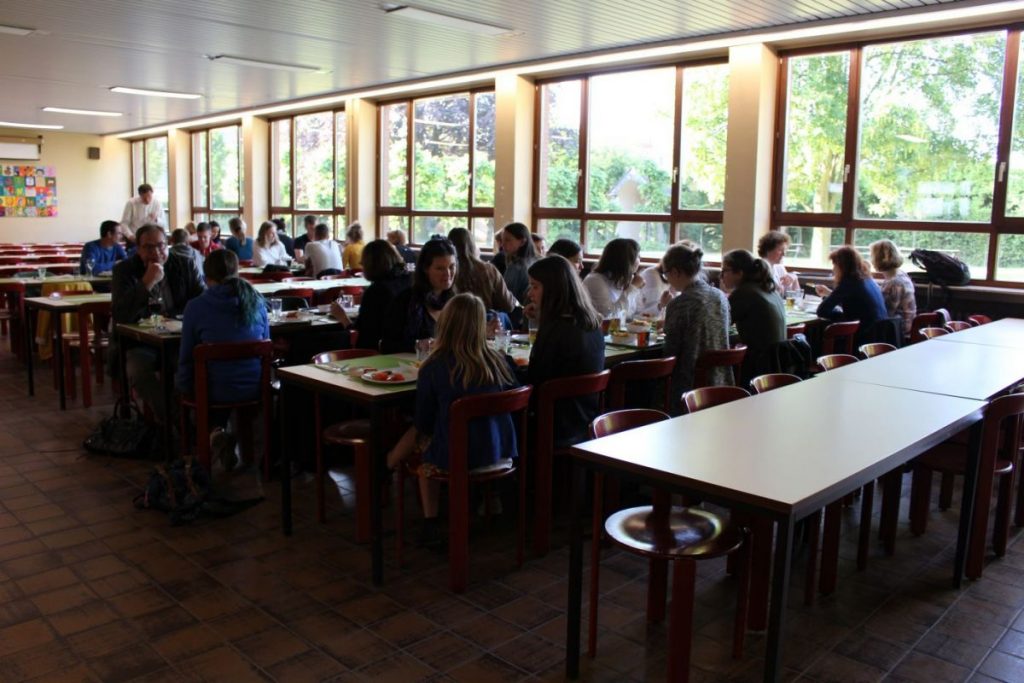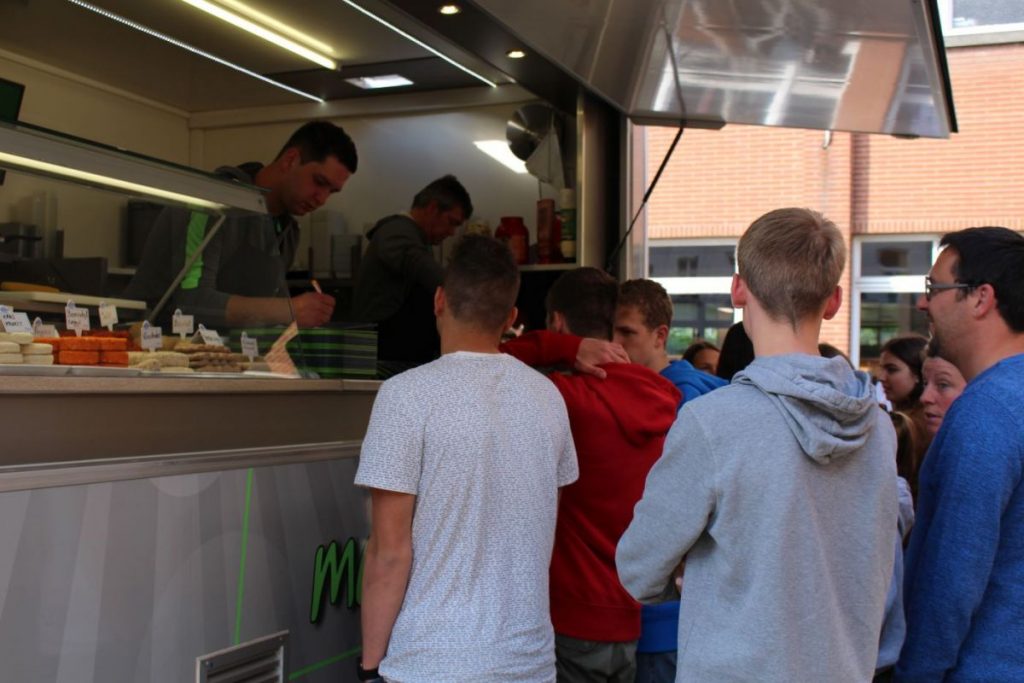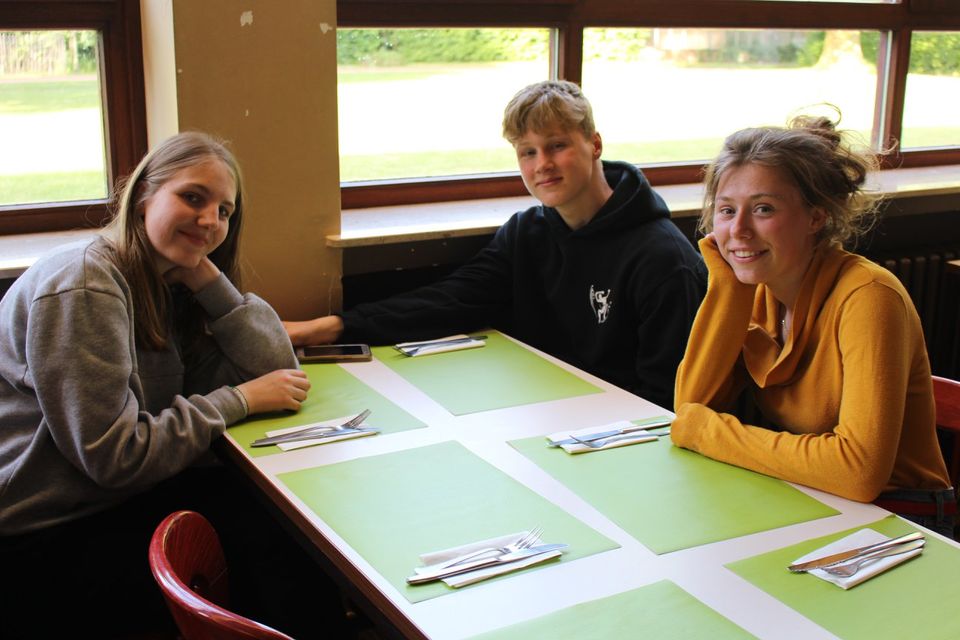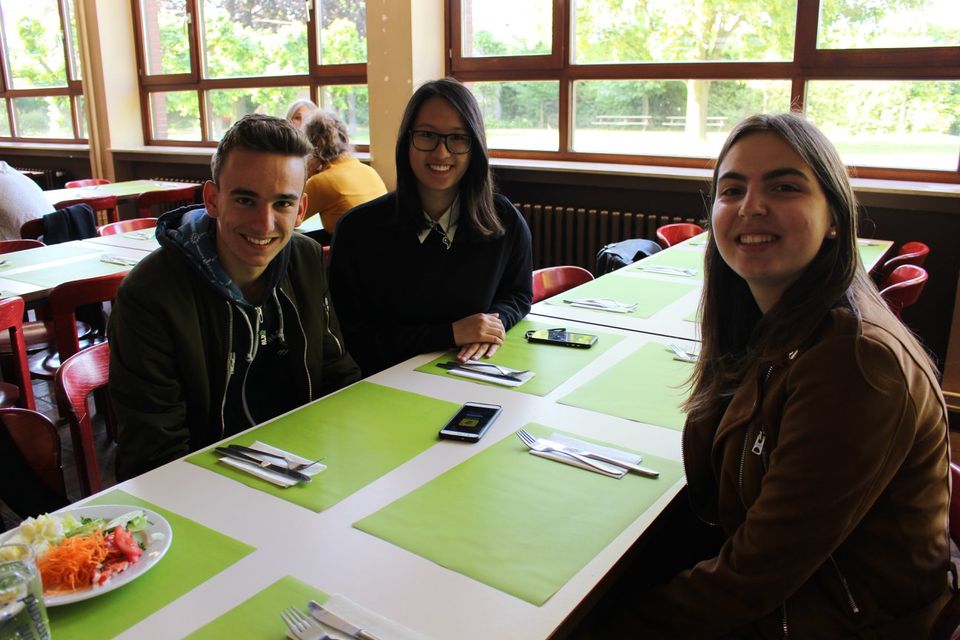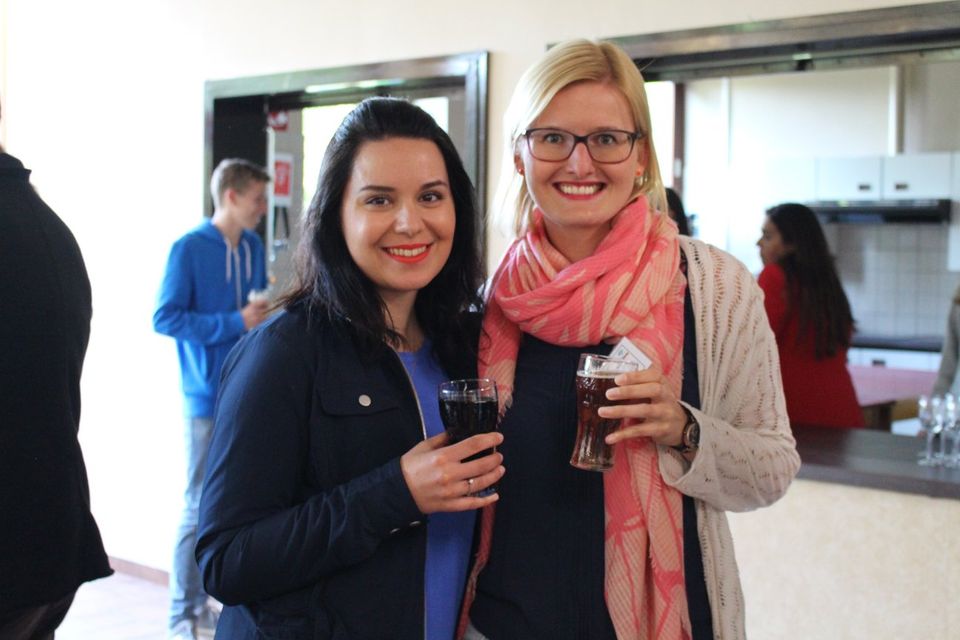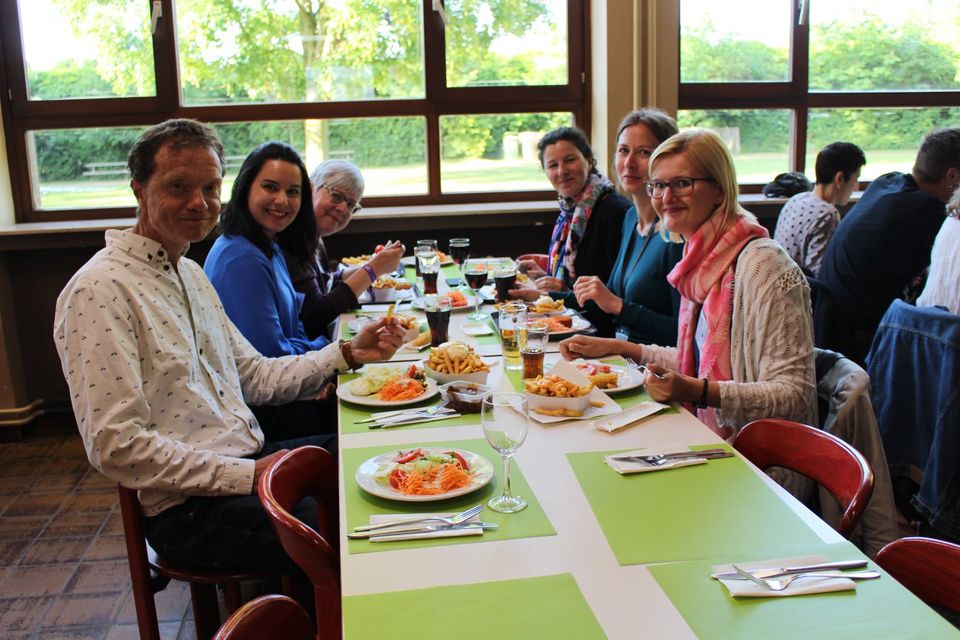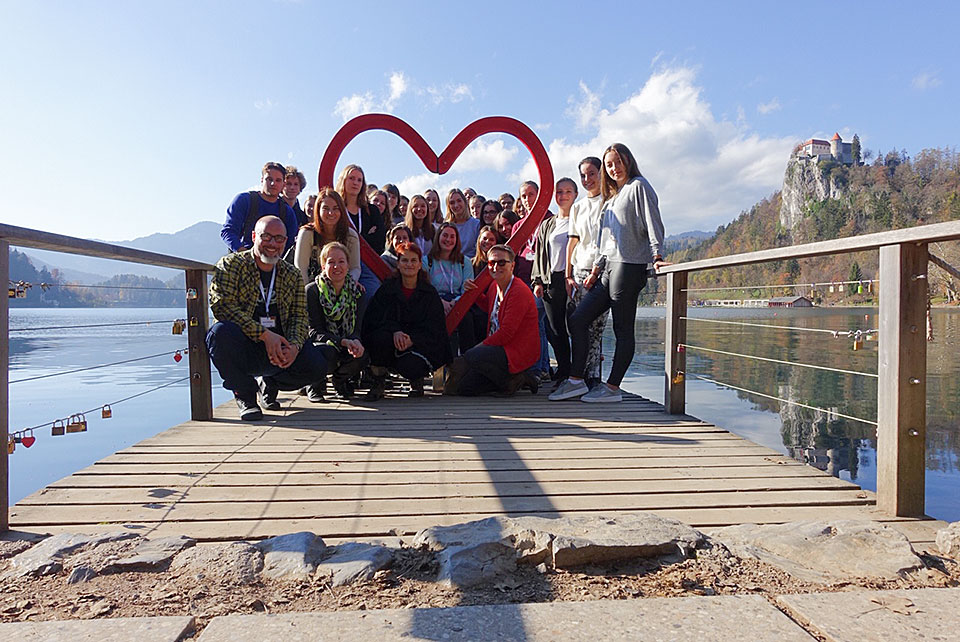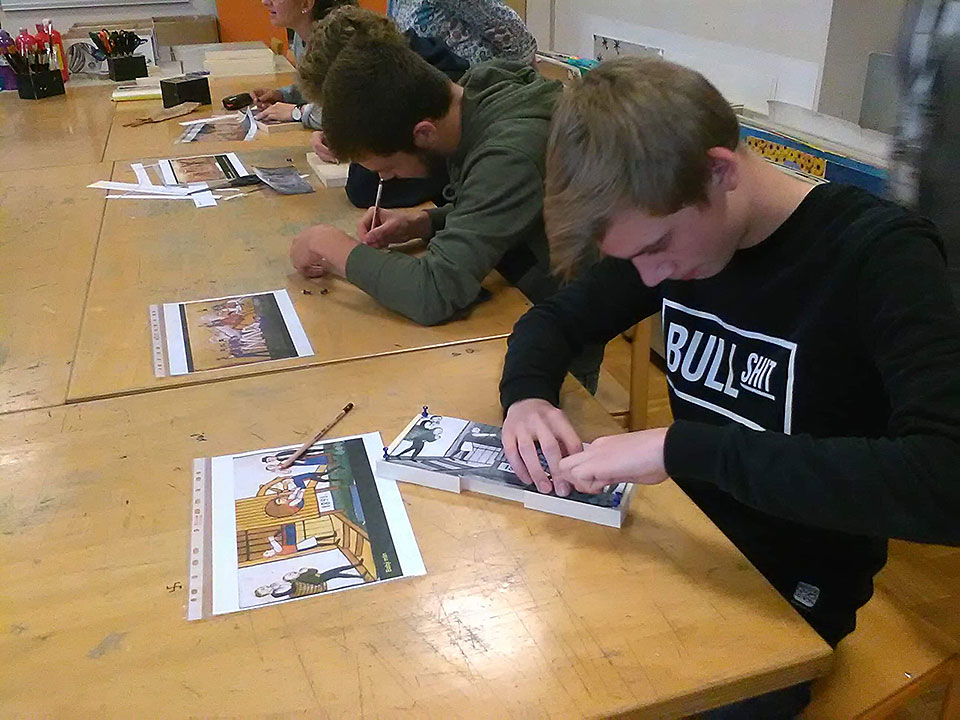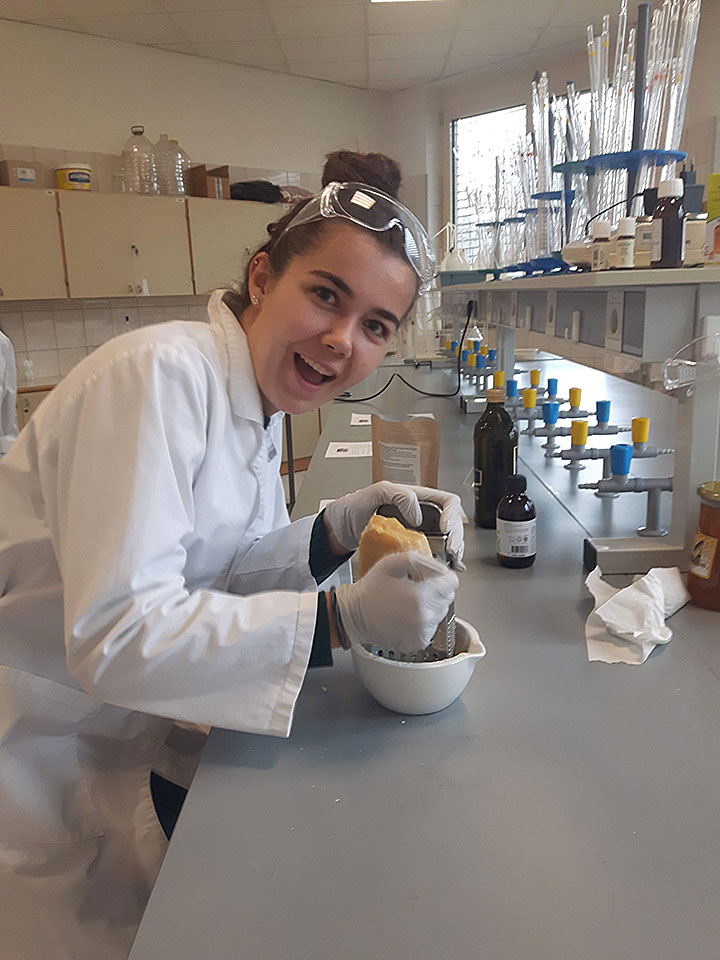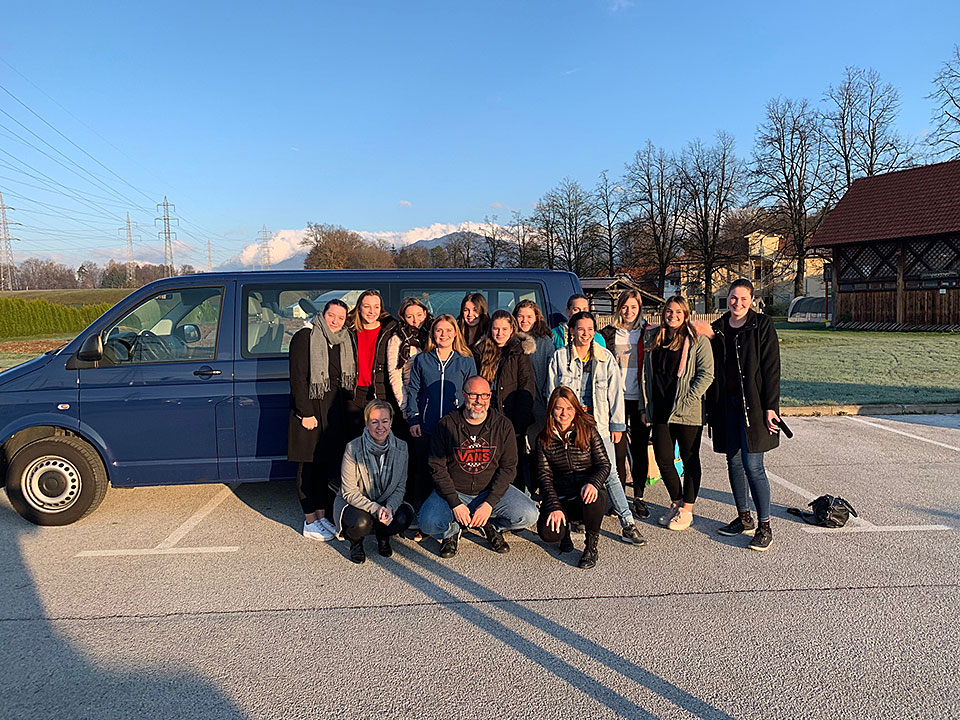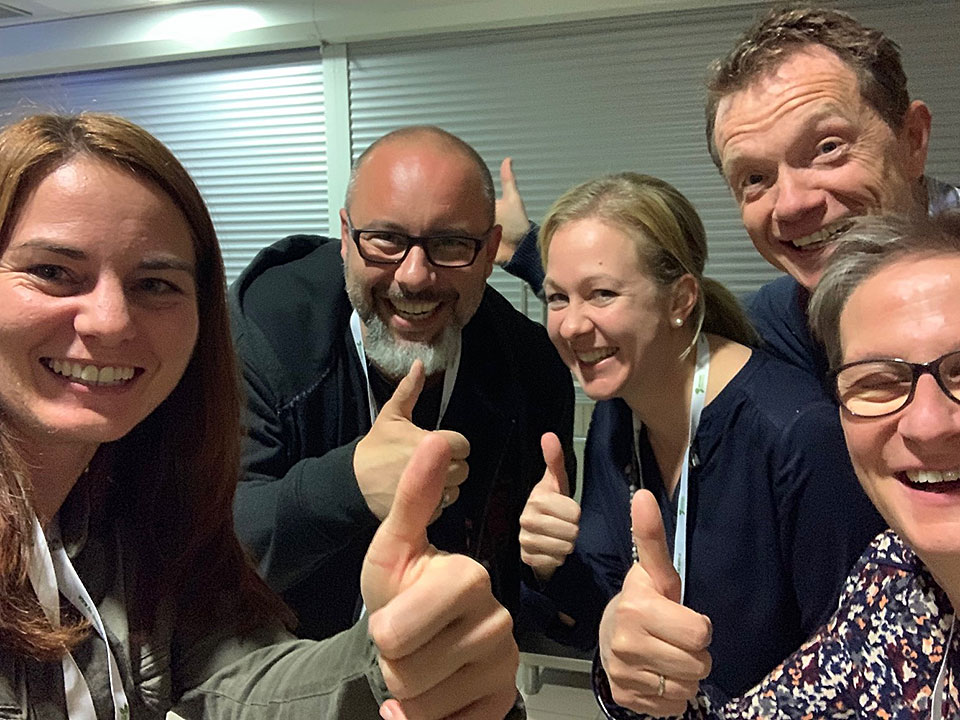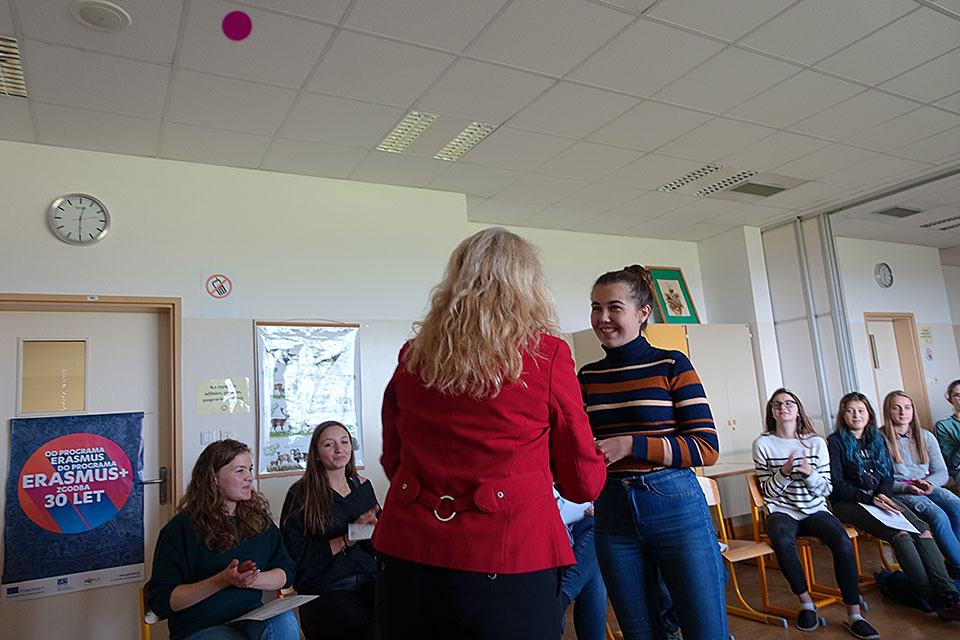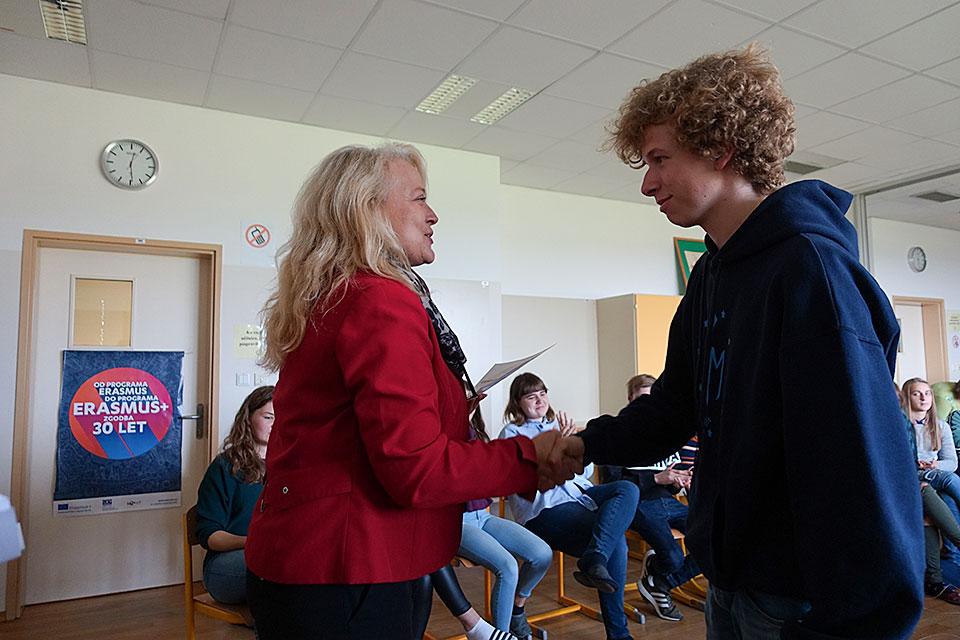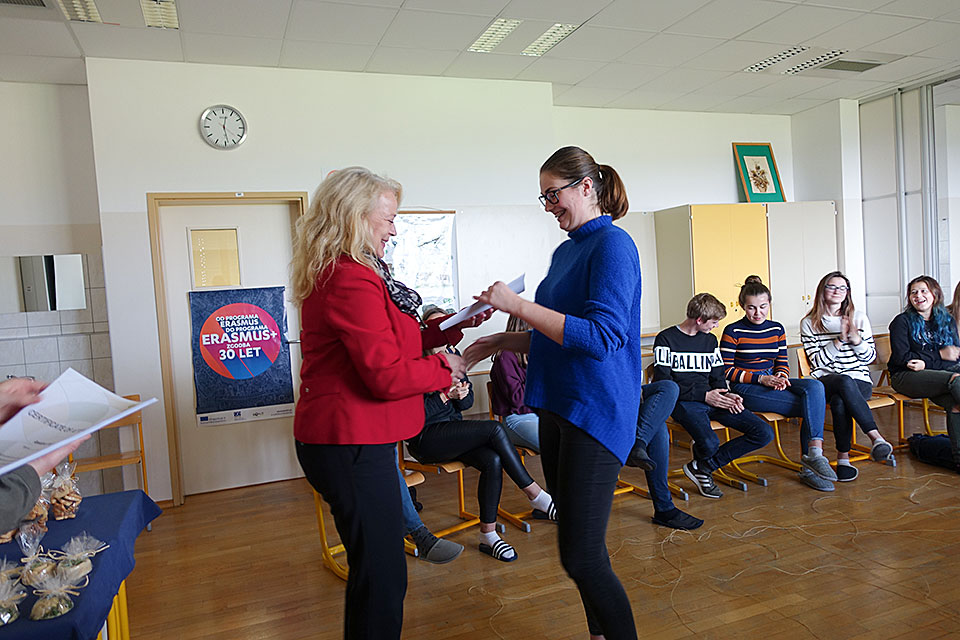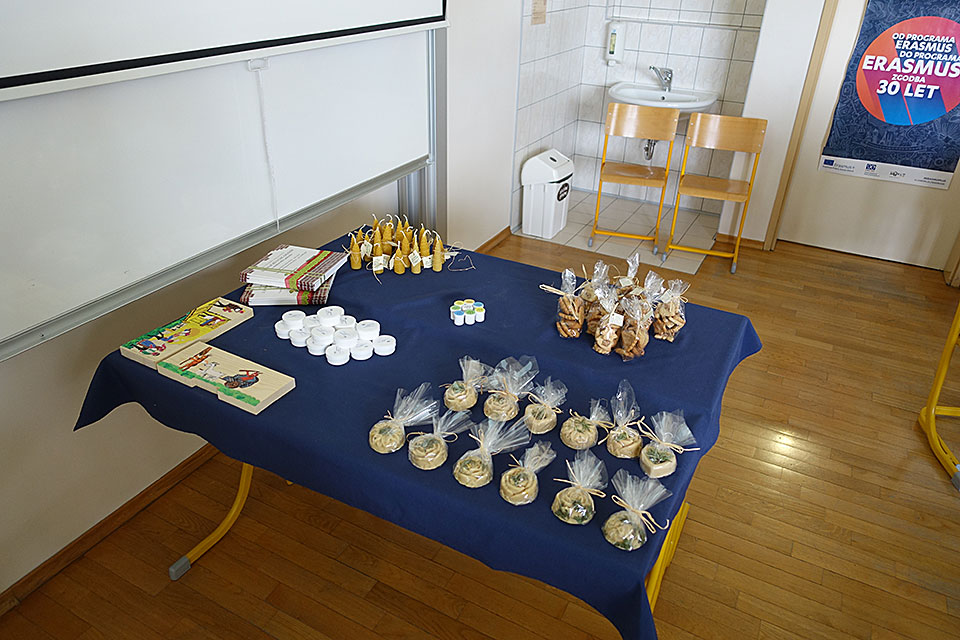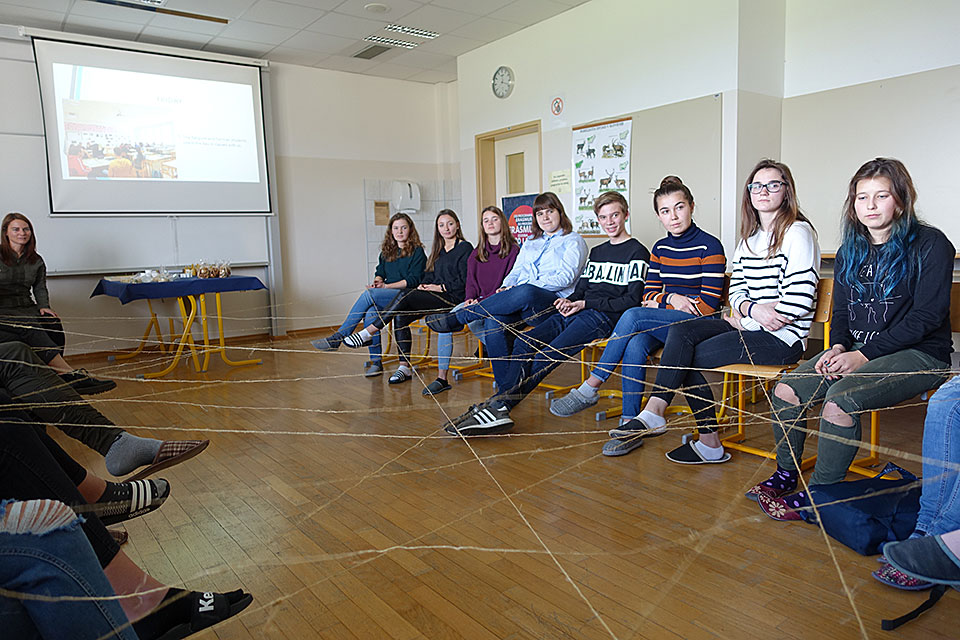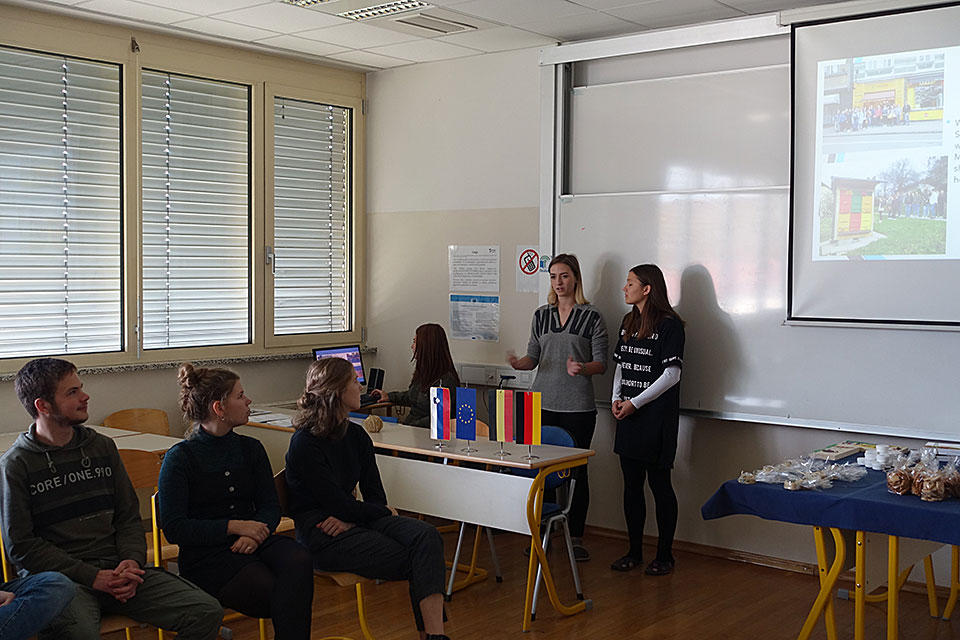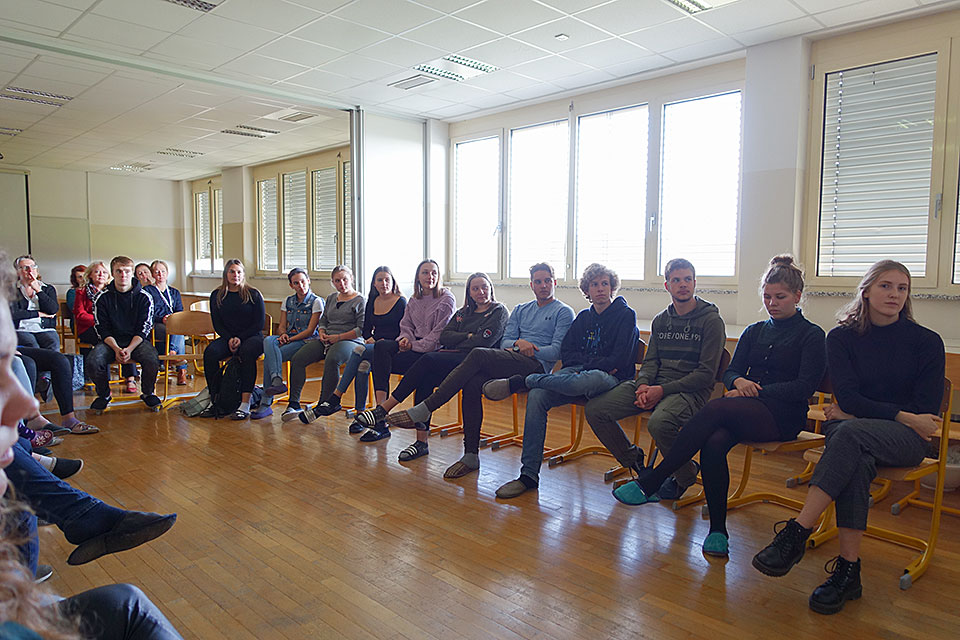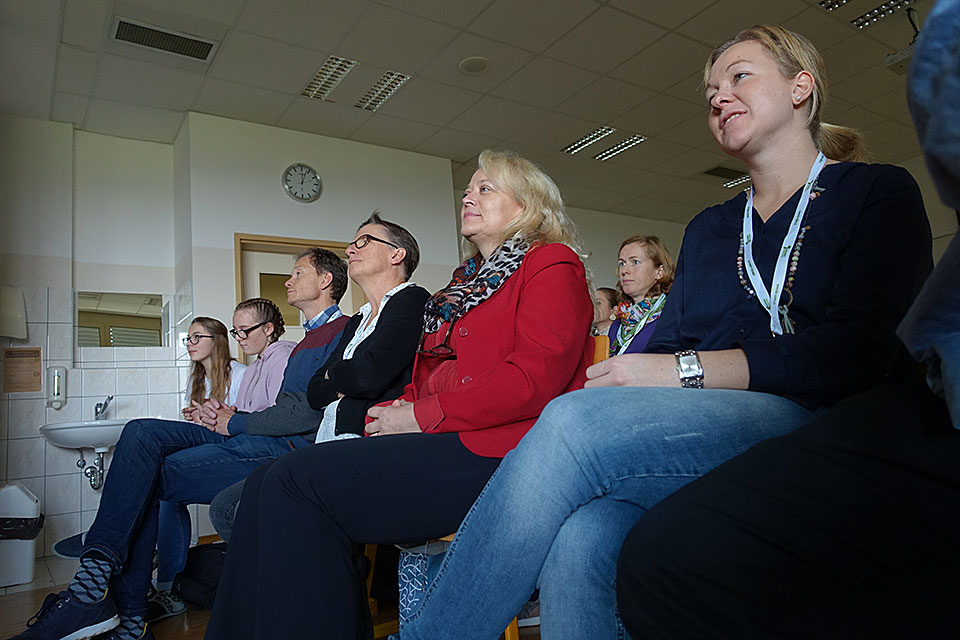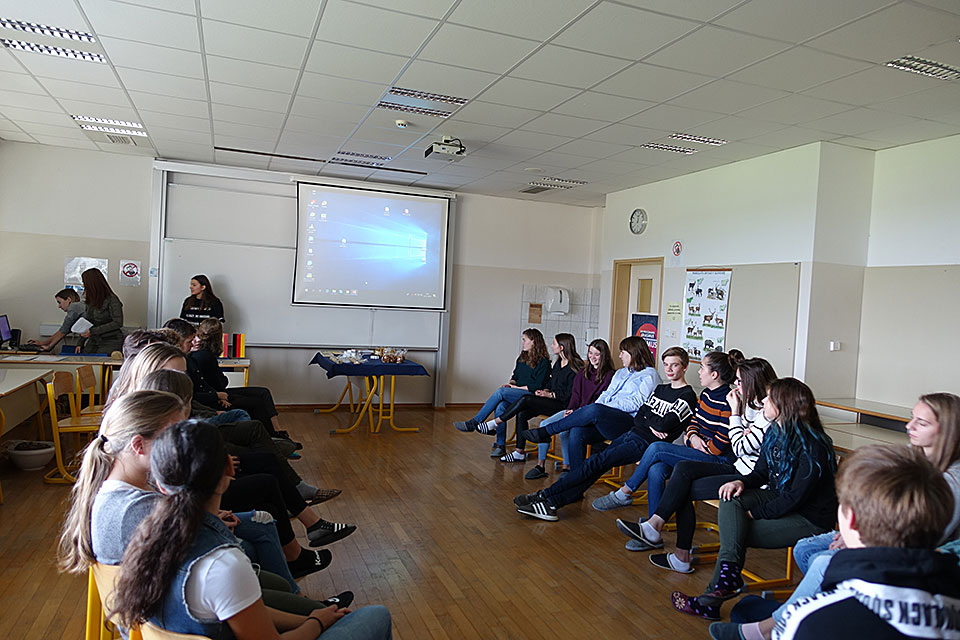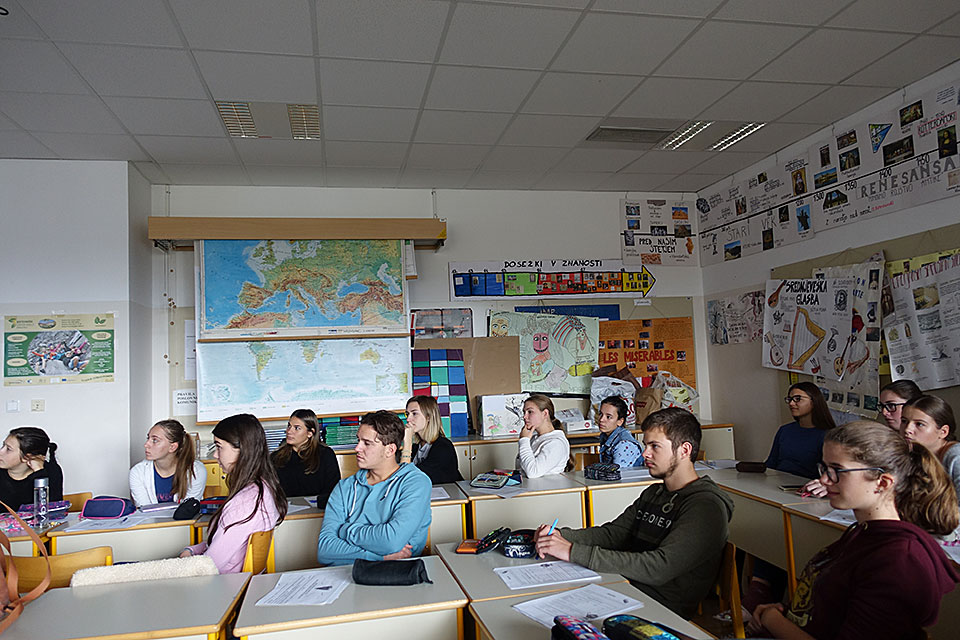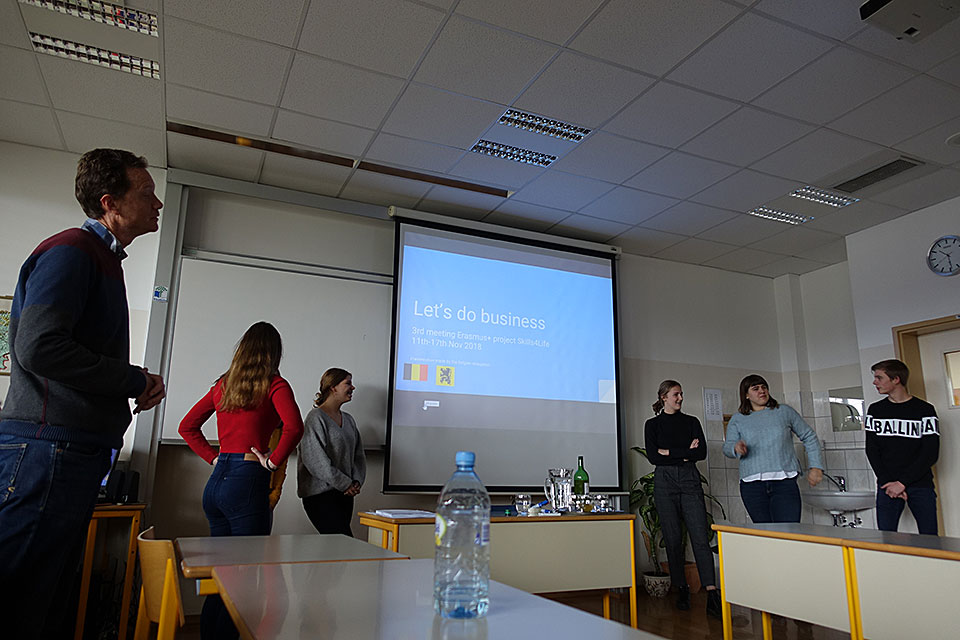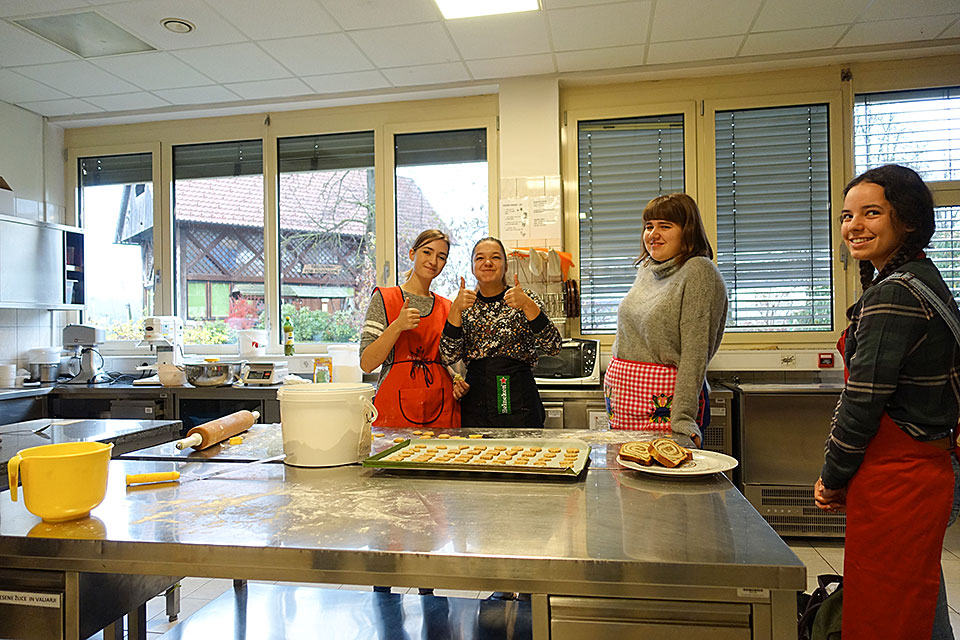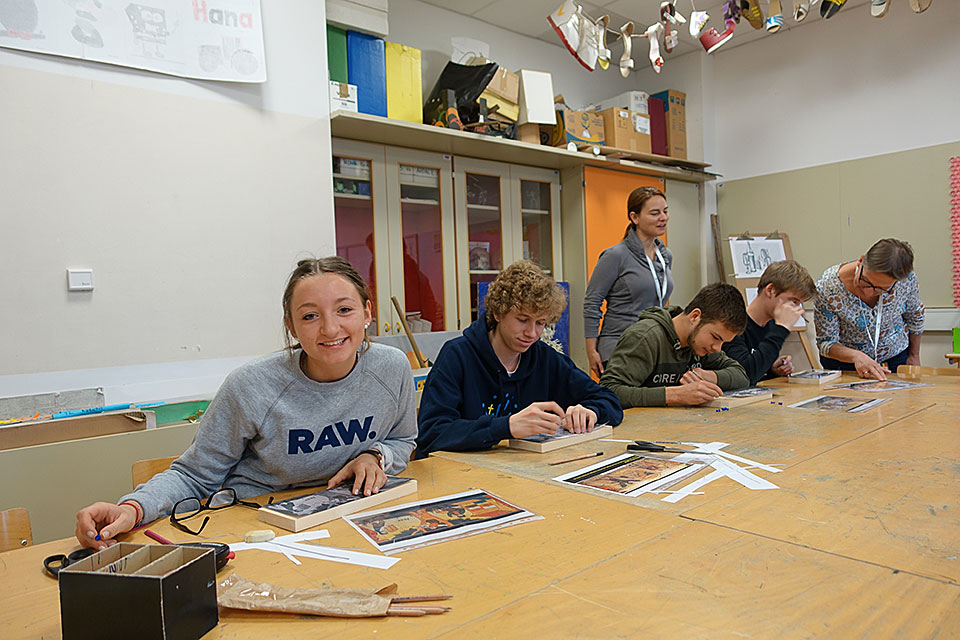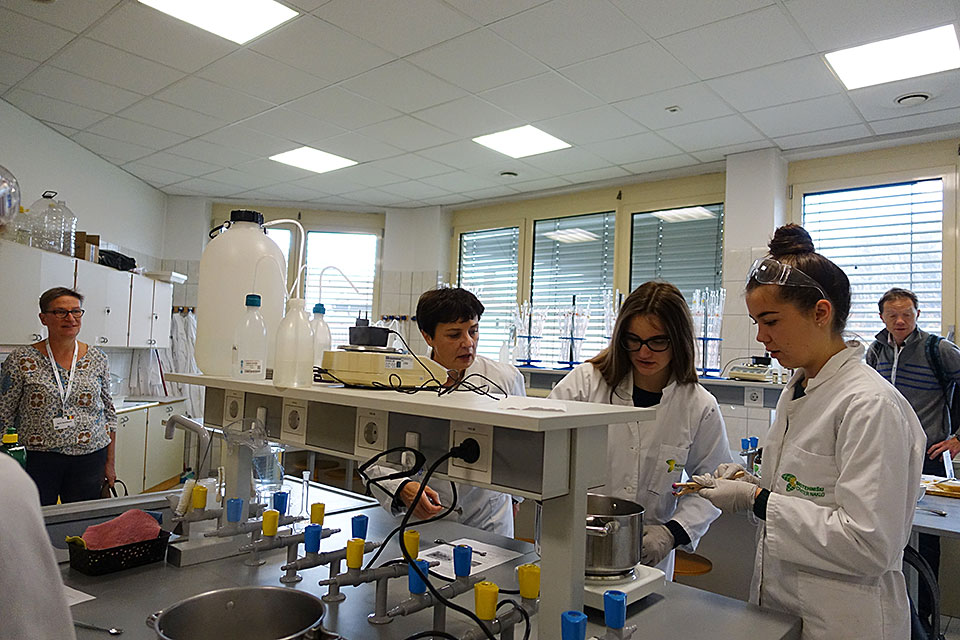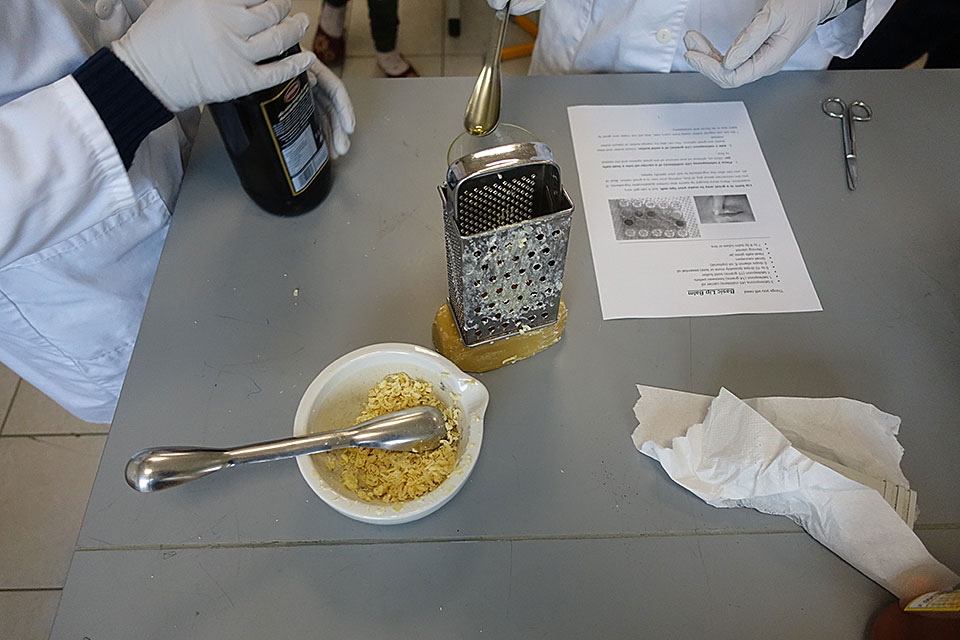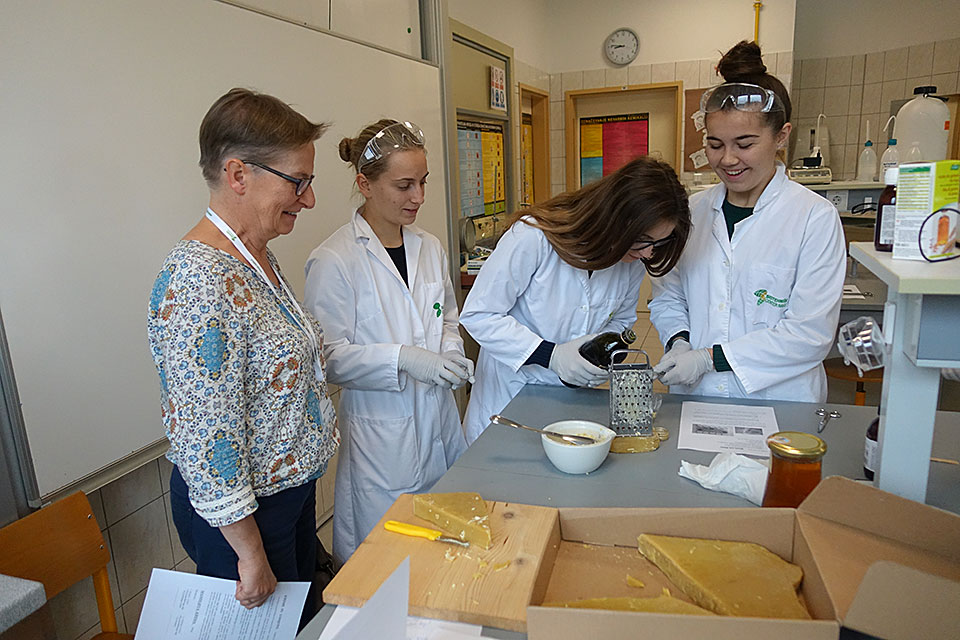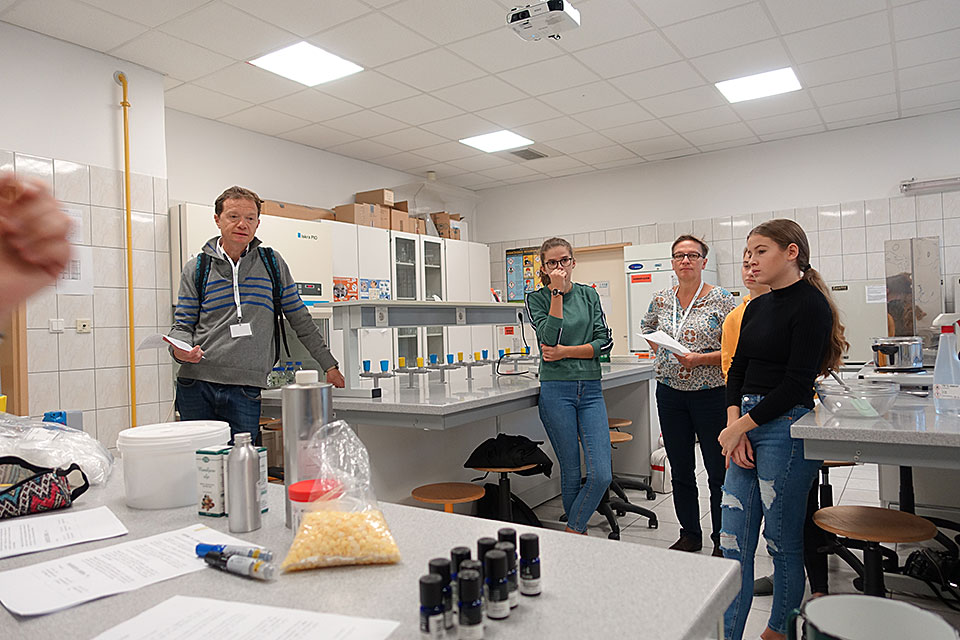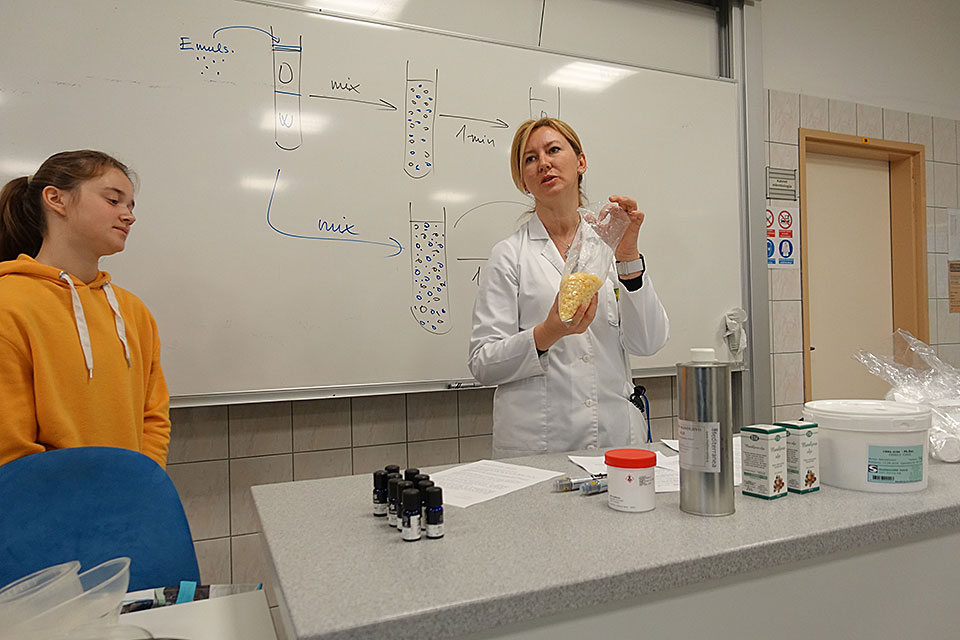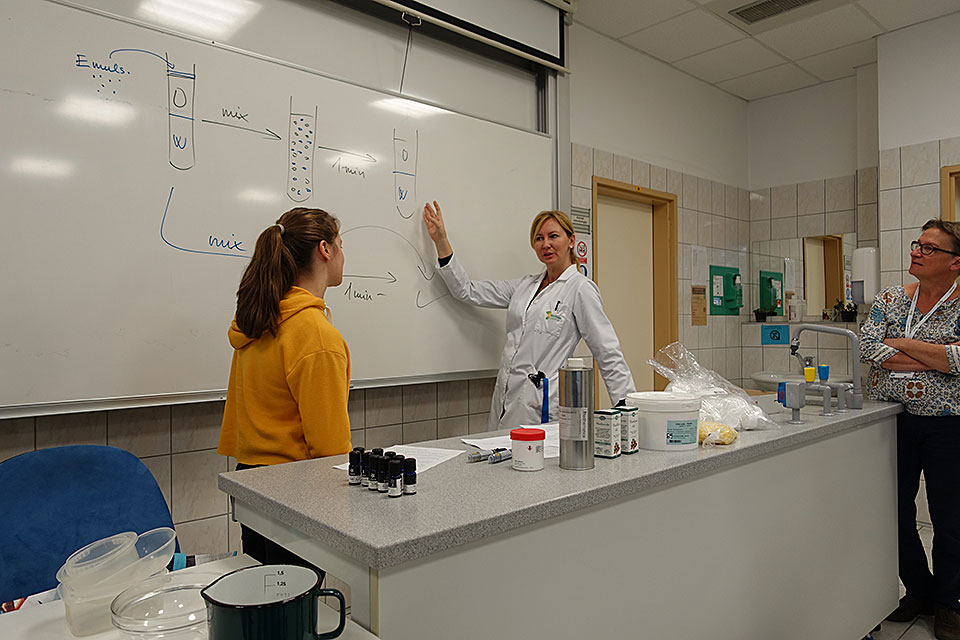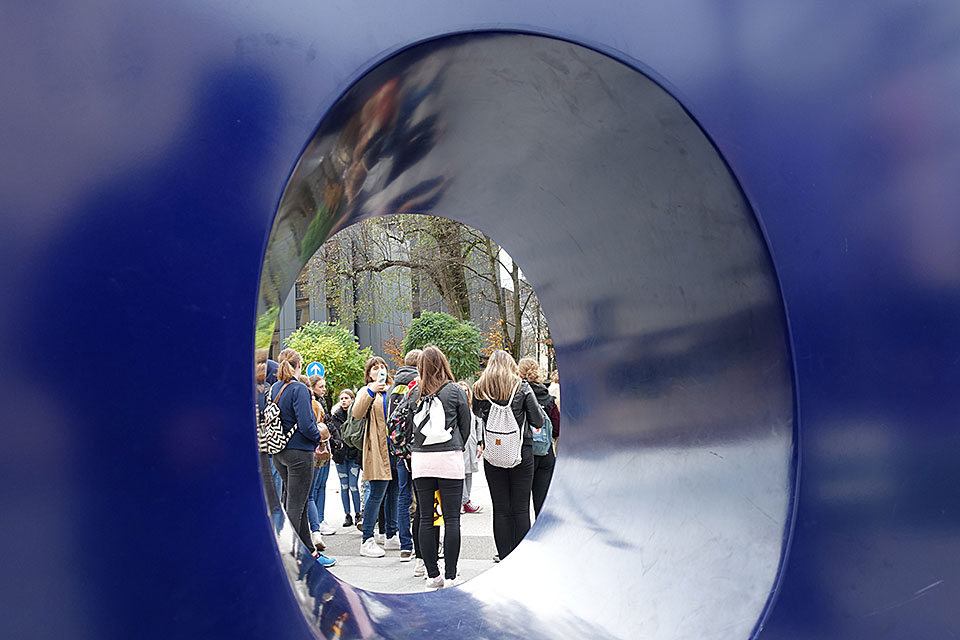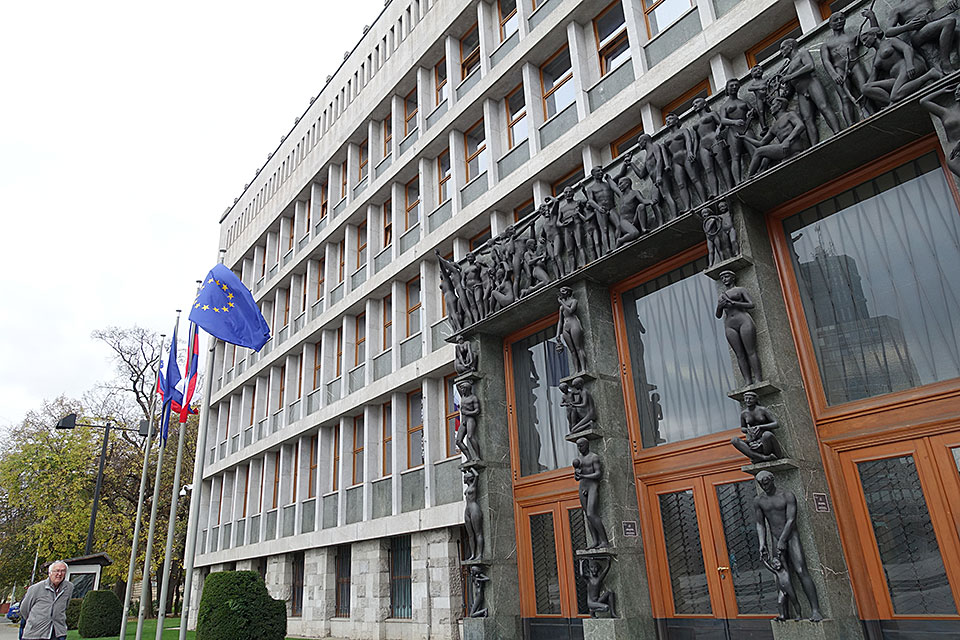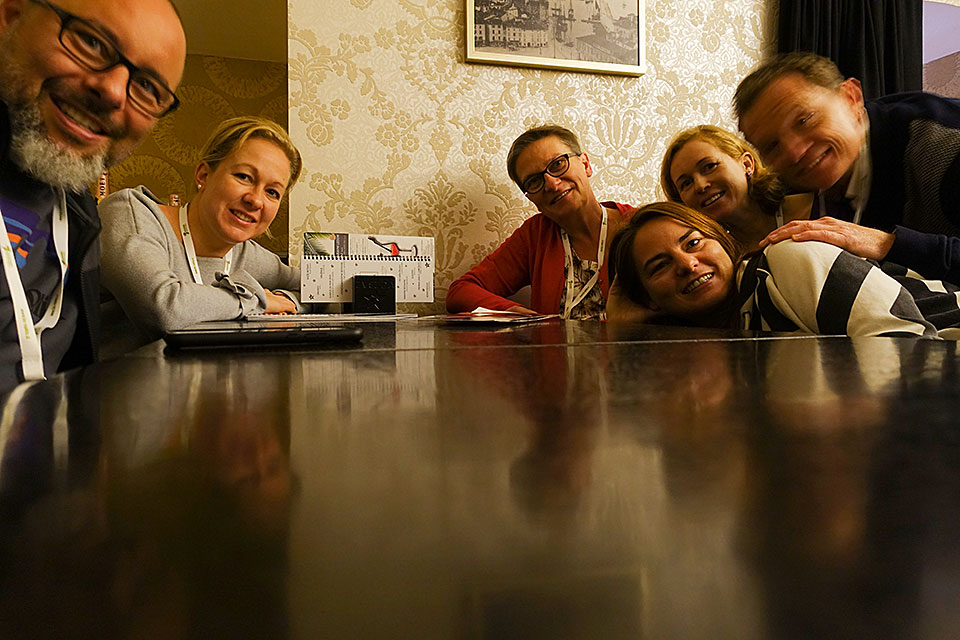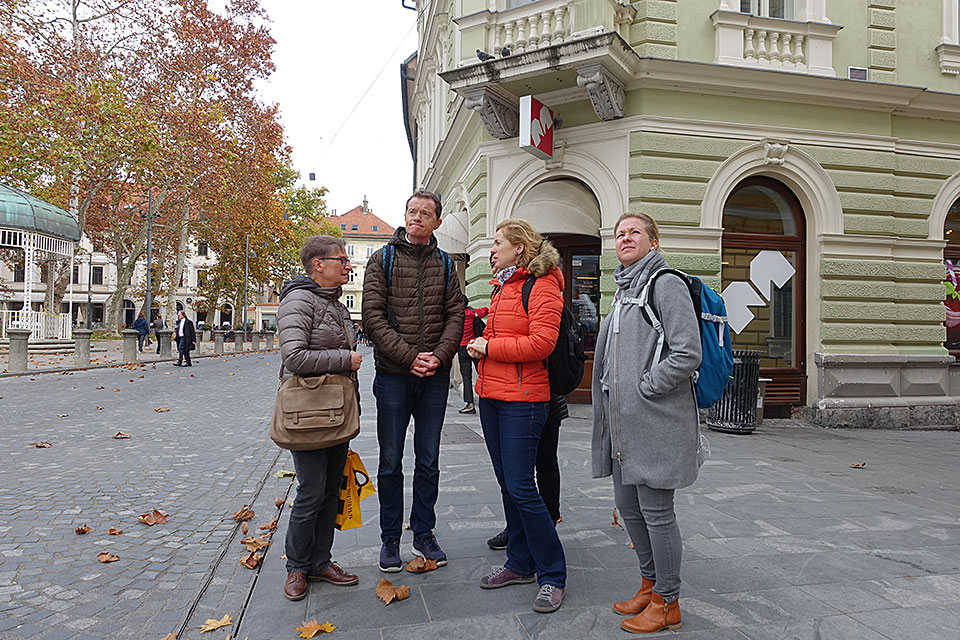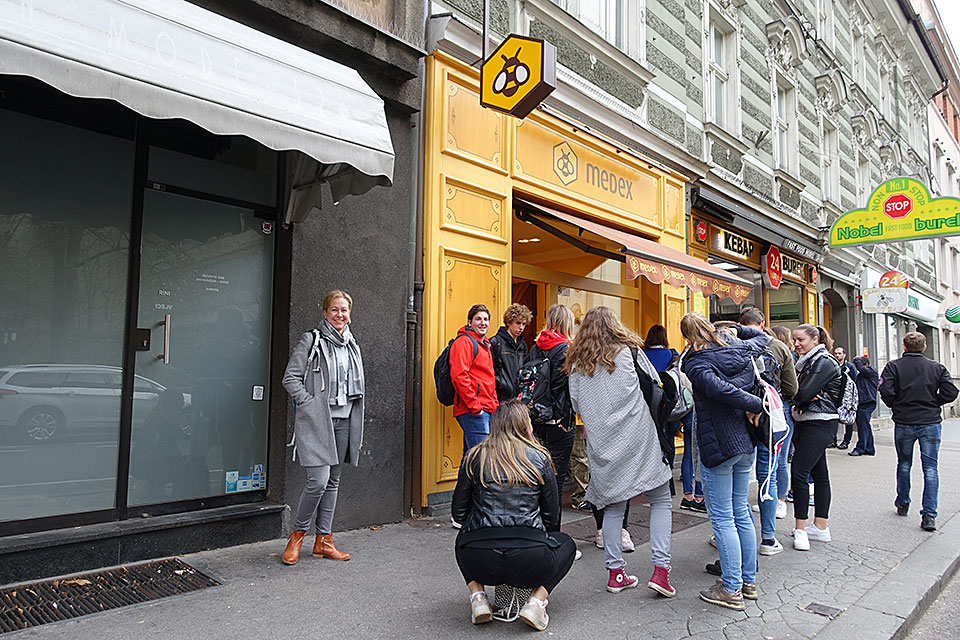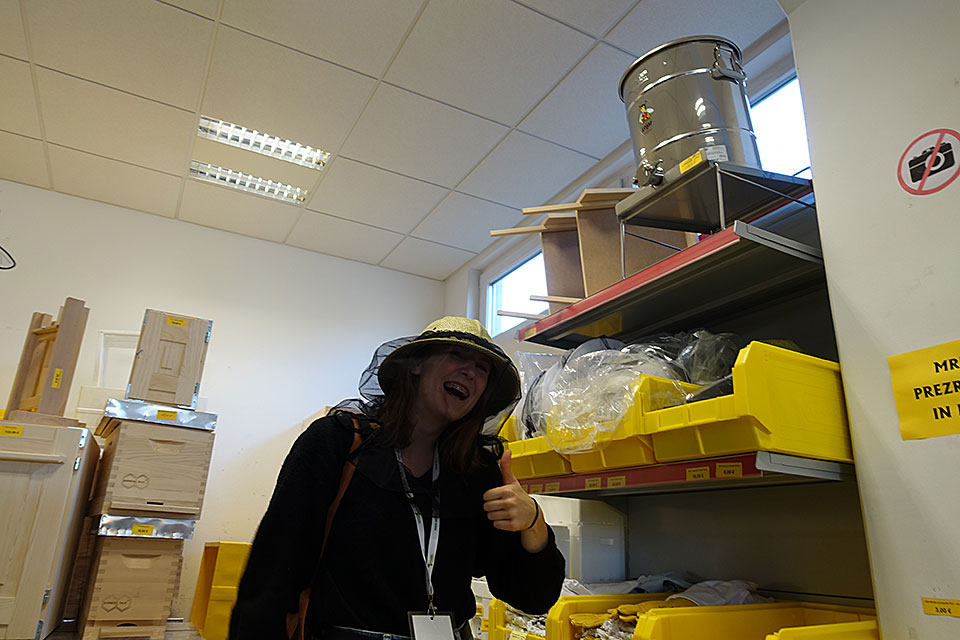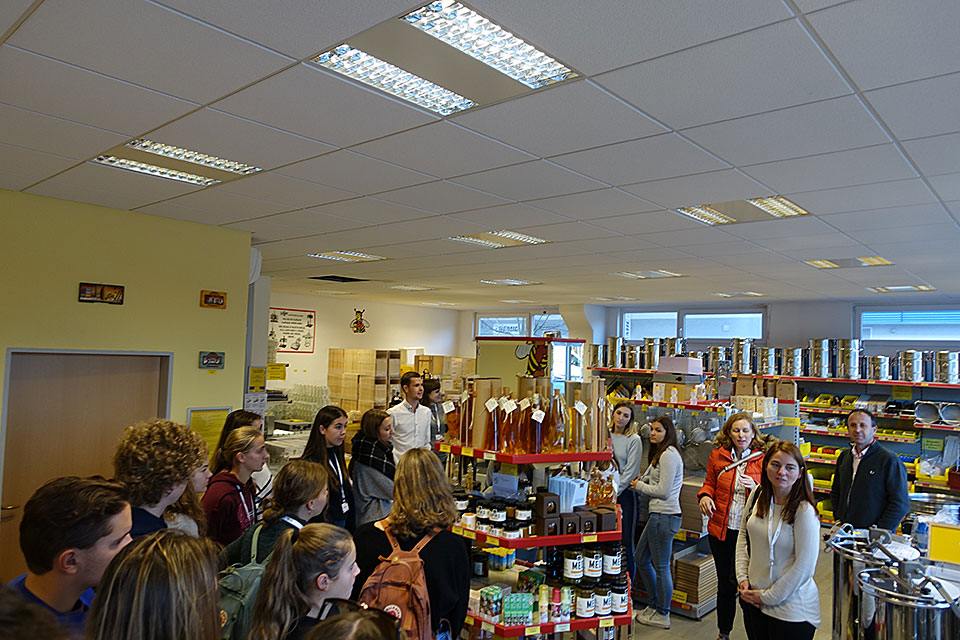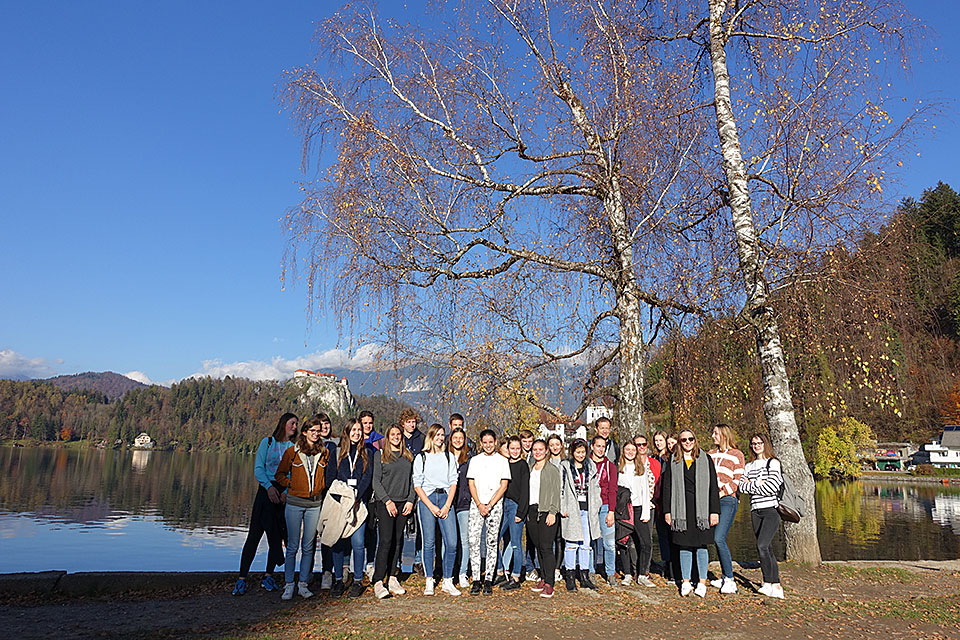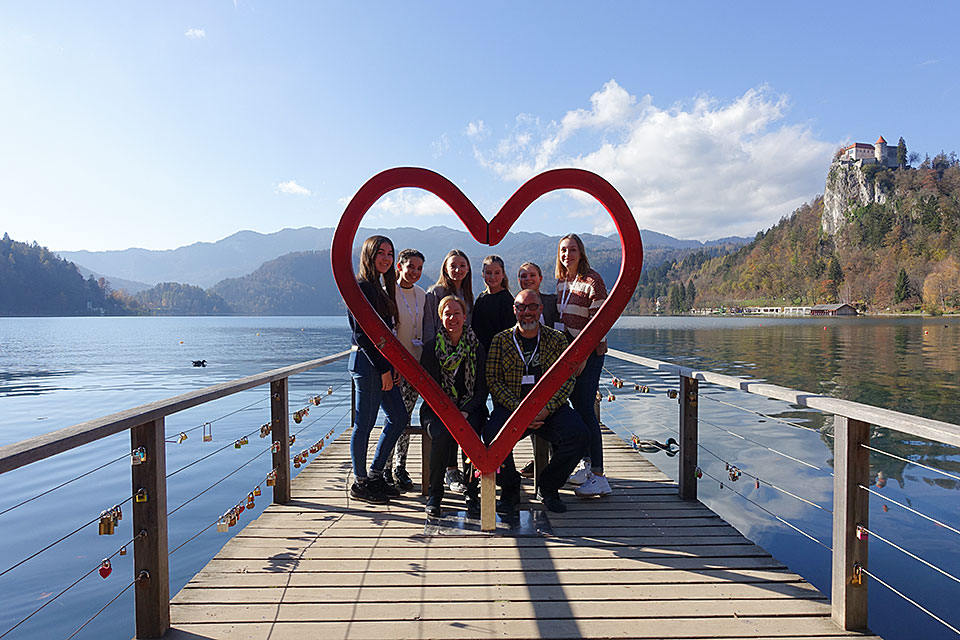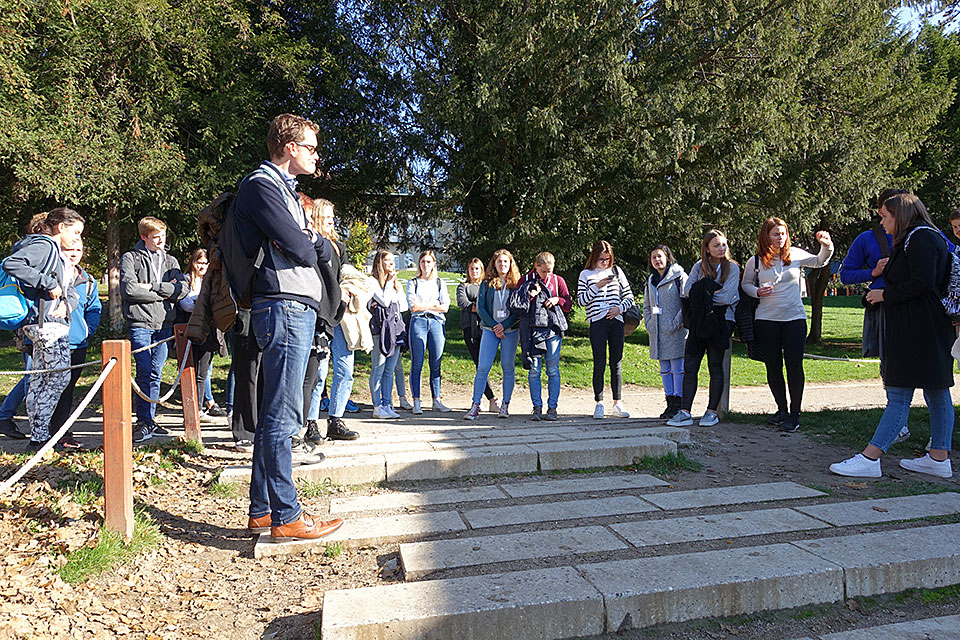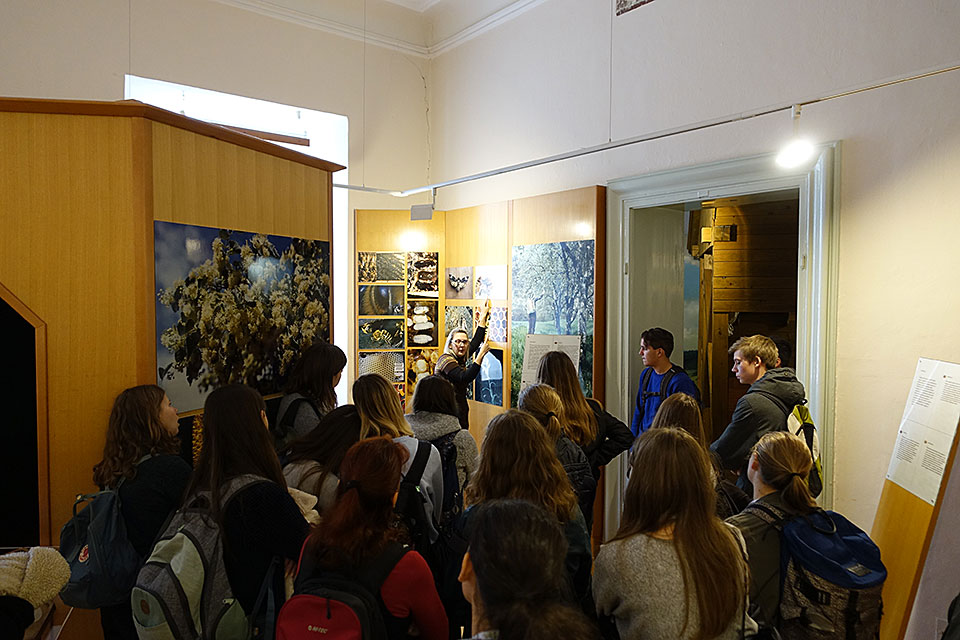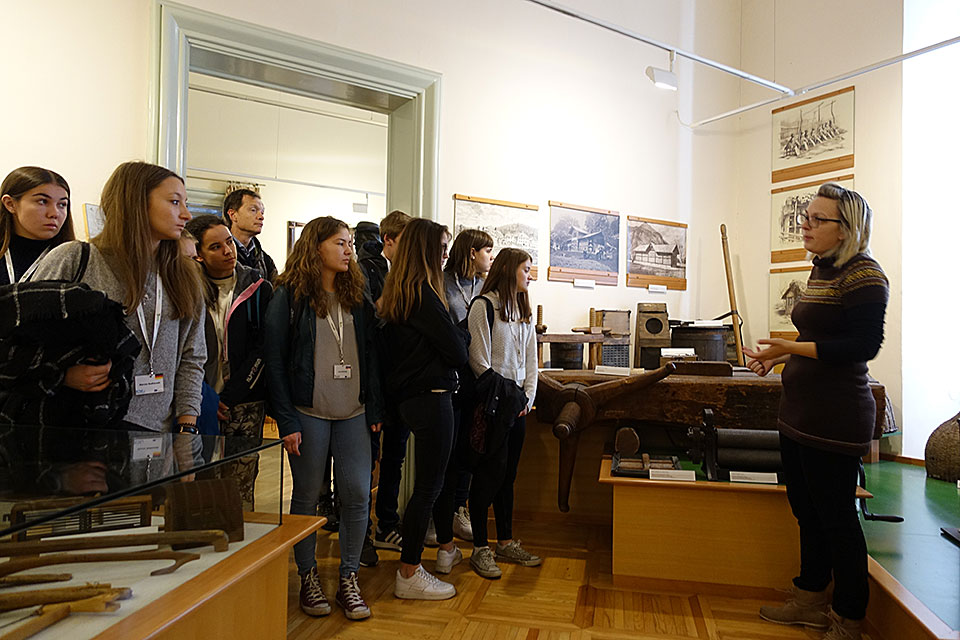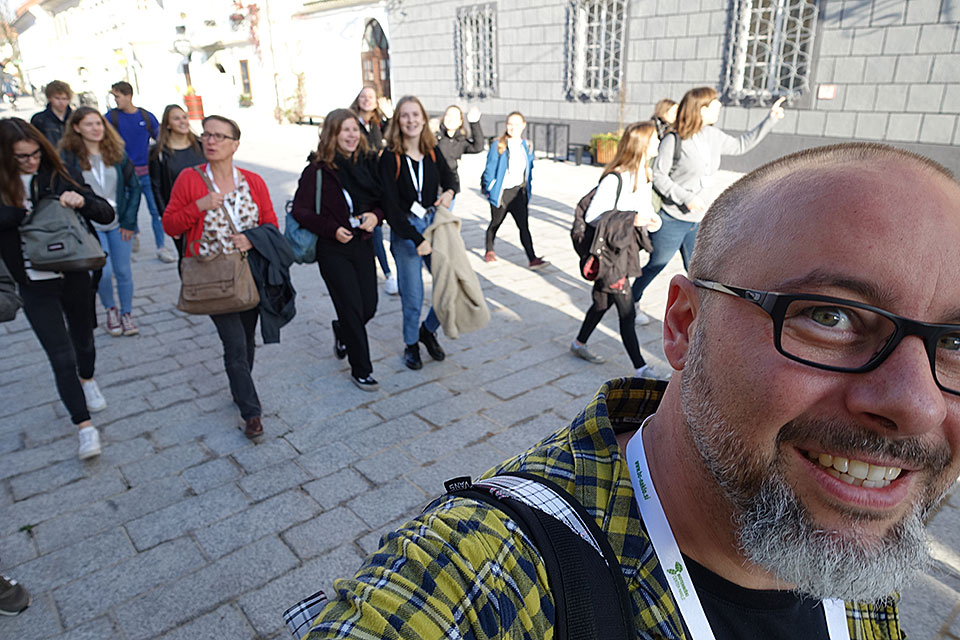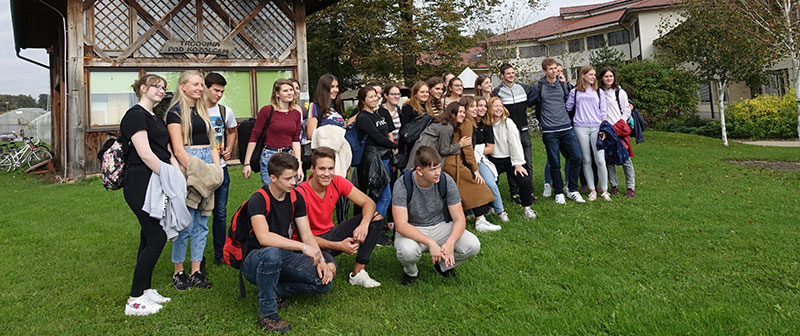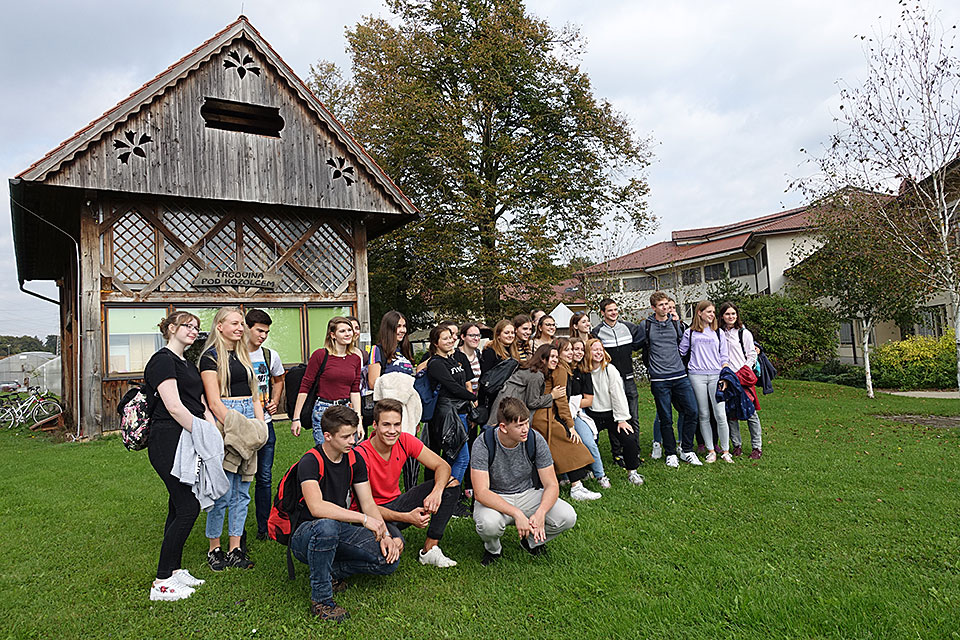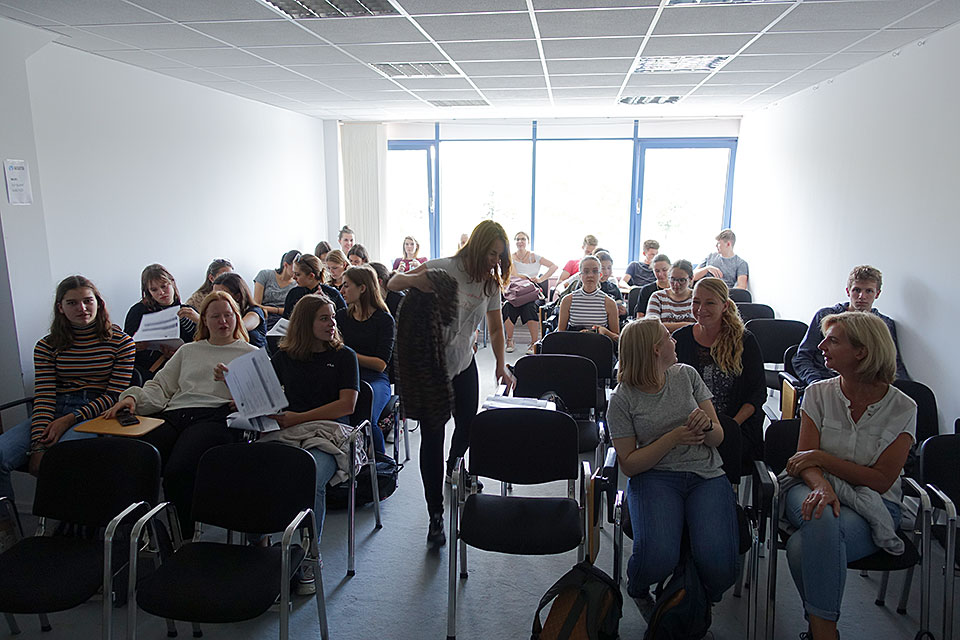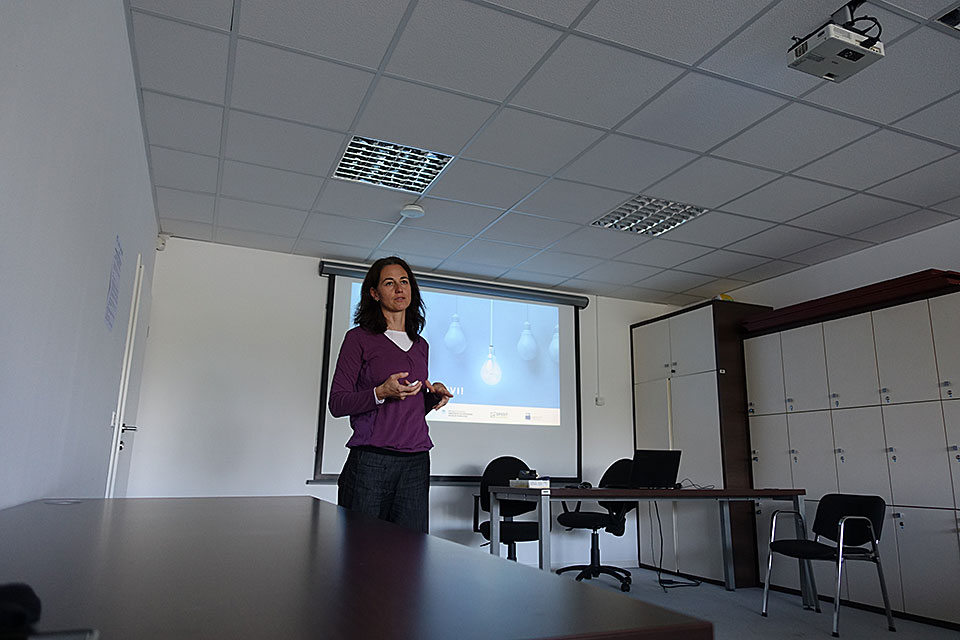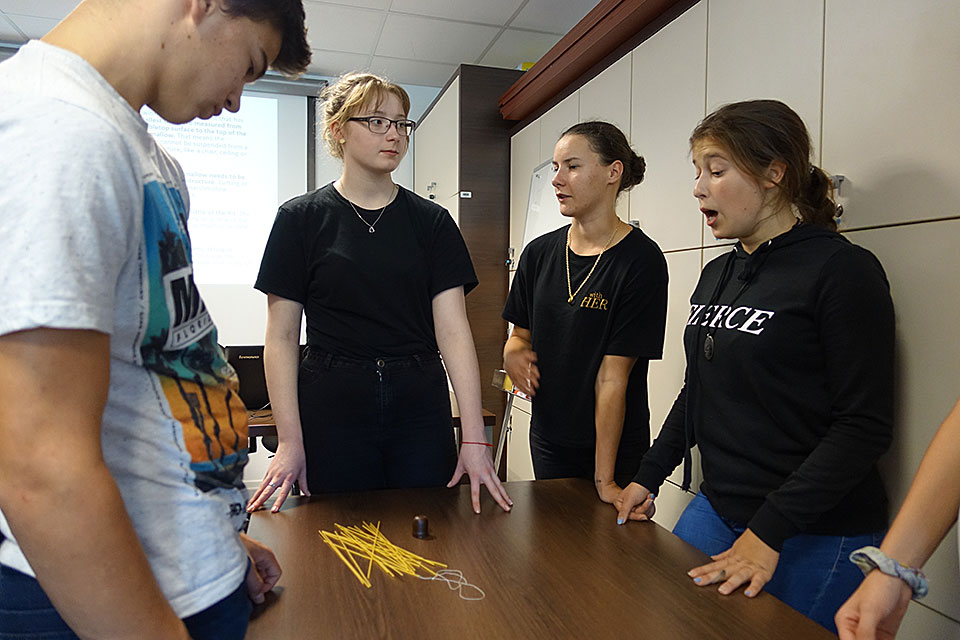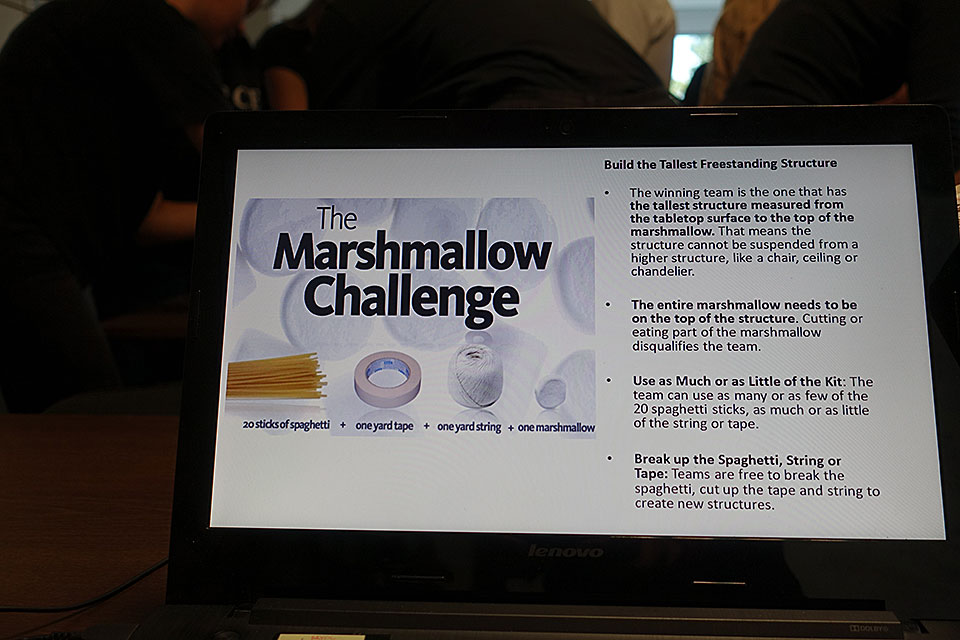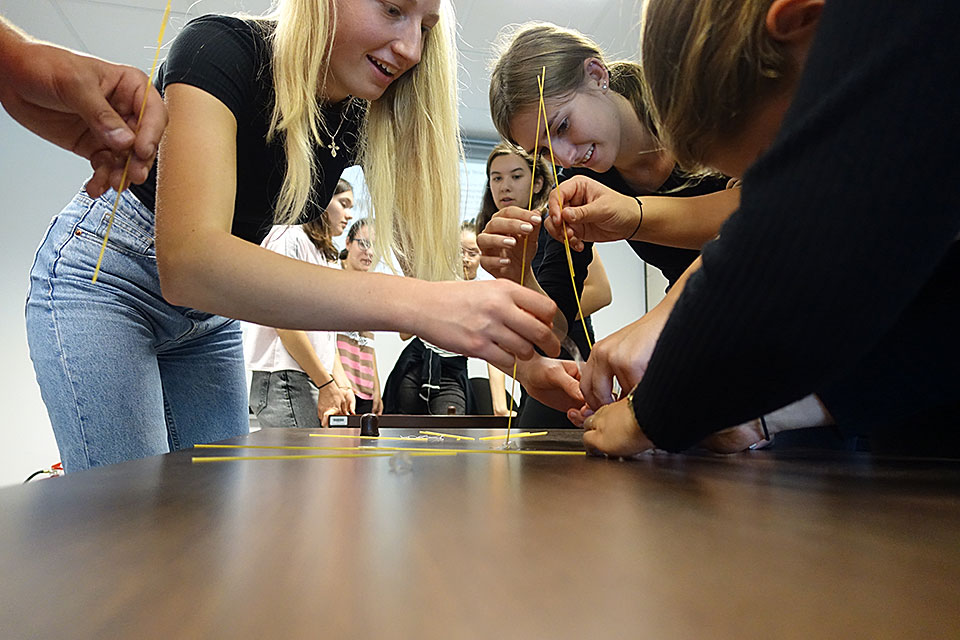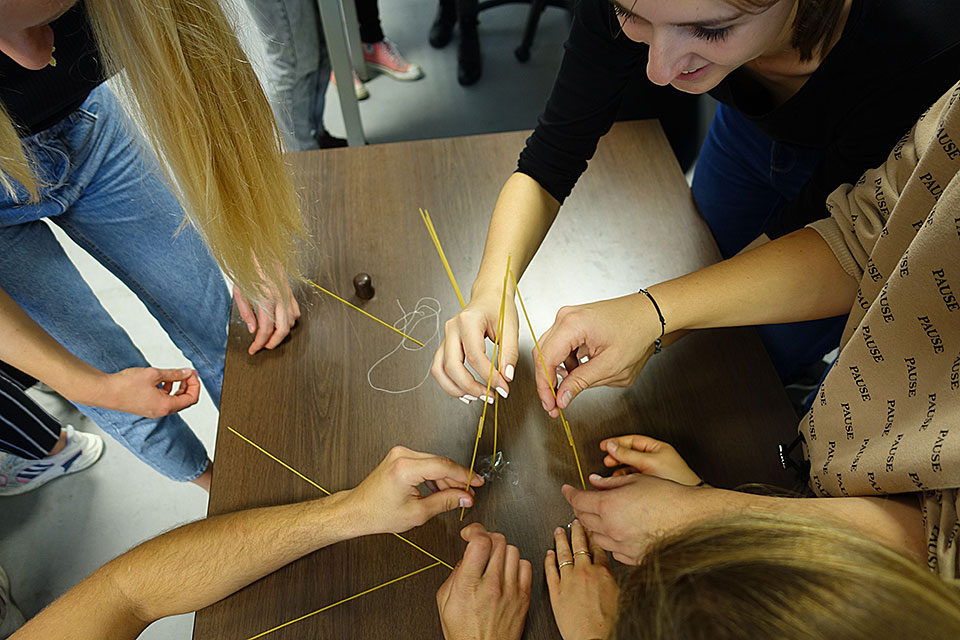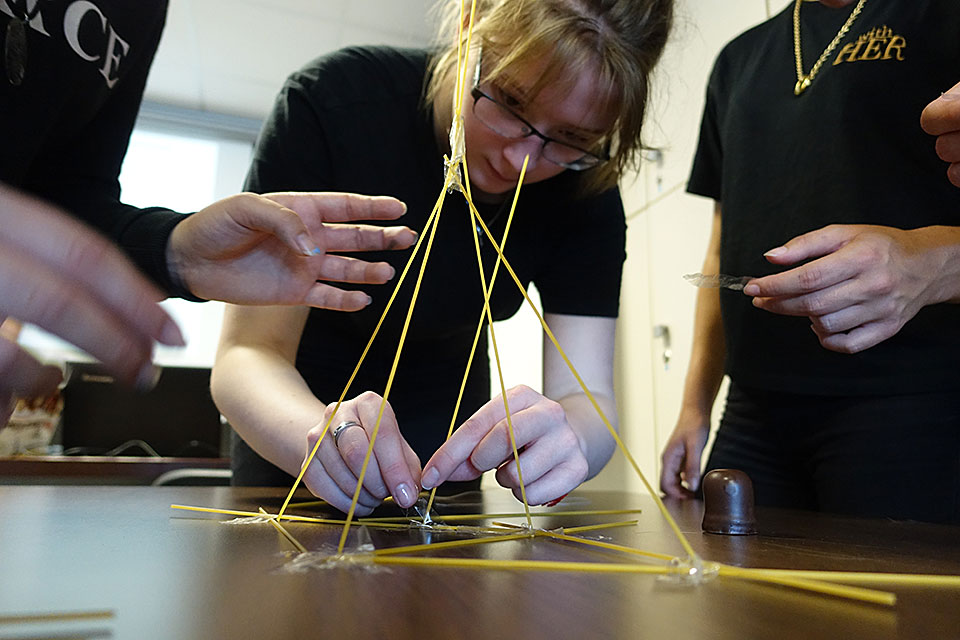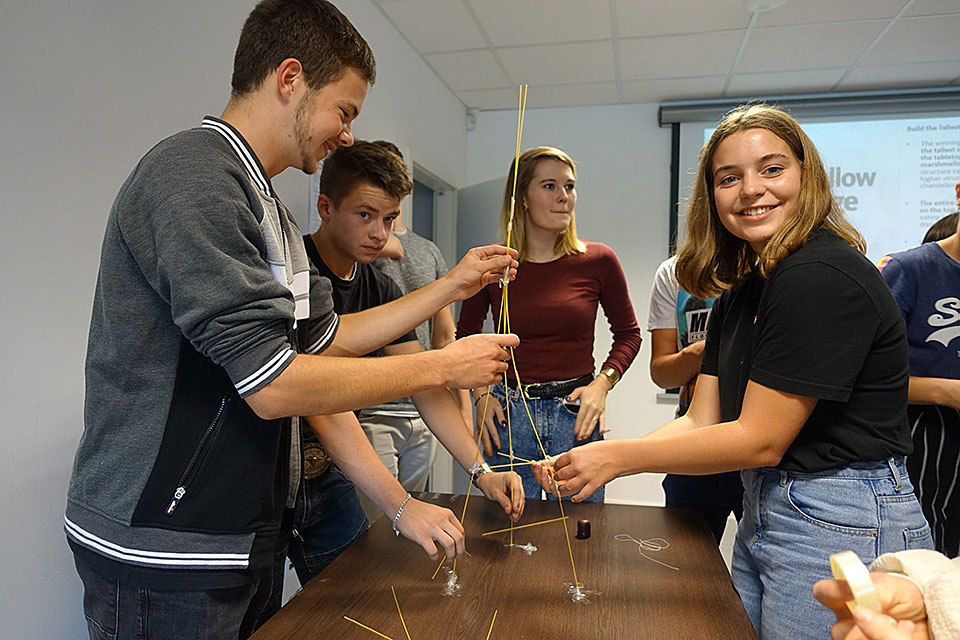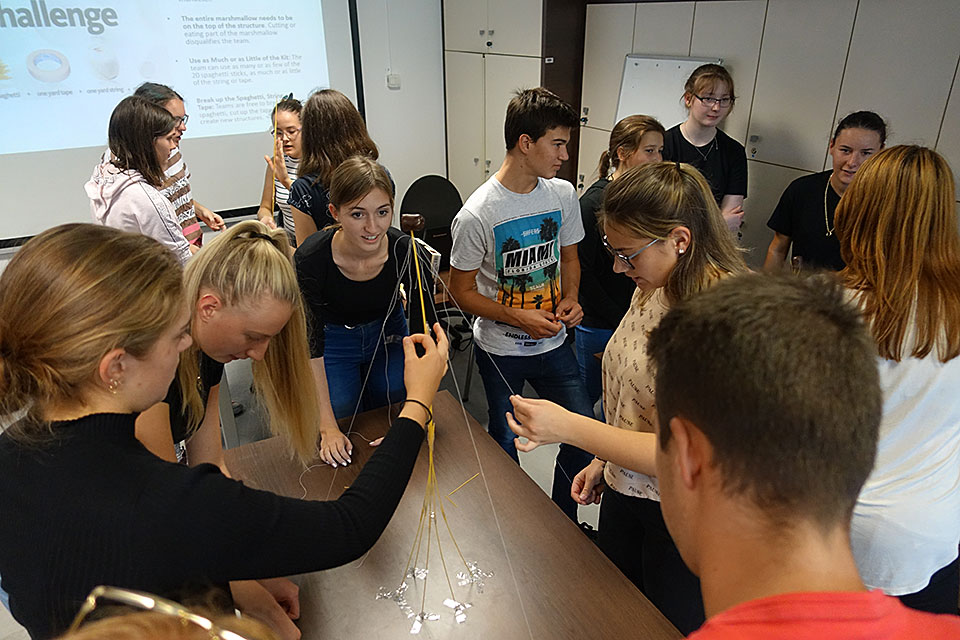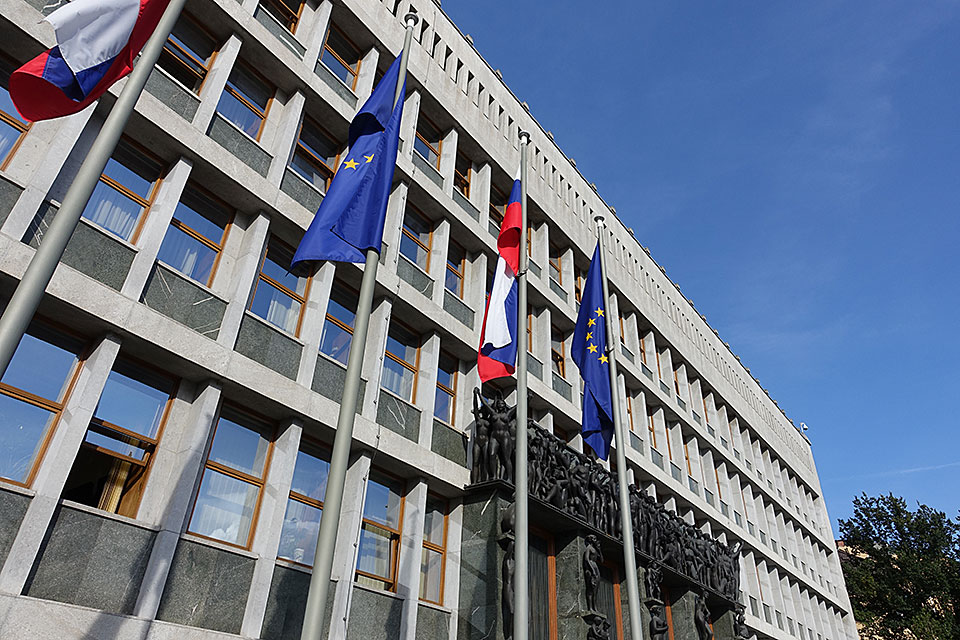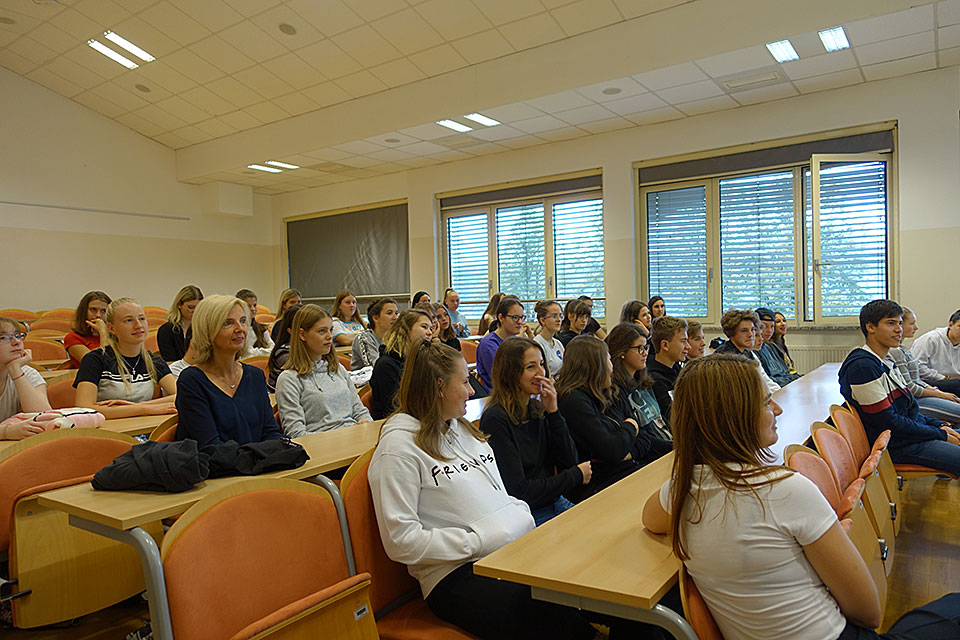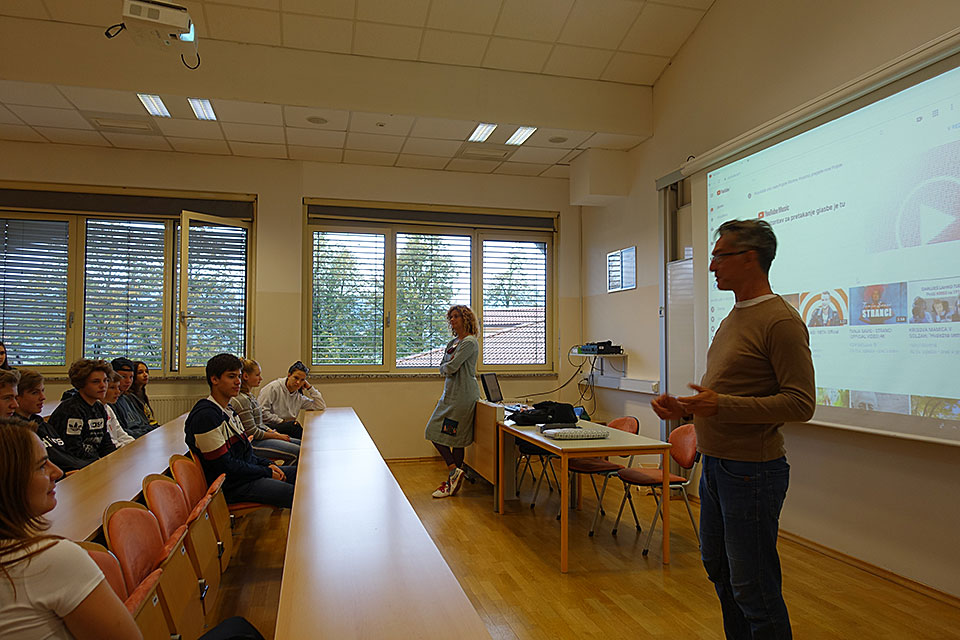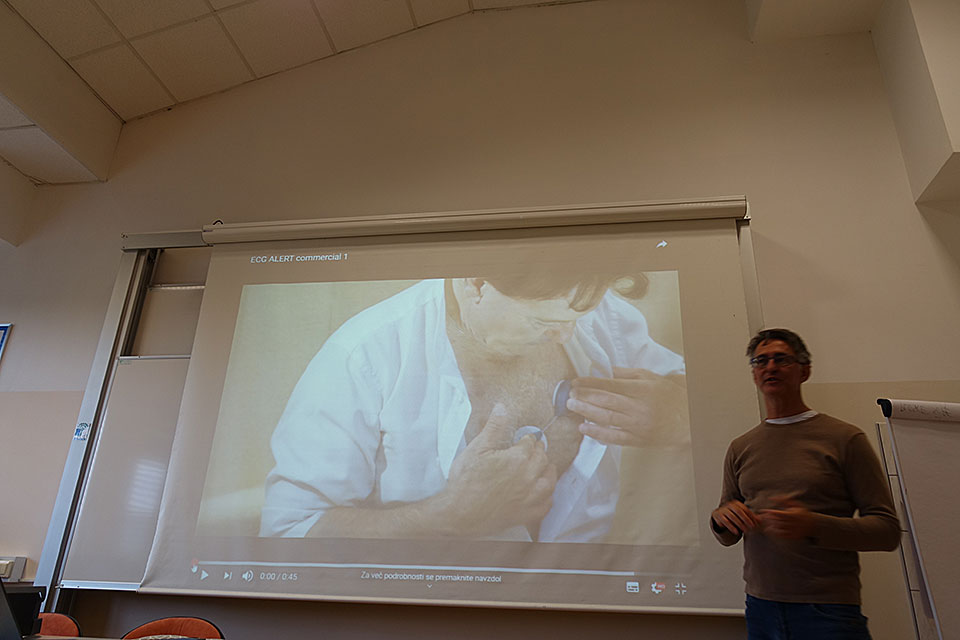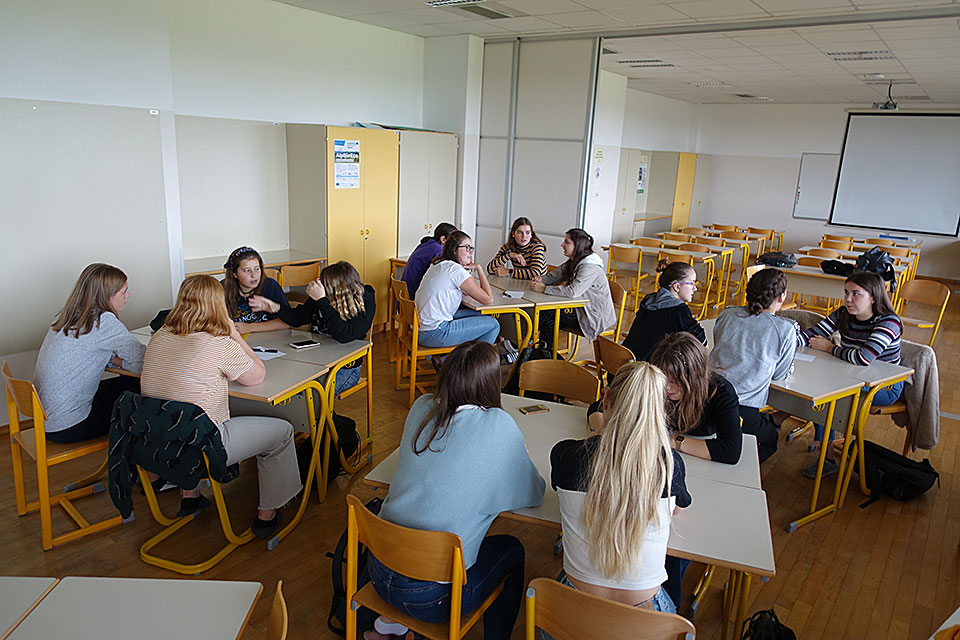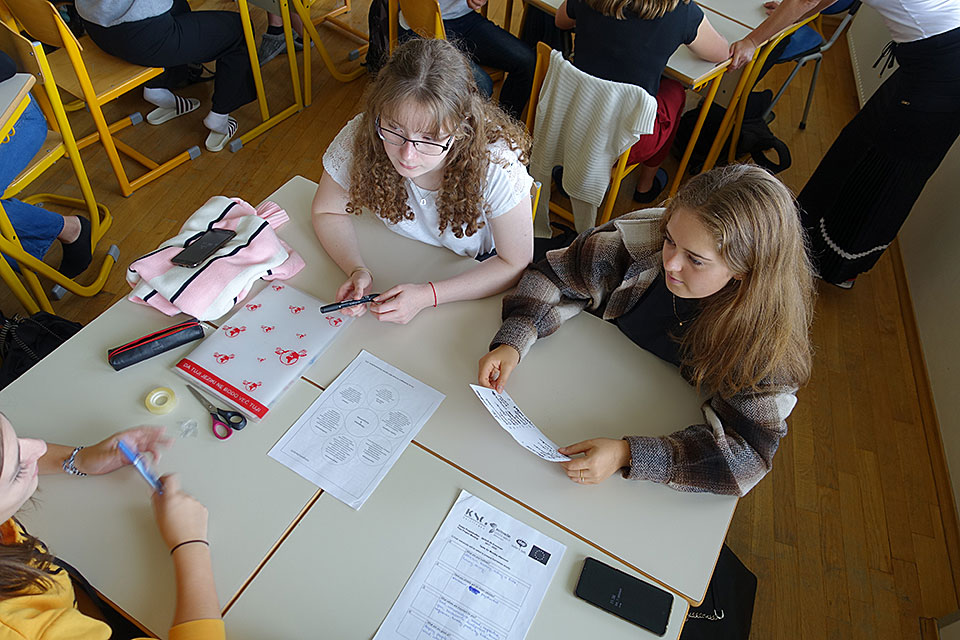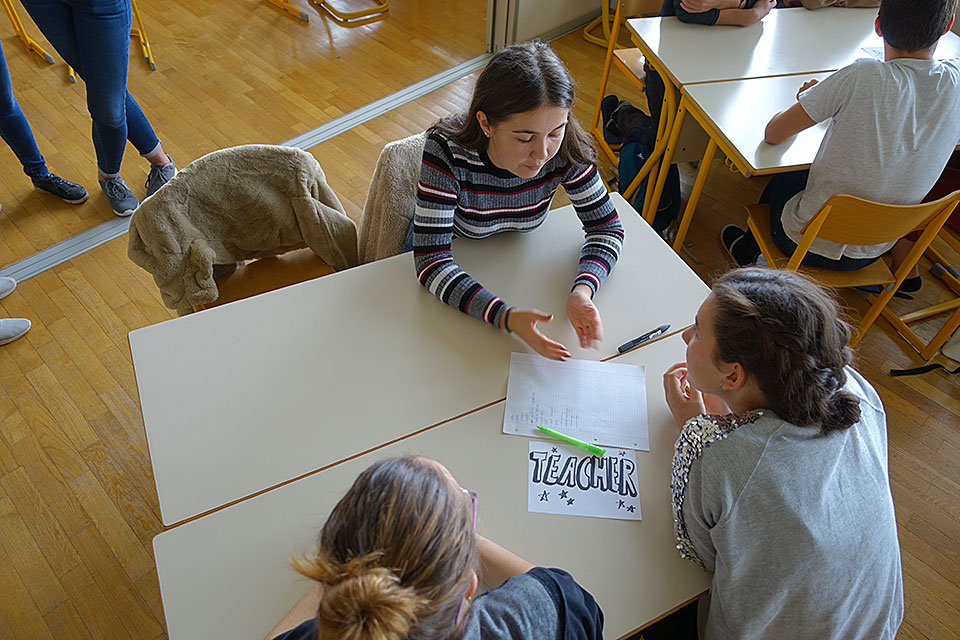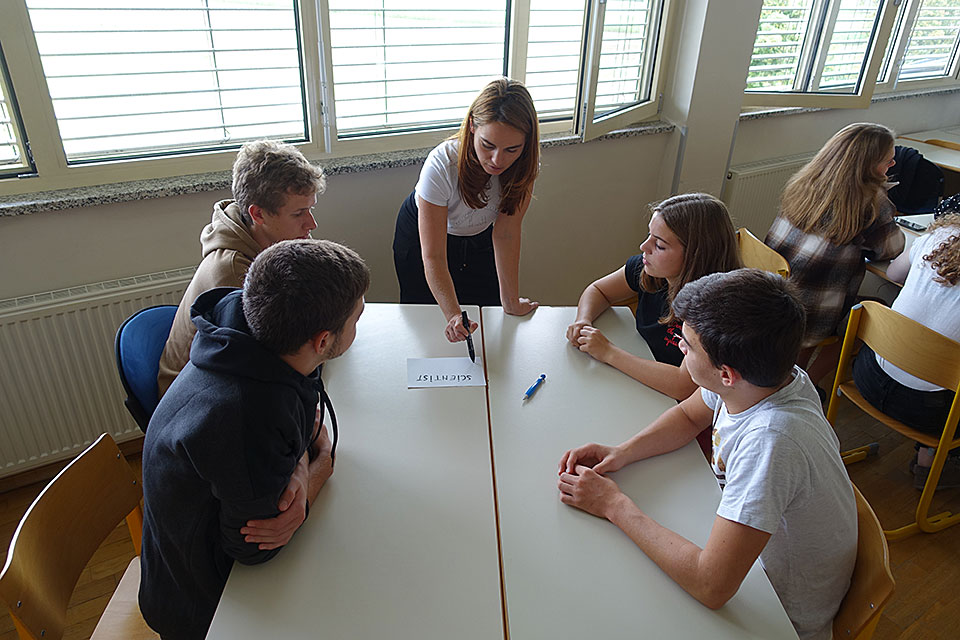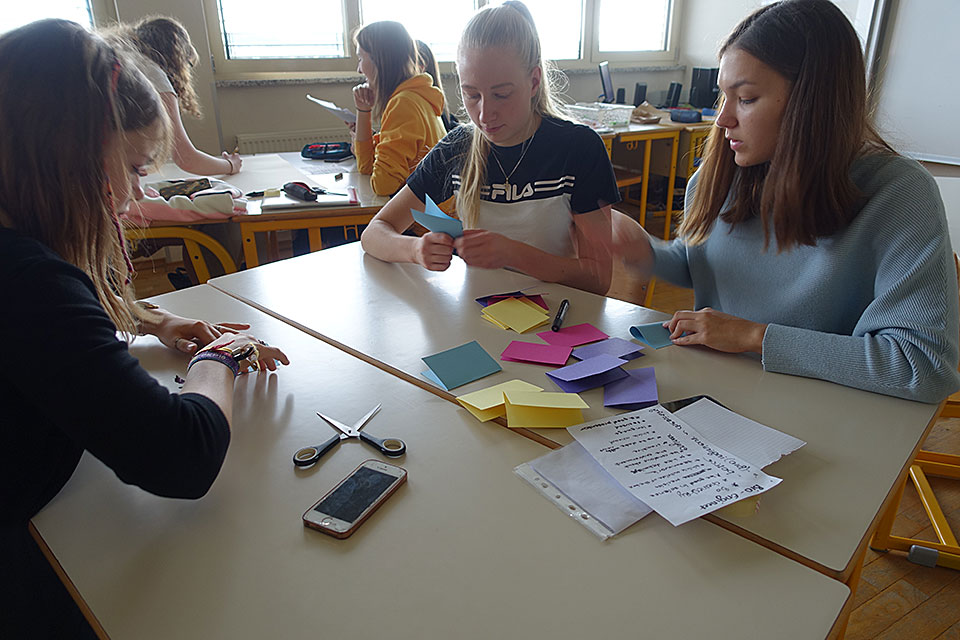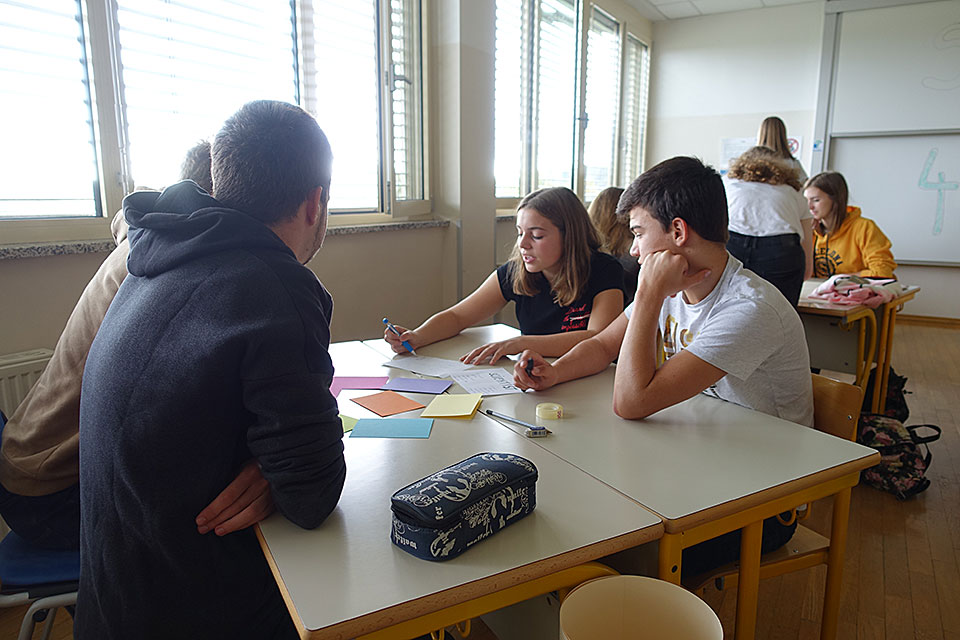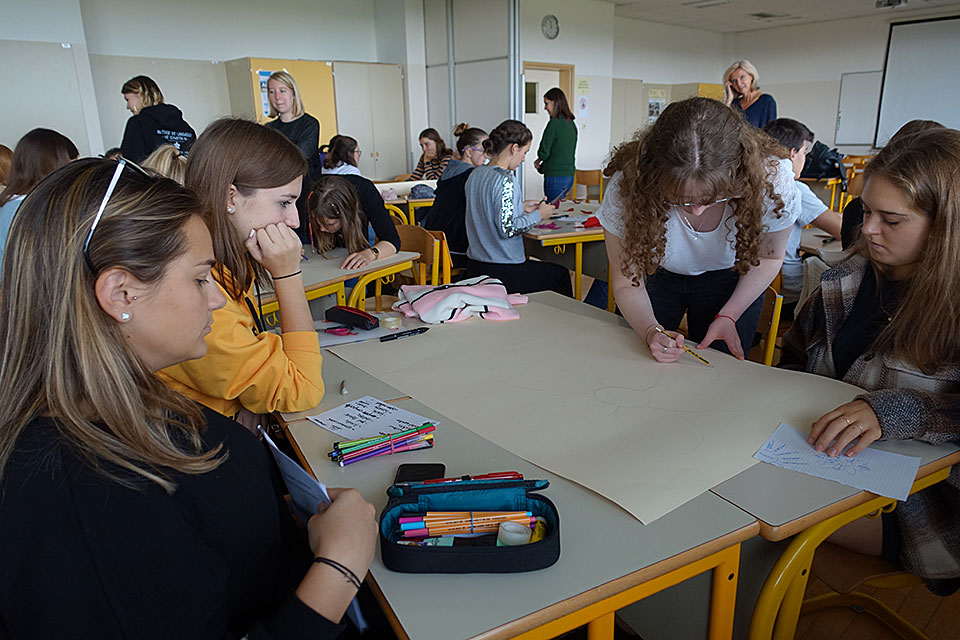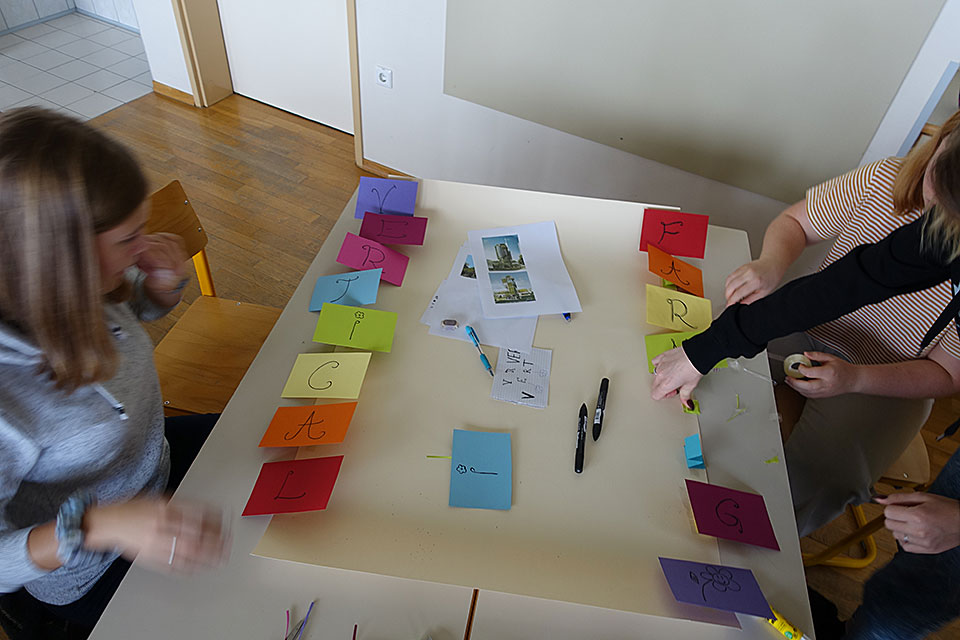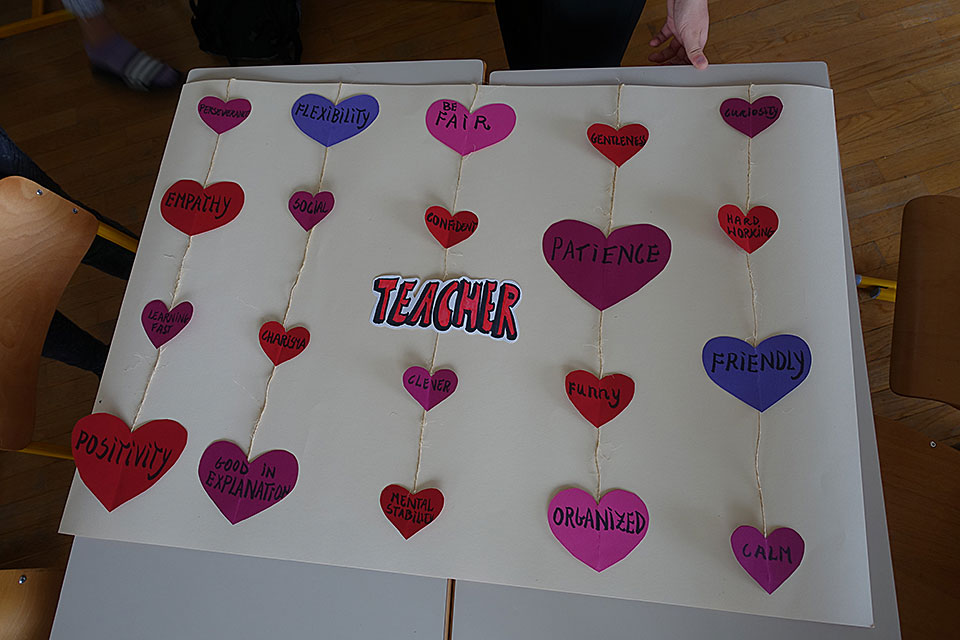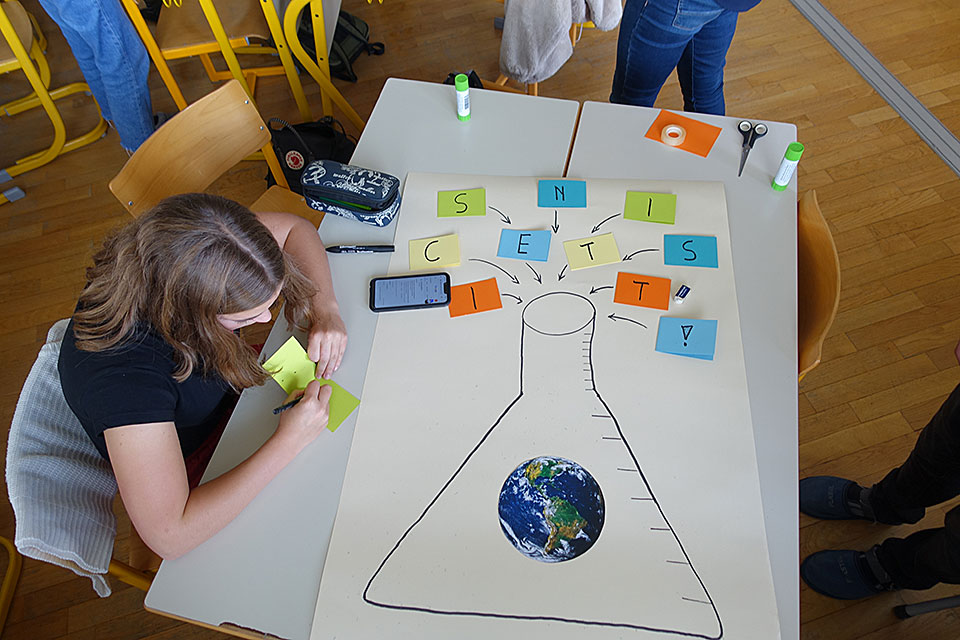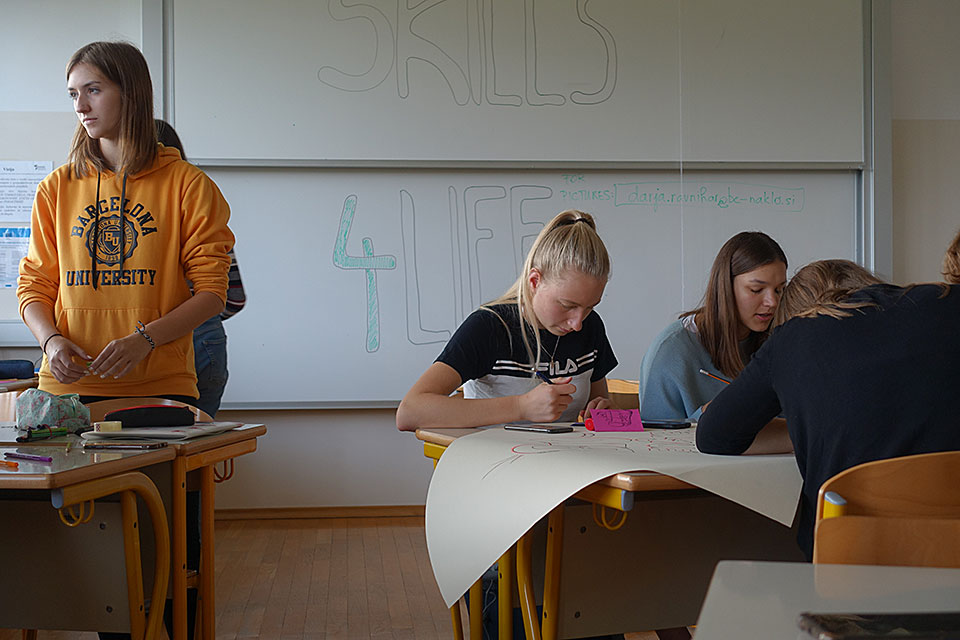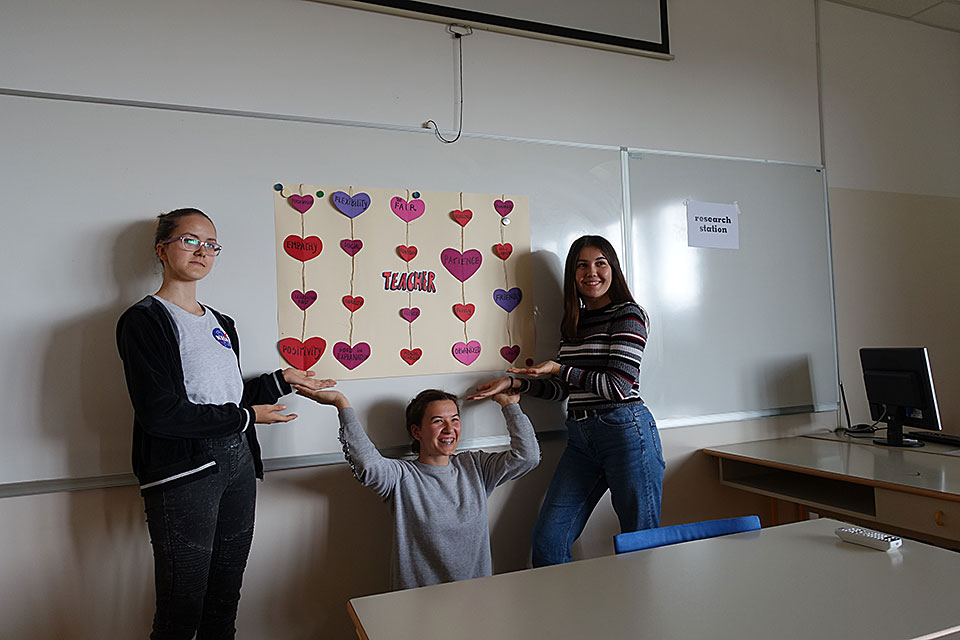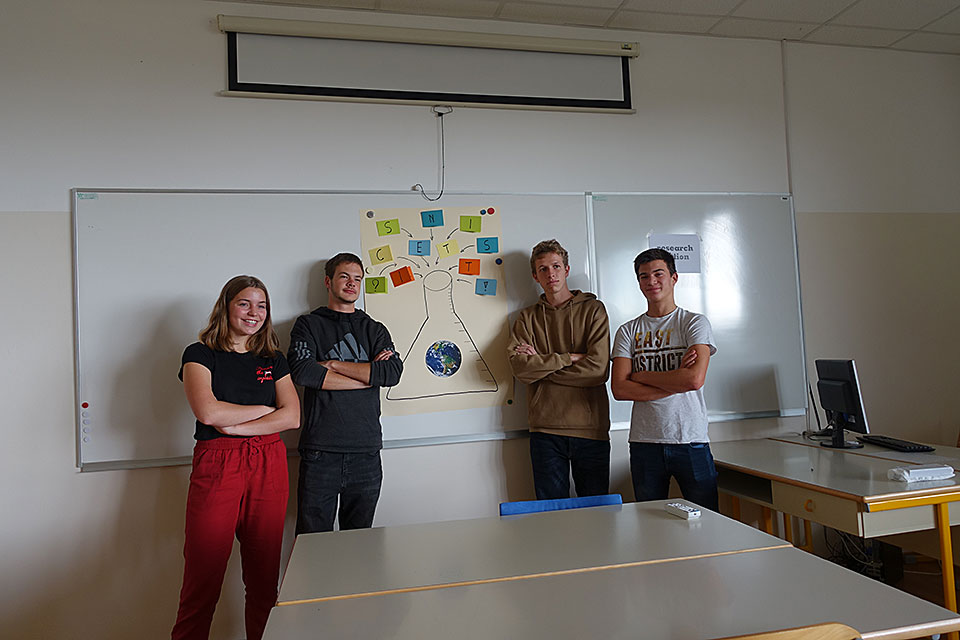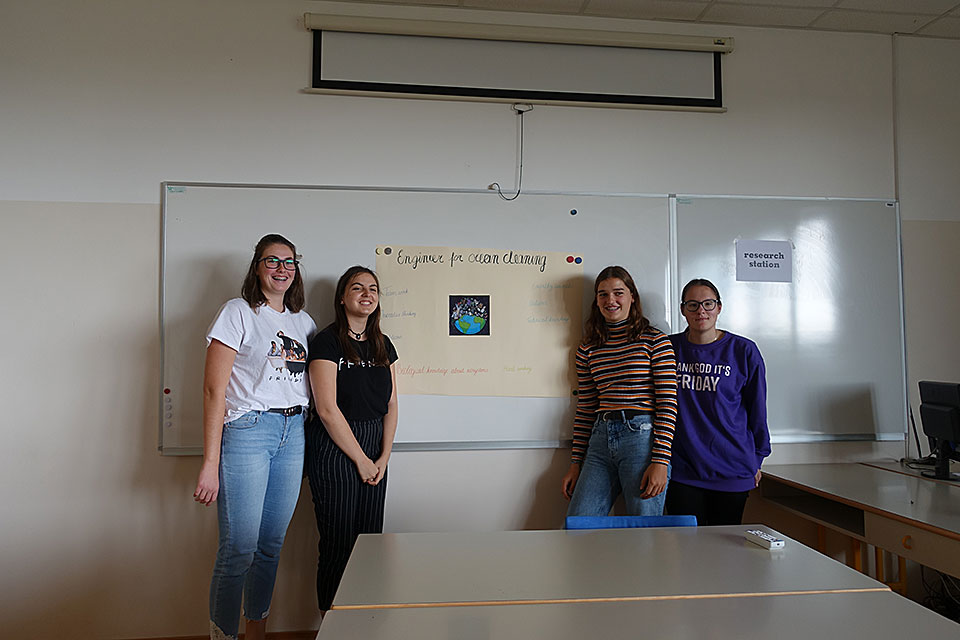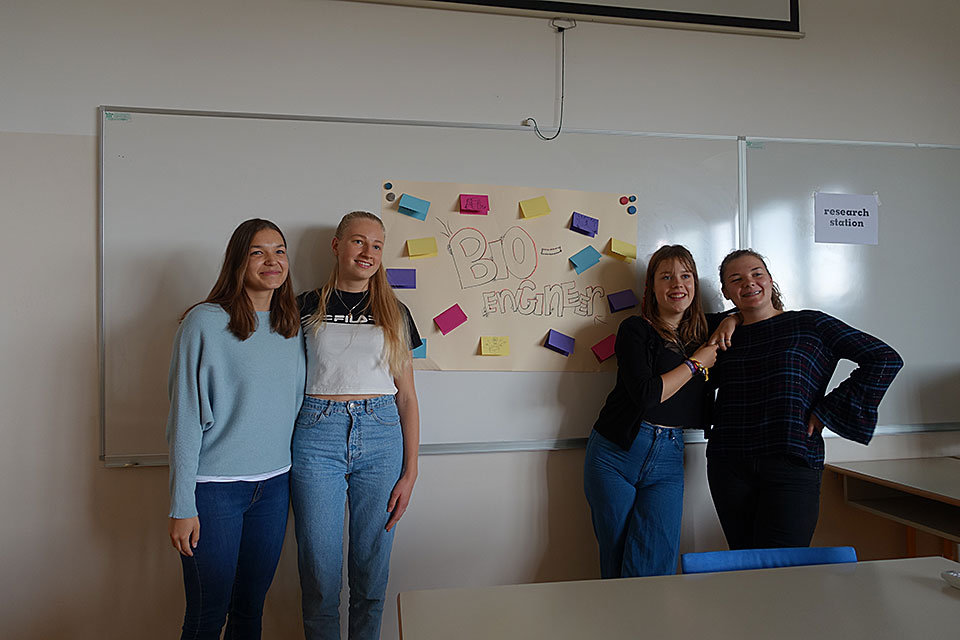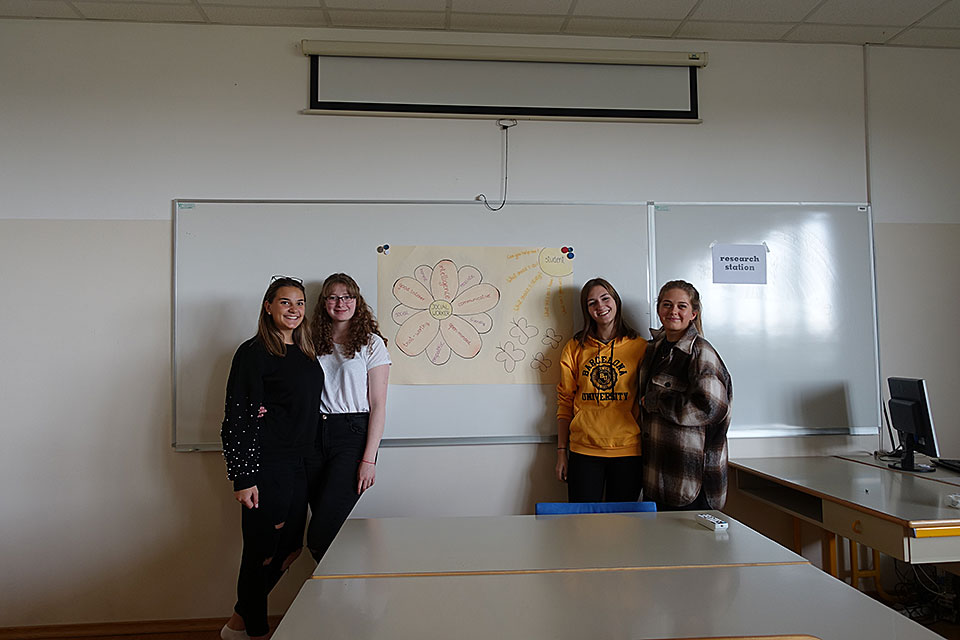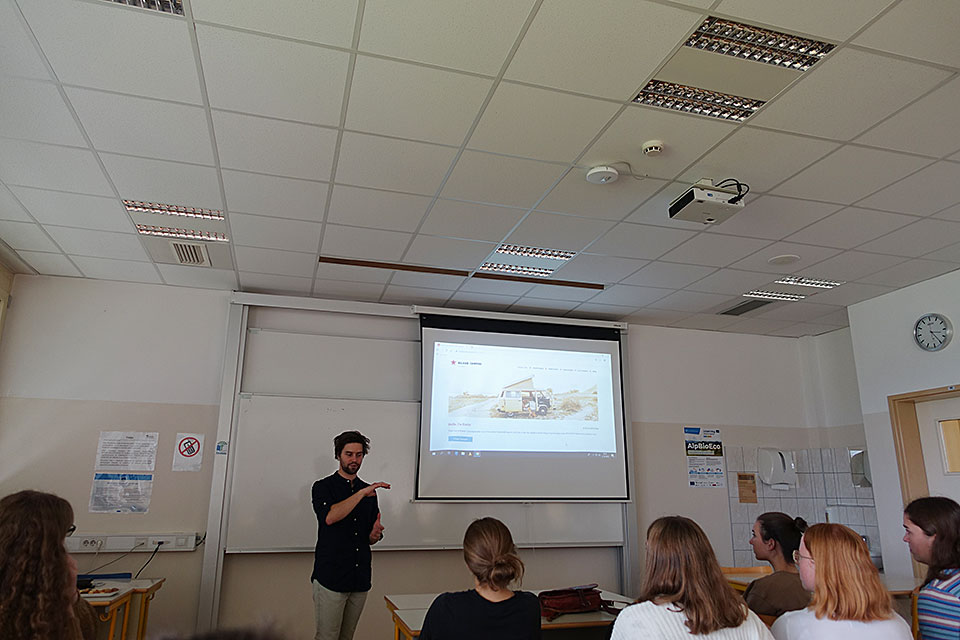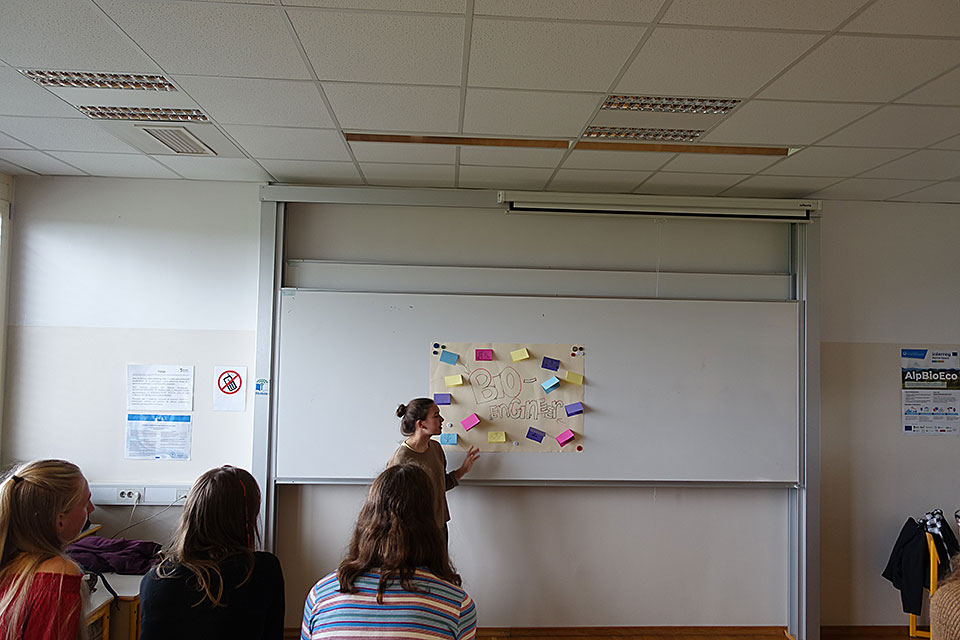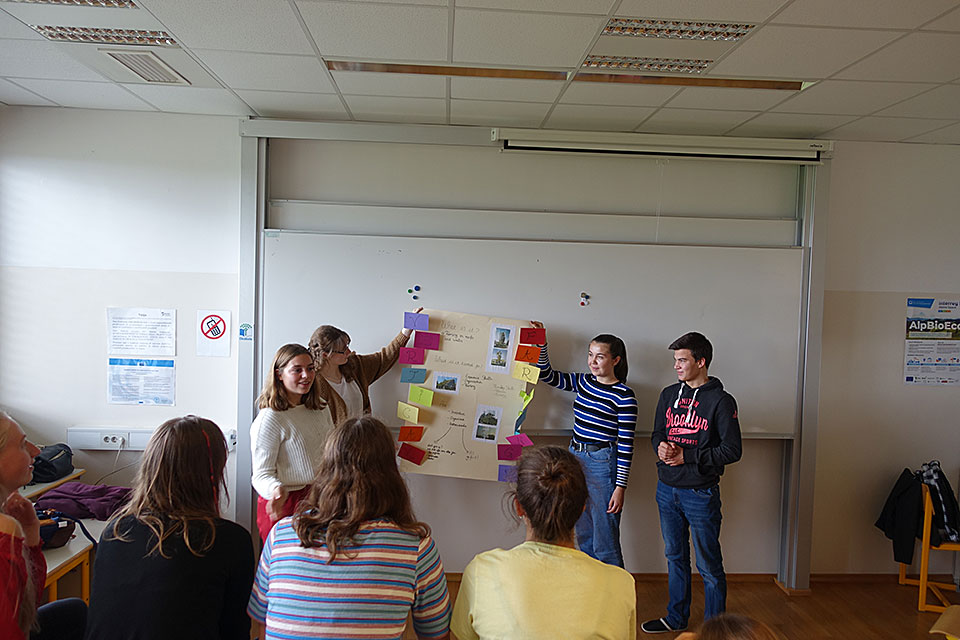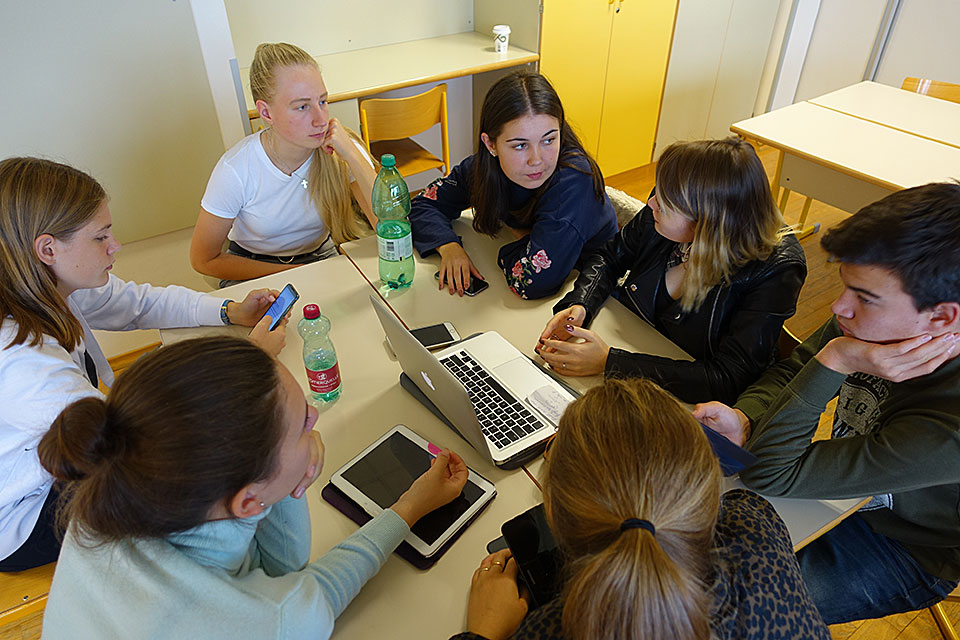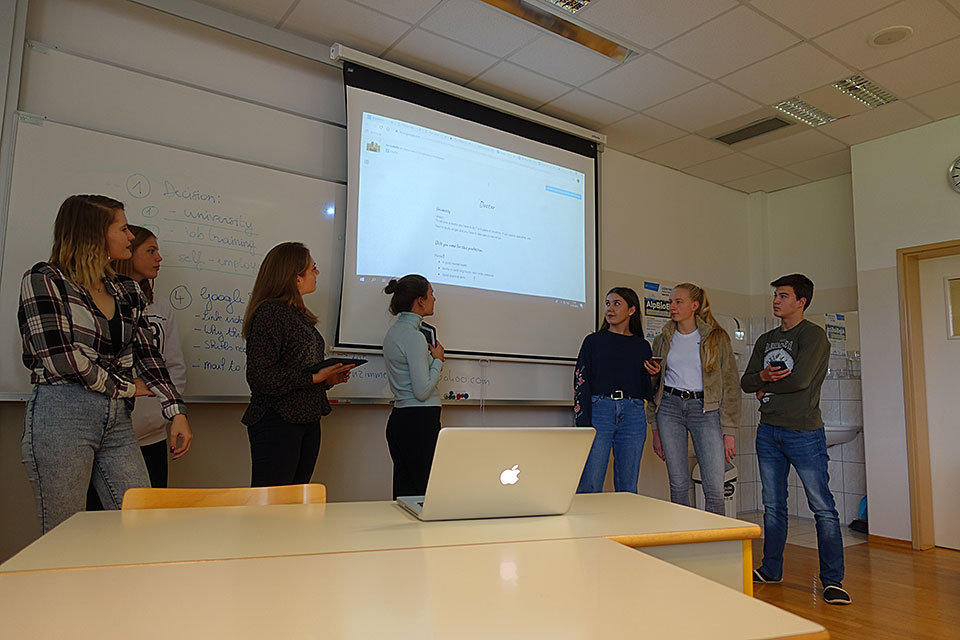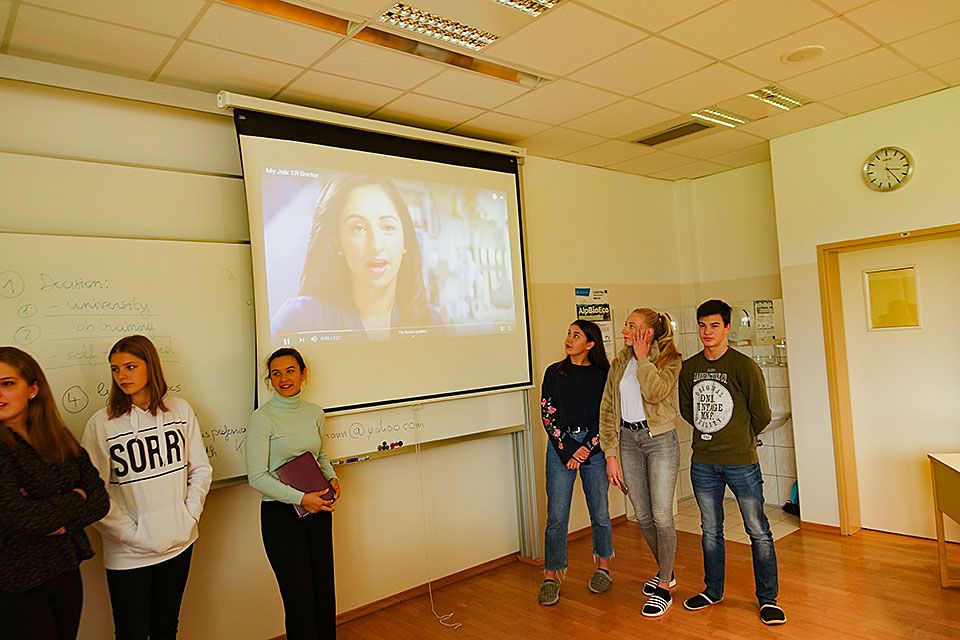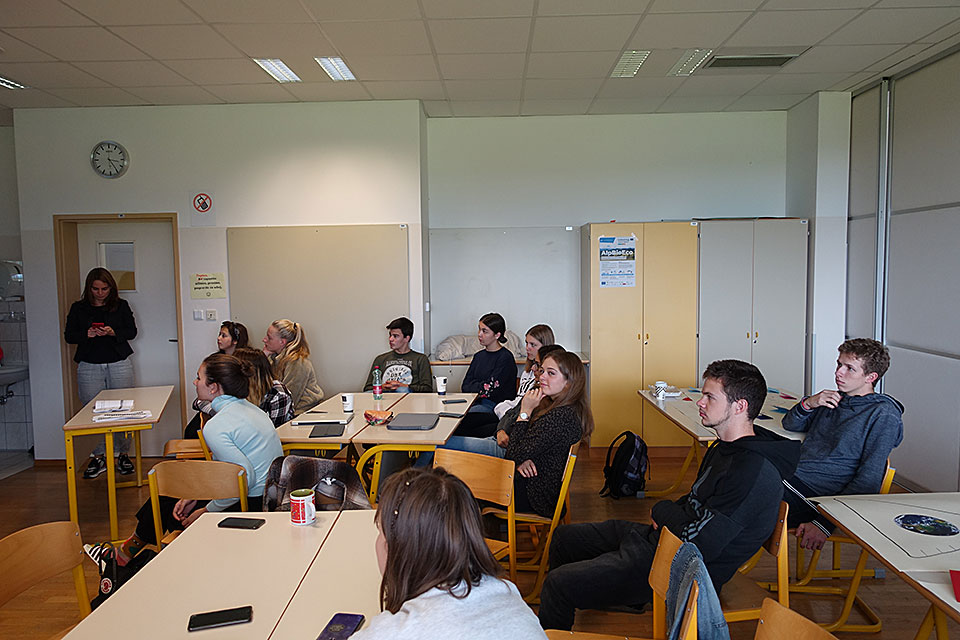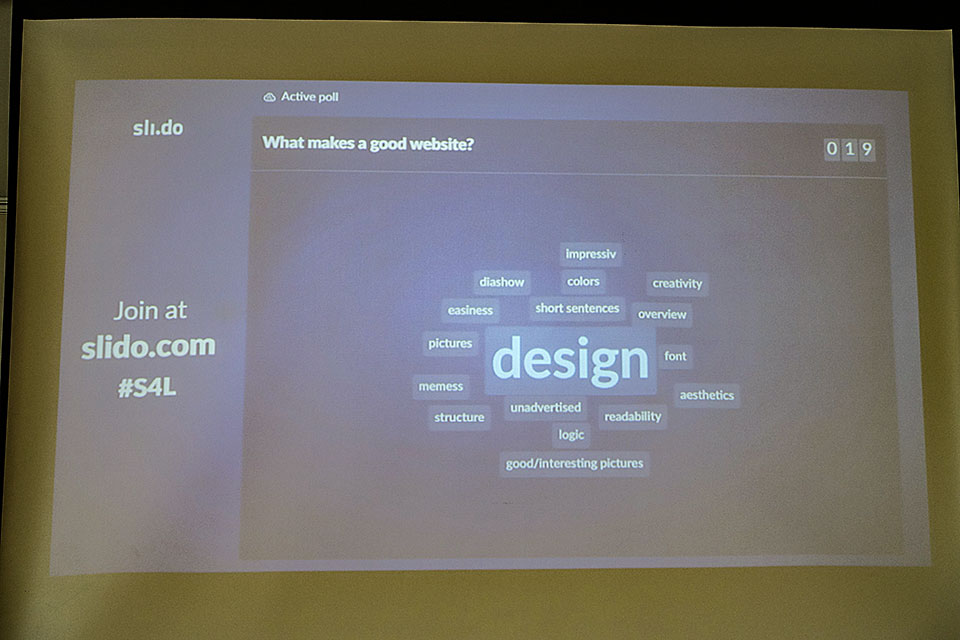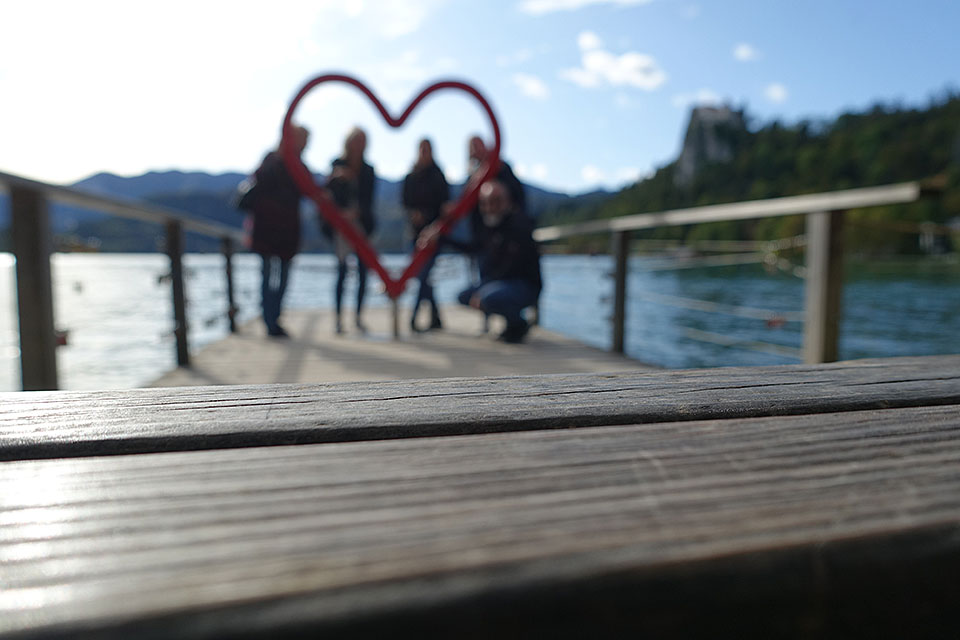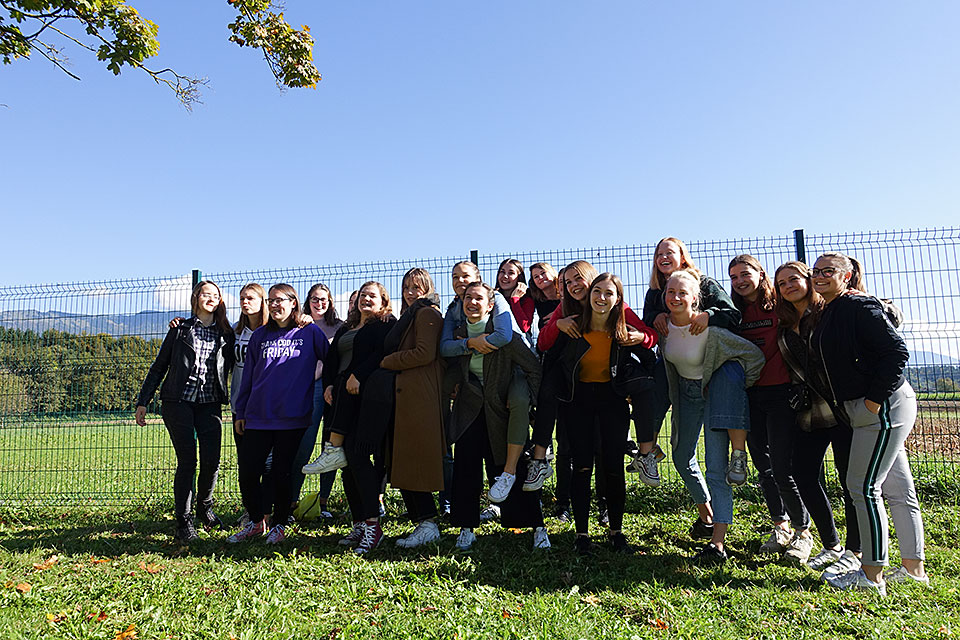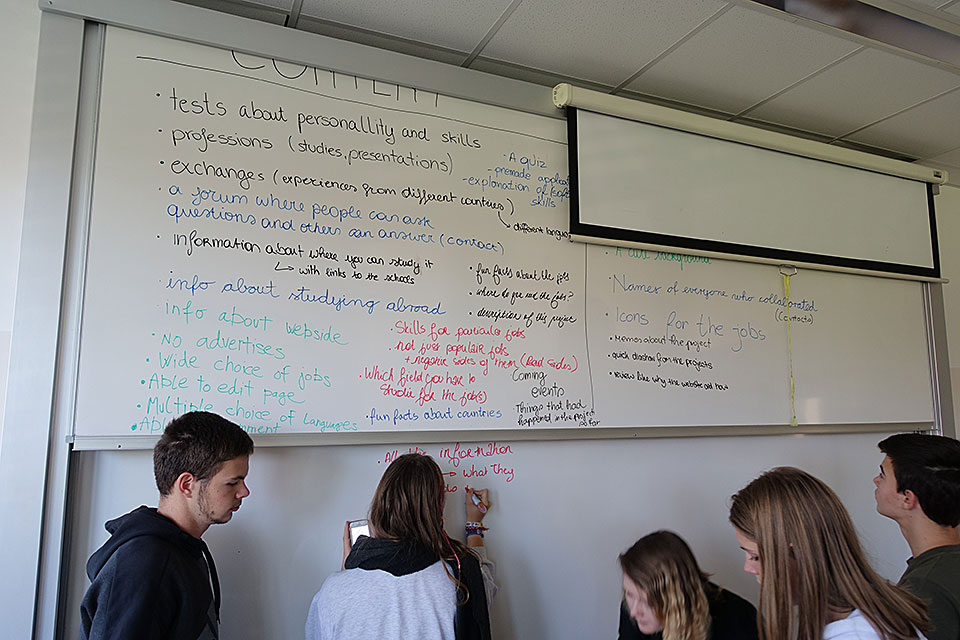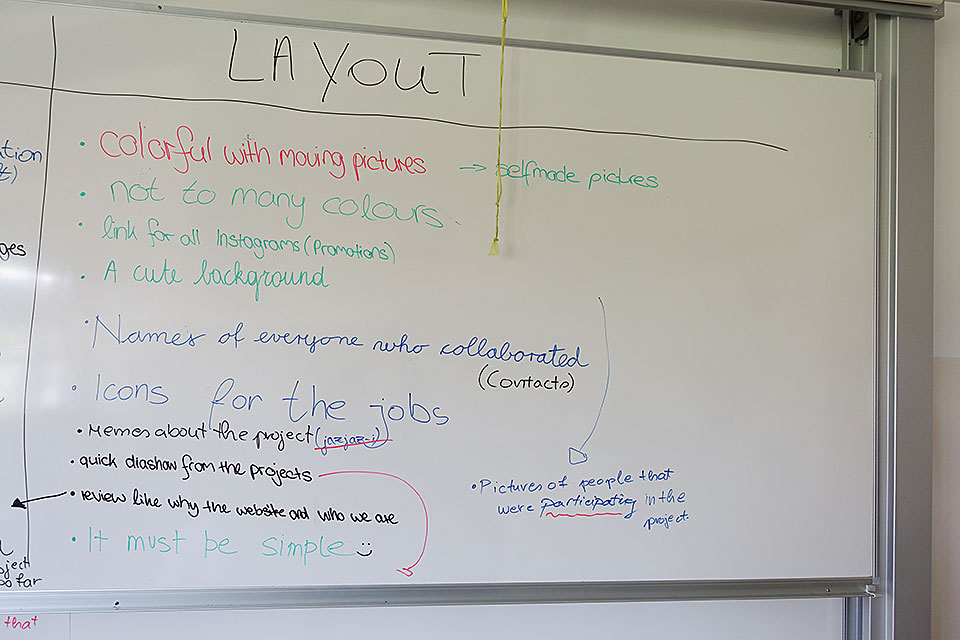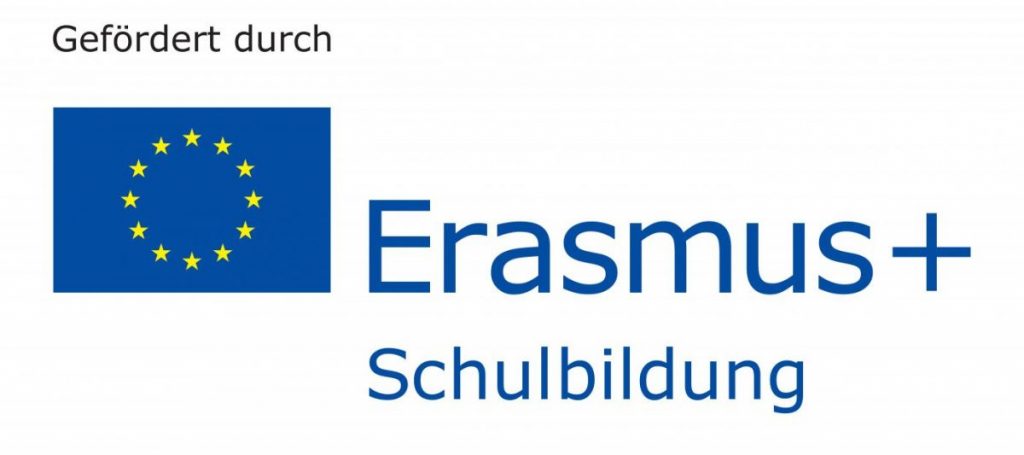This special European partnership was the result of many contacts by e-mail and some visits of the German coordinator to Slovenia and to Belgium. All schools had experience in international projects before Skills4Life started (the Belgian and Slovenian school had worked together in a previous Comenius project). During the exchange visits and contacts we felt a positive vibe and a lot of ideas came up spontaneously to make Skills4Life a useful and interesting tool for all participants.
Our partnership among similar schools was fruitful; we were and still are quite similar in sorts of pupils and staff, we are all located in small towns and/or rural areas, we are surrounded by working class population and many pupils are immigrants or have parents with immigration background. Approximately 600 people (200 per country, 80 per year at every school, 20 people from the local community) had the chance to take part in activities that happened inside (job oriented activities) and outside the school (friendship building activities). Host families, people from the local economy, people from the high schools and university in the individual areas received invitations to participate and evaluate the students‘ approaches and help the students succeeding on their way to a job future.
As title for the project we agreed on „Skills4life“. With this project, we wanted to give the students some handles on which they can rely on when they leave school and enter the job market. We focused on the following topics:
- „first aid“ for a good job application (how to select proper job offers, do’s and don’ts during an application and in a conversation, …). This was done mainly in Belgium and Germany.
- how to find the right studies in a high school This was part of the first mobility in Germany and of mobility 3 in Slovenia with a visit to the Ljubljana Incubator.
- is working/studying abroad an opportunity? This was part of a company visit in Belgium.
- working and practicing IT-skills: online surveys, presentation tools throughout the project for students and teachers.
- company visits, guest speakers from high schools or from the government in the field of employment.
- learning advantages and disadvantages of working in a small or a big company.
This was the biggest part of the work in the first mobility to Slovenia together with the point of how one sees the environment we live in as a business opportunity
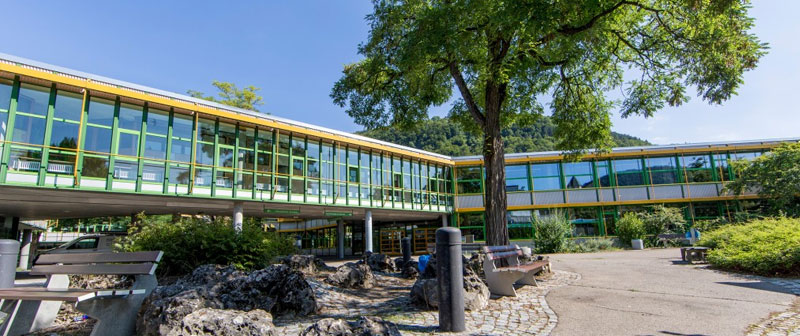
The students were supposed to walk out of this project as strong, self-confident, and pleased people who know more about what they want to work in the future and what they needed to achieve for this aim. We teachers have shadowed this process in the last years and we would like to say that we are thoroughly happy with the outcome in this respect!
The involved schools have exchanged a lot of knowledge in the organization of their job orientation activities and have a new structure of these activities. All the tasks were done in groups with mixed nationalities, so language and social skills were used all the time. Many activities demanded many activities from students and teachers and boredom never came up. Enjoy reading through our website and see the results of the work that we did.
Career guidance
Mobility 1 in Germany 19/11/2017 – 25/11/2017
The partners from Slovenia and Belgium came to Germany to discuss skills and competencies we need to build a good career. Throughout the week we got to know ourselves and each other on another level that will help us when we are ready to get a job.
On the first day of our exchange week the German hosts showed us their school and invited us to attend their lessons. As we discussed the lessons, we realized the lessons are not much different from Slovenian or Belgian lessons, but they have much more practical work in local factories that relate to their school. Later that day, we had a lecture titled “Identify your skills“ by Lothar Hentschel from the German Job Centre (Arbeitsagentur). We had to check which skills we think we have and which ones we could develop during our education process. We collected all the work that had been done for future use in our own Book of Skills. We also got to know the RIASEC model how one can classify one’s own abilities and a way of getting a training on how to be oriented in the world of jobs and studies (BW Best).
The next day we spent some more time with German students attending their lessons and working on our Book of Skills. We also went to Ulm to explore the city and to find out more about German culture.
On Wednesday we had an opportunity to experience the so called “Studientag“. It is National Open Day at Universities and all the high school students can come to collect more information directly from the students who are studying at that university. Each of us, accompanied by a host student, went to different cities and universities. We inquired about what skills you need for a specific profession and collected as much information as we could. At the end of discussion, we took a selfie with the university student from the interview.
We presented our work on Thursday to discuss what skills you need for a certain profession. Later we showed our Padlet presentations of professions from two different ranks. First, we presented the ones for which people do not need high education, for example a gardener or a farmer. Then we presented the skills you need for more demanding professions such as psychologist, microbiologist, etc. When we finished our presentations, we visited a WMF factory. They showed us their production of household utensils. We also talked about what they are looking for in an applicant who is trying to get a job at their company.
Friday was an evaluation day of our week. We finished our Book of Skills and talked about what competences are mostly wanted by the employer. We came to a conclusion that each individual has to know exactly what he or she wants and adapt his or her skills and strong points to their goals but the most important thing is that you do something you are interested in. We closed our exchange in a pizzeria called Latino where we had our informal discussions about jobs plus a bit of fun.
Our week at our Belgian partners
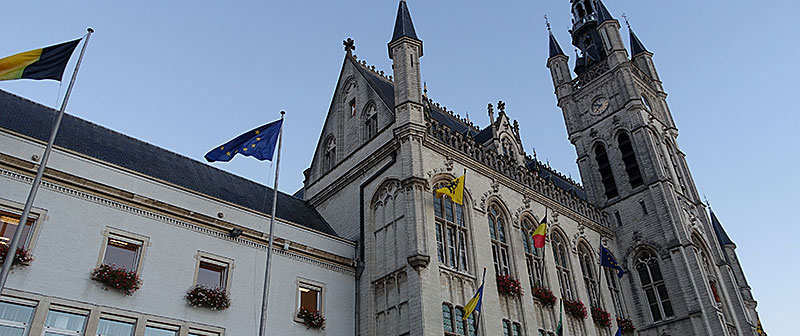
Mobility 2 in Belgium 13/05/2018 – 19/05/2019
On the Monday after the day of arrival, a presentation by a Belgian teacher took place at OLVP. Students were told how the project was going, and what had already been done, as well as what profit they will be able to take from the project. This presentation was necessary mainly because only six students from the involved schools travel and this was the first event for twelve of our students in Belgium. In the presentation, all were updated on what had already happened and where the journey should go.
After the event in Germany in the autumn of 2017 which had concentrated on a possible academic future of the students, the event in Belgium was planned in a way to serve the possible professional future after an in-company training. Following the first work, all participants were welcomed in the town hall of Sint Niklaas by the local mayor in the presence of the local press.
On Tuesday, a factory tour at Volvo Trucks in Ghent took place, which, from the point of view of possible professional orientation, went in a technical direction. There was also an event at Volvo Trucks, in which the Human Resources department presented criteria by which applicants are selected in this company – who is sorted out why and what skills are useful to make a successful start into the professional life.
The following Wednesday was initially devoted to reviewing the results of the visit to Volvo Trucks. Subsequently, the participants of the project were introduced to the system of the Europass and it was started together to create one for all. The rest of the day, students spent time together in Belgian classes.
The Thursday gave the students a chance to visit the European Commission in Brussels and the city. The European Commission’s visitor service first offered a guided tour, then followed a lecture on „Vocational Education in the EU“ with a presentation of the current situation and an outlook for the future of what opportunities in the labour market and possible new areas in demand. The questions on the project topic, which were prepared on the previous day, were presented to an EU politician and the results found their way into the students’ documentation. The results of the project so far were evaluated in a discussion. There was also an agreement how the results could be presented in the future. The result was at that point that there should be both a website and an app. Up to today, most of those agreements can be seen on the website you are studying at the moment, such as the desired link section and tips in a „how to“ approach. Because of technical difficulties, the planned app that was intended to guide students with questions such as „What could my professional future look like?“ was not programmed. The whole idea is now transported by this website and the link section.
On Friday before the day of departure, there was time for a lecture at the Belgian partner school, which was presented by the company Randstad Belgium. It was about the right application in a company for the profession of the students’ choice, the right documents in the right form. The students had brought fictitious applications for a job of their choice to Belgium and that had been advertised in the EU and could then compare their versions to what the lecture had thought them. The written CVs and letters of application were evaluated and optimized by the students. Afterwards, there were tips for a successful job interview. The training followed immediately: there were interviews carried out by the students, which were recorded by video and then evaluated by HR specialists. They also gave further personal tips on optimizing. The project week was evaluated, and the results were considered for further planning.
Our first exchange to Slovenia
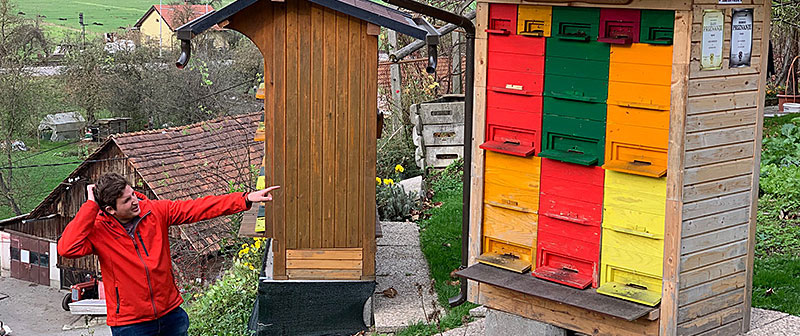
Mobility 3 in Slovenia 29/09/2019 – 05/10/2019
In Slovenia, together with our teachers we worked on the project and turned it into an unforgettable week. My best memories are of a Belgian student of Polish nationality named Oliwia. She is one of the kindest and most enthusiastic people I have ever met. She showed me things in my everyday life I had never seen myself.
The main theme of the project was »How to do business« and therefore many of the locations we visited related to beekeeping. Slovenia has a rich beekeeping tradition, so beekeeping is an especially important part of the Slovenian cultural heritage. During the exchange week, we visited a young beekeeper – a former student of BC Naklo – Secondary School. We also visited Medex, an enterprise specialized in honey products and a family owned shop specialized in beekeeping equipment. The knowledge we gained there helped us raise awareness that opportunities to take up entrepreneurship are hidden everywhere if one is prepared to find them.
The practical part of schoolwork was organized as workshops where we made all sorts of products – from candles to hand creams. All these products connected to honey and or bees. We also had a lesson from our German partner teachers on economy, which was especially useful to those of us who do not have any business-oriented subjects at school.
By the end of the week, we were enriched with a list of qualities and skills a successful young businessman must have. Such a person must be good in planning, decision making, must be creative and inventive. They must also have persistence and knowledge of foreign languages. What I saw in the project week and what I still see as the most important is that a person finds a way in something he or she loves doing. That way, failure is temporary, and a new way forward always shows itself.
Our last exchange in Slovenia
Mobility 4 in Slovenia 29/09/2019 – 05/10/2019
The last exchange in our Skills4Life project took place in Slovenia, primarily at BC Naklo – Secondary School from 29th September to 5th October 2019. Six Belgian and six German students came to Slovenia to close our three-year-project. The point of that week was to collect all the data, which we discussed at previous exchanges and to start creating an online site for our project – it is the site you are reading at the moment. We hope that it can be used for further generations of students, so they will be able to see what experience and skills they need for a certain job. We talked about the success that this project was, about our experience and exchanged our opinions about it.
We talked about our future and the jobs we want to have. But we did not just talk – we also visited Start-up incubator in Ljubljana and learned all about how this institution helps beginner companies start building up their idea. We worked in teams with international groups of students. Our challenge was building the tallest tower out of spaghetti and then putting a marshmallow on top of it. It had to stand on its own and for help we could use string and tape for help. This was to show one competency that you need to work in the future: endurance.
A few successful start-up companies also visited our school and talked about their projects. The first one presented us their own invention – one was an ECG system called “Savy” which everyone can use and measure their heartbeat on their smart phones. That way we can prevent heart diseases more easily since they can be discovered sooner. The second company was Balkan Campers where one of our ex-students from BC Naklo – Secondary School works. They transform old campers and vans into renovated ones, which clients can rent for their travels. They presented us their whole story from the beginning, through the process of what they needed for the success of this project up to now.
Additionally, we did some of our own research on possible future jobs. We worked in different groups and each group chose a job to talk about. Then we created posters and wrote all the competencies a person needs to work for that job. We divided those jobs into three groups: The university occupations were the jobs of a teacher, a scientist, a social worker, and a psychologist. The more technical occupation was an ocean cleaner and the last was self-employment, for example the job of a gardener for green walls or different salespeople. Each group presented the job they chose to other students and teachers and we talked about the skills needed.
Further on we created an idea of what our online site would be like. The point of it would be that all the competencies we thought of throughout the project would be listed and the person visiting our site could choose which ones he or she has. For example jobs and connected skills [click here – Skills Seite]
We closed our week with a final discussion about our time and work on this project and a goodbye dinner at a pizzeria.
Useful links and contacts
Contacts
- Mr. K. De Smet – koen.desmet(#at#)olvp#be
- Ms. D. Ravnihar – darja.ravnihar(#at)bc-naklo#si
- Mr. M. Zimmermann – zimmermann(#at#)ksgeislingen#de
Schools
Links to skills and self-access tests
Die Unterstützung der Europäischen Kommission für die Erstellung dieser Veröffentlichung stellt keine Billigung des Inhalts dar, welcher nur die Ansichten der Verfasser wiedergibt, und die Kommission kann nicht für eine etwaige Verwendung der darin enthaltenen Informationen haftbar gemacht werden.

